

















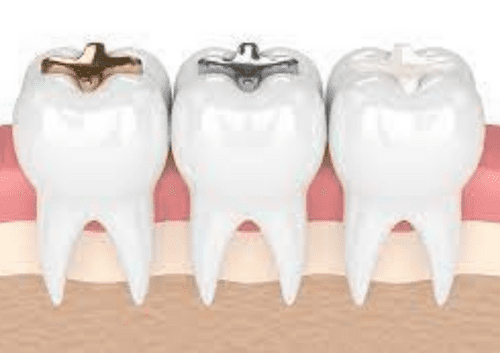
















Bonding and Contouring:  Changing the appearance of your teeth not only makes your smile look better, but it may also give you a more youthful appearance, increase the stability of your teeth so you can eat better, and give you a boost in confidence.
Changing the appearance of your teeth not only makes your smile look better, but it may also give you a more youthful appearance, increase the stability of your teeth so you can eat better, and give you a boost in confidence.
However, not all shifts require a significant time and financial investment. Changes to the appearance of your teeth, even those as minor as adjusting the spacing between them, can have a significant impact. When you choose Summerlin Dental Solutions in Summerlin, Nevada, for your dental care needs, you can anticipate receiving the best quality dental care, which will result in you having the smile of your dreams.
Dental bonding and dental contouring are two operations that are performed frequently in the field of dentistry. Both are considered to be non-invasive and affordable options. Both treatments can be carried out independently or in conjunction with one another, can be finished in a little over an hour, and do not normally call for the use of anesthesia. Dental bonding or contouring may be the most suitable choice for you if you want to make a very little alteration to your appearance but still want to see significant results from it.
In the field of aesthetic dentistry, Dr. Cohan of Summerlin, Las Vegas is among the most qualified professionals. She makes use of her love for enhancing smiles in order to employ these simple approaches in order to accomplish significant improvements in the way you look.
Dental bonding may be your best option if you are unsatisfied with the appearance of your smile as a result of minor imperfections such as chips or gaps between your teeth. During this procedure, tooth-colored composite resin will be added to each of the damaged teeth by Dr. Cohan. By utilizing a shade guide, the composite resin will be customized to flawlessly blend in with the color of your teeth, producing the desired effect.
You may quickly add volume to your teeth, as well as correct spaces and enamel that has worn away, all within the span of one hourlong visit. Since dental bonding does not involve the removal of any of your natural tooth structure, most of the time it is not essential to use any kind of anesthesia.
In addition to altering the form of your smile and the color of your teeth, dental bonding can also improve the appearance of your smile's hue. To begin, you and Dr. Cohan will select a color that is ideally suited for your enamel. The section of your teeth that shows when you smile will then have a very thin layer of composite glued to it. This will complete the procedure. After the bonding has been molded and smoothed, you will be left with a glow that is polished yet appears natural.
Recontouring and Reshaping of the Teeth
The reshaping of a tooth is what enamel contouring, often called "enameloplasty," refers to in its most basic form. When performing this frequent surgery, a very small portion of enamel is removed from the tooth in order to change either the shape or the length of the tooth.
The contouring of teeth can make minor chips less obvious and reduce any rough edges that may be present. It is also possible to utilize it to give the teeth a more rounded or squared appearance, as well as a softer aspect to the "eye" area of the teeth. During orthodontic therapy, enameloplasty is frequently performed to assist decrease crowding and create additional space for teeth so that they can be straightened out. Your session should last approximately an hour, and in most circumstances, you won't require any kind of anesthesia.
Bonding and contouring have their advantages.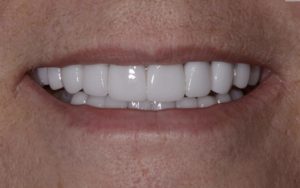
You may find that dental bonding and recontouring your teeth can make a significant improvement in the appearance of your smile, providing you with the confidence boost you've been searching for. Your smile can be brought into harmony and your overall appearance can be improved by removing enamel from some spots and adding enamel to other areas of your teeth. It is possible to restore a young appearance by repairing chips and worn-down teeth, which will also give you the smile that you deserve.
These procedures cause very little discomfort and are significantly more cost-effective than more spectacular dental veneers or crowns. When compared to the possibility of needing a number of separate sessions, the time it takes to obtain a more appealing smile can be as little as one hour. You won't require any anesthetic, so you won't have to worry about missing out on any of your day's activities.
Any Potential Drawbacks to This?
Dental bonding, much like other types of dental restorations, will eventually need to be replaced. Repairs to the bonding, such as touch-ups or replacement, are often required every few years. It's possible for bonding to get loose and fall off if you have certain habits, including biting your nails or grinding your teeth. Due to the possibility of discoloration at the composite borders, smoking should be avoided when bonding is being performed.
Tooth contouring, in contrast to bonding, is a permanent procedure. There is a limit to how much enamel can be safely removed from your teeth since there is only a certain amount of enamel on your teeth. After having contouring done, it is very important to take care of your teeth properly at home and to visit the dentist often for exams. Tooth decay can do more damage to your teeth since the enamel coating on their surfaces has worn away over time.
Which of These Is Best for You?
Get in touch with Summerlin Dental Solutions in the Summerlin neighborhood of Las Vegas if you are curious about whether or not contouring or bonding will be beneficial for you. Because these two common operations are frequently performed together, you can anticipate achieving notable effects in the appearance, shape, and size of your teeth. This is due to the fact that these two standard procedures are often combined together. Because Dr. Cohan has received extensive training in cosmetic dentistry, you may have confidence that she will offer you with exceptional dental care that is tailored to your specific and individual requirements. You should have a smile that you can be pleased with.

The teeth-whitening pen has recently seen a surge in popularity as people strive to achieve whiter smiles. These are products that may be purchased without a prescription and have the appearance of a ballpoint pen or lipstick. These products are also known as whiteners that are applied using a brush in another terminology.
Whitening pens, much like other teeth whitening devices that can be used in the convenience of one's own home, frequently contain bleaching gels such as hydrogen peroxide, carbamide peroxide, or other peroxide compounds. This is true even though whitening pens are not technically considered to be whitening devices. While the gel is being applied to teeth, the peroxide included in the gel degrades, which makes it possible for oxygen to enter the enamel of your teeth and lighten them.
This process occurs while the gel is being applied to teeth. These pens, on the other hand, stand out from other products that might be found around the house due to the fact that they are so simple to use. They are easy to transport and use, and the application process does not take a lot of time.
In order for a product to effectively whiten teeth, the bleaching agent must maintain contact with the teeth during the duration of use. This is a must for any product that makes the claim that it can whiten teeth. Other products designed for use in the house find a solution to this problem by utilizing mechanisms like as trays or plastic strips, in respective order. On the other hand, teeth-whitening pens do not require this form of contact for their treatment to be successful.
Yes, there is a possibility that teeth-whitening pens will live up to their claims of effectiveness. As soon as you use the pen, there is typically a discernible variation in the color of your teeth that can be seen immediately. On the other hand, the effects are not irreversible.
The operation of a teeth whitening brush or pen begins with the application of a coating of bleaching gel to your teeth, which is the fundamental phase in the process. This gel will turn into a solid and will form a film over each tooth that you apply it to once it has been administered. The film will protect the teeth from further damage.
Your teeth are given the appearance of being whiter as a result of the application of this film, which is responsible for producing the lightening effect that gives the illusion of whiter teeth. On the other hand, over time, this film will break down in your mouth and be flushed away by your saliva.
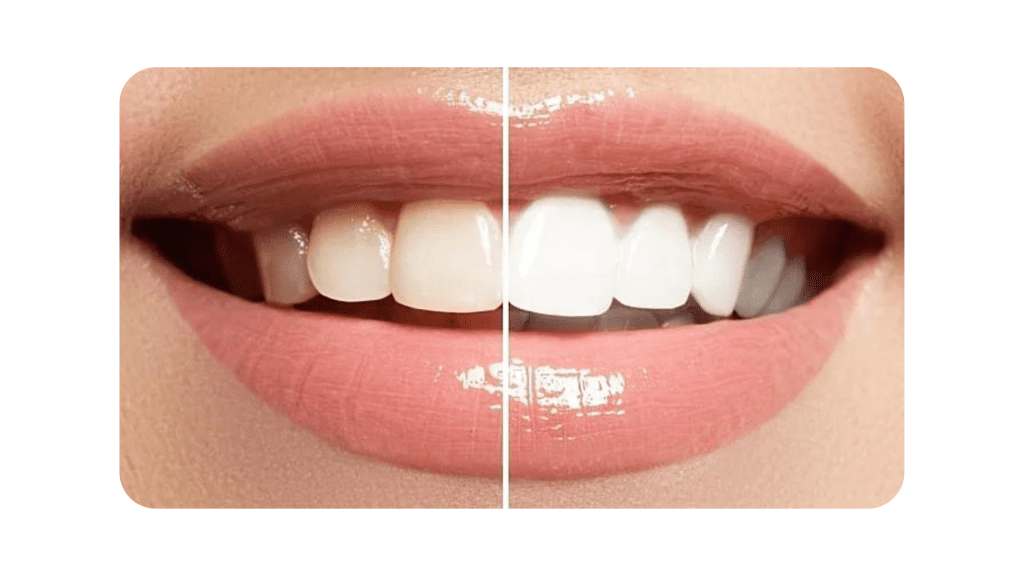
Teeth-whitening pens work best when used just before an occasion that requires whiter teeth, such as a meeting or another social gathering. When consumed after meals, they also have the potential to be of great help.
This is owing to the fact that a wide variety of colored meals, such as berries, coffee, tea, red wine, and many others, can leave stains on your teeth. This is true even if you brush your teeth after consuming these colored foods. Whitening your teeth with a pen is not only convenient, but it also generates results that can be seen in a relatively short length of time.
If you have a history of tooth sensitivity, you should consult your dentist before using any at-home whitening alternatives. This is especially important if you have sensitive teeth. This is an extremely essential point. Teeth whitening pens are only useful for removing stains from the surface of the tooth; your dentist can provide you with more powerful whitening options.
How to use a whitening pen on your teeth and achieve optimal results
It's possible that different pens will have varying directions for how to apply the ink to the nib. Even if there are some basic advice that you can follow, it is imperative that you always make it a point to study the specific directions that are provided.
Using a teeth-whitening pen, on the other hand, is normally a simple and straightforward process, and the following steps should be followed:
When applying it, you want to make sure that you paint all of the surfaces of your teeth with the pen so that it seems natural. The areas that have the most noticeable discolouration require a higher priority level of treatment. Be sure to stop applying the product a fraction of an inch or two before reaching the gum line. As a side effect, this will assist in preventing inflammation to the gums.
It is imperative that the gel not be removed by rinsing prior to the finish of the treatment session. It is necessary for it to continue making contact with your teeth in order for it to have any effect. After the gel has dried, you should make sure to leave it in place for twenty to thirty minutes for it to have the most amount of effect. In order to make the process run more easily, you should avoid doing anything that could cause the teeth whitener to become dislodged from its location on your teeth. Gargling with water and ingesting anything to eat or drink are both included in this step.
When the film has had some time to dry, it will have a greater inclination to be removed by natural means on its own. Despite this, you shouldn't forget to brush your teeth afterward in order to get rid of any lingering remnants that may have been left behind.
How often should you use a whitening pen on your teeth to get the best results?
The amount of times that one should use a whitening pen before seeing optimal results is something that can vary from one manufacturer to the another. However, most pens can be used anywhere from one to two times each day, and sometimes even more. Be sure to verify the instructions that come with your particular pen to ensure you get the best possible results. It will make a recommendation for the number of times per day that you should use the pen and it will offer you that recommendation.
If I use a tooth whitening pen, is it safe to do so?
Because it is a medication that can be purchased without a prescription, using a whitening pen is typically an extremely risk-free activity. However, it must be utilized in a manner that is consistent with the instructions provided. When it is utilized in an irresponsible manner, there is the risk of encountering unfavorable effects and issues.
Make sure to use a pen that contains components that are not harsh, as this will reduce the possibility that you will experience any adverse effects. Because excessive use of these items might increase the possibility of enamel damage, you need to make sure that you only use them when it is absolutely necessary to do so. Consult your dentist for information that is more comprehensive.
Which tooth whitening pens are the most effective?
Your teeth's level of sensitivity and the number of times per week that you plan to use the whitening pen are two of the most important considerations that will go into selecting the most appropriate product for you. If you are having difficulties determining which choice to go with, the ones that are provided here are some viable possibilities for you to take into consideration.
• Smilebriter Teeth Whitening Gel Pens for a Brighter Smile
Whitening pens produced by Smilebriter are now among the most popular items of their kind that can be purchased anywhere on the market right now. Because they have a refreshing peppermint flavor, there is no need to be concerned about having a bitter or medical taste in your tongue after using them.
• The Optic White Overnight from Colgate
This whitening pen has a formulation that is gentle, and it works while you sleep, which means that you won't have to worry about waiting for it to dry during the course of the day. You need just apply it before retiring for the night, then remove it in the morning with some warm water, and you'll be good to go. When you buy this product, you can be certain that you will get your money's worth because each pen contains 35 nightly treatments. This allows you to make an informed decision about whether or not to buy it. In addition, the pen does not have any gluten or sugar in its composition.
• The AsaVea Whitening Pen for Teeth
You do not need to be concerned about it having a bitter or medicinal aftertaste because it naturally has a mint flavor. This is why you should take it. The procedure is absolutely painless and non-invasive, and the pen can be used as frequently as twice daily without any adverse effects. This product, which has received a lot of positive feedback, will remove stains that have been on your teeth for years.
This pen does not contain fluoride and comes in a subtle flavor combination of coconut and mint. It is an all-natural alternative to more conventional brands. It is based on the technique of oil pulling, which is a method of teeth whitening, and it not only helps whiten your teeth but also helps promote healthier gums in your mouth. You may also like to seek the guidance of a dentist for other recommendations that are more particular in nature. They will be able to point you in the appropriate path based on the level of sensitivity that your teeth have as well as the strength of the product that you need to use.
Additional advantages of using teeth-whitening pens
Pens are a good choice for situations in which you require something that is both portable and simple to operate. You don't have to place them on all of your teeth at the same time; rather than that, you may just put them on the sections of your teeth or the areas of your teeth that require treatment.
In addition, as compared to other whitening methods that you could use in the comfort of your own home, these products are likely to irritate your gums less. Due to the absence of complicated and cumbersome administration equipment, there is no need to worry about inducing an excessive amount of saliva or experiencing any of the other unfavorable effects that are caused by trays and strips.
Whitening pens are often considered to be among the most efficient and economical approaches to the process of brightening one's teeth. In addition, you can buy them without a prescription at the counter of most pharmacies.
Conclusions and musings
Therefore, should you give teeth-whitening pens a shot? Yup! Even if they do not produce results that are long-lasting, they are one of the better alternatives that can be found because they are not only convenient but also economical. This makes them one of the better options. You can always check with your dentist if you have any doubts about something.
If you have a history of tooth sensitivity, you should consult your dentist before using any at-home whitening alternatives. This is especially important if you have sensitive teeth. This is an extremely essential point. These are just capable of removing stains on the surface of the tooth, whereas dentists are able to provide a way of whitening that is significantly more efficient.
CLICK HERE TO SCHEDULE YOUR APPOINTMENT!
GET TO KNOW YOUR BEST DENTIST IN SUMMERLIN
Dr. Marianne Cohan was voted The Best Dentist/ Dental Office and Best Cosmetic Dentist from The Las Vegas Review-Journal in 2020 and 2021. She received her Doctor of Dental Surgery (DDS) from the State University of New York at Buffalo in 1992.

With an emphasis on cosmetic dentistry, complete makeovers, and implant dentistry, Dr. Cohan is committed to continuing education and feels that we never stop learning. Dr. Cohan takes pride in using high-powered magnification to perform minimally invasive restorative dentistry. She uses all the latest technological advances including digital radiography, digital photography, computer simulations, and high-resolution pictures of your proposed treatment on 55-inch screens. She also utilizes CBCT (cone beam) and laser technology.
Dr. Cohan is always available to her patients and is available for any dental emergency.
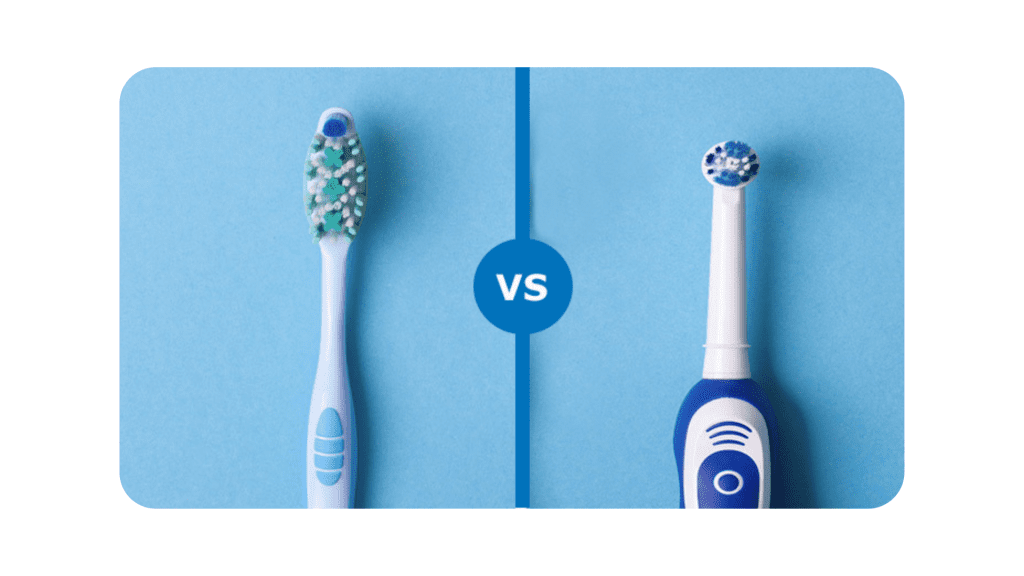
Both manual and electric toothbrushes are effective in removing plaque and tartar accumulation from our patients' teeth in Summerlin; however, each type of toothbrush has its advantages and disadvantages. If you've been debating whether or not to invest in an electric toothbrush, here are some advantages and disadvantages of each option for your consideration.
Each product offers some advantages that the others don't have to offer. Our dental customers in Summerlin should find this list helpful in determining which option best suits their needs.
Traditional Toothbrush
• Simple to gain access to: Manual toothbrushes are widely available and can even be purchased in convenience stores and gas stations. There is no guarantee that they are of high quality, but they are available everywhere.
• Inexpensive: Who, after all, has the right to complain about a product that, for a relatively small investment, has the potential to make one's teeth last significantly longer?
• It is simple to transport; simply place it in a bag, and you are ready to embark on an adventure anywhere in the globe. (However, I do suggest placing it in a cover so that it is shielded from any bacteria that may be there.)
Toothbrush with an Electric Motor
• A superior cleaning: It has been demonstrated that using an electric toothbrush, which provides vibration and/or a circular motion, results in a more complete cleaning than using a manual toothbrush.
• The optimal amount of pressure, which includes:
To use the toothbrush, you need just to have a light grip on it in one hand and move it around in your mouth in a circular motion. Your teeth and gums receive just the appropriate amount of pressure, which helps to protect them from injury.
People who suffer from carpal tunnel syndrome or arthritis will find that using an electric toothbrush is much simpler than using a manual toothbrush due to the fact that the electric toothbrush does the majority of the work for the user.
• Increased awareness: When a person goes to the extra effort to get an electric toothbrush, they become more conscious of the procedures that they use when they brush their teeth. It is possible to noticeably improve the effectiveness of your tooth-brushing routine just by paying closer attention to the technique you employ.
• Timers: The majority of electric toothbrushes are equipped with their own built-in clocks. These timers serve two purposes: first, they assist users become more conscious of how long they should be brushing for, and second, they ensure that they are brushing for the appropriate amount of The mouth is sectioned off into four quadrants, and it is recommended that each quadrant be brushed for a full minute. Some powered toothbrushes may beep or signal you in some other way after each 30-second interval, instructing you to go on to the next quadrant, and then will shut off automatically after two minutes of use.
• Useful Applications: You did read that sentence correctly. Powered toothbrushes typically come packaged with their very own app in today's modern world. When done with children, the activity can be entertaining and involved, and the participants can learn the correct way to brush their teeth. The number of times a child brushes their teeth can be monitored by the parents.
Adults who use the app for themselves can receive notifications when it is time to replace the head of their toothbrush or when they are brushing their teeth with too much force.
There is always some aspect of a positive thing that can be improved. The disadvantages of owning each product are listed below.
Manual
Some manual toothbrushes have huge heads that are difficult to reach into the back of your mouth. As a result, it is nearly impossible to clean all areas of your teeth with one of these brushes since they are tough to manipulate.
• Brushing too vigorously: many people are under the impression that the more vigorously they brush their teeth, the cleaner their teeth will be. This is a widespread fallacy. The part of the bristles that are responsible for cleaning are the tips. When you put pressure on a toothbrush, you are effectively cleaning the sides of your teeth using the bristles that are on the sides of the toothbrush. This will result in unsatisfactory outcomes and the wearing away of enamel.
• Improper bristles You should only use a toothbrush with soft or extra-soft bristles, but many of the manual alternatives sold in stores have bristles that are medium or hard, which can cause damage to the enamel on your teeth as well as the gum tissue around them.
Toothbrush with an Electric Motor
• Costly: The price of an electric toothbrush can range anywhere from five dollars to three hundred dollars, depending on the features that are most important to the buyer.
•Can make traveling more difficult.
Even though the majority of electric toothbrushes can maintain their charge for a few days, if you are going to be gone for a longer period of time than usual, it is highly likely that you will need to charge your toothbrush. This means that you will need to make space in your luggage for both your charger and your charging station. In addition, if you are going to be traveling outside of the country, the type of energy that is common there might not be compatible with the charger that you have. IN LIGHT OF THIS FACT, manufacturers such as Sonicare and Oral-B have incorporated a convenient manner to transport their toothbrushes into their designs. Additionally, the more recent models are equipped with a charger that is attached to the carrying bag and connects into any standard USB connection, making it simple to transport. Oh, and another additional plus is that the case of all of these brands can contain two toothbrush heads. This means that if you are traveling with a companion, it will be that much easier for both of you!
• Vibration: Sonicare and Oral-B electric toothbrushes clean by vibrating (Sonicare) or spinning (Oral-B). The majority of the time, you will become accustomed to this, despite the fact that it can occasionally be ticklish, untidy, or uncomfortable to certain individuals. Because of this, there are some people who can't stand the feeling and won't even use an electric toothbrush because of it.
• Locating appropriate replacement heads: The head of powered toothbrushes typically detaches so that it can be discarded once it has served its purpose. Because some manufacturers want to guarantee that you will only purchase their product, there may be no other heads available that are compatible with your base. This means that you will have to purchase new heads only from those manufacturers.
Don't Neglect to Have Your Teeth Cleaned by Your Dentist in Summerlin!
Plaque will always remain on your teeth, no matter how much money you spend on your toothbrush or how often you clean them. This is true regardless of how well you take care of your teeth. It is extremely difficult, if not impossible, for a toothbrush to remove plaque that has hardened and turned into tartar buildup. Because of this, it is extremely important to schedule regular appointments with our dentist in Summerlin. You should try to get your teeth cleaned professionally at least twice a year in order to maintain good oral health.
In Summerlin, Nevada, the most highly recommended dentist is Summerlin Dental Solutions, where you'll find Dr. Marianne Cohan and the rest of the warm and welcoming staff. We can't wait to get to know you better and assist you in taking care of your teeth for many years to come! Give us a call right now.
CLICK HERE TO SCHEDULE YOUR APPOINTMENT!
Dr. Marianne Cohan was voted The Best Dentist/ Dental Office and Best Cosmetic Dentist from The Las Vegas Review-Journal in 2020 and 2021. She received her Doctor of Dental Surgery (DDS) from the State University of New York at Buffalo in 1992.

With an emphasis on cosmetic dentistry, complete makeovers, and implant dentistry, Dr. Cohan is committed to continuing education and feels that we never stop learning. Dr. Cohan takes pride in using high-powered magnification to perform minimally invasive restorative dentistry. She uses all the latest technological advances including digital radiography, digital photography, computer simulations, and high-resolution pictures of your proposed treatment on 55-inch screens. She also utilizes CBCT (cone beam) and laser technology.
Dr. Cohan is always available to her patients and is available for any dental emergency.
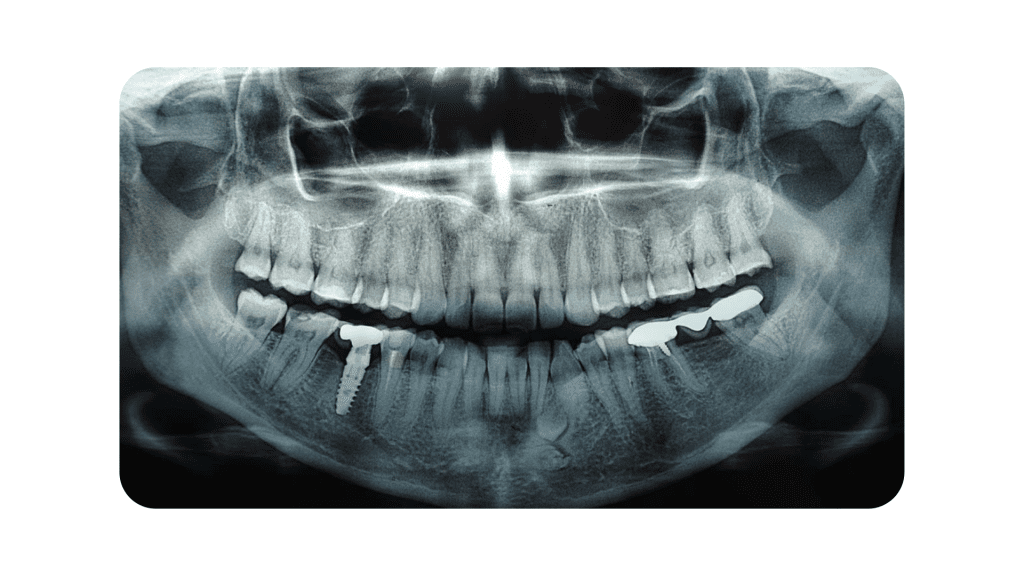
What We Can Learn From Their X-Rays About Our Teeth
We will likely take a variety of dental x-rays during your or your child's initial visit to our Summerlin location. Thanks to these films, we can view the inner structure of your mouth, including the bone, the roots of your teeth, and the nerve tissue that connects them.
Radiographs are incredibly useful for diagnosing dental conditions that are not visible to the naked eye. These disorders can affect the teeth and jaw. For instance, if you are experiencing pain but there are no visible abnormalities in your mouth, dental x-rays will reveal whether or not an infection is growing beneath the surface of the tooth or teeth causing the suffering.
We utilize four different types of x-rays, including bitewings, periapicals (PAs), a panorex or panoramic, and a dental cat-scan. Due to the specific characteristics of each form of dental radiograph, we are able to accurately diagnose an extensive range of dental problems. Following is a breakdown of the elements that comprise each film, as well as an explanation of why we want a specific image.
When you brush your teeth, the majority of the plaque and tartar buildup on your smile will be eliminated. However, the bristles cannot reach the spaces between your teeth to remove plaque from those regions. Therefore, the dentist at our Summerlin office strongly advises patients to floss at least once every day. In the case that they are not removed, the leftover food particles will begin to erode your enamel, necessitating a dental procedure to remove it.
We rely on bitewing x-rays to offer light on this aspect of your evaluation since we cannot detect what is occurring between your teeth by simply observing your mouth. Once a year, at one of your twice-yearly dental cleanings, we will take this series of radiographs as a matter of routine and policy.
Taking these images is a quick and straightforward process. When it comes to small children, we can collect all the necessary information from two x-rays. When photographing adults, four photographs are taken. This particular radiograph depicts the body of the tooth structure, but there is no trace of anything below the gumline.
Periapical Films
If we have reason to assume that your dental problem is located deeper in your tooth, the periapical x-ray will reveal the whole anatomy of the tooth, including the pulp and nerve canals, as well as the surrounding roots and bone. In this instance, the periapical x-ray will be taken.
If we are dealing with a tooth with an abscess, this film will display a black shadow at the end of the root. In addition to aiding in the diagnosis of your condition, a periapical examination will provide the information necessary to identify the most efficient approach of treatment. For example, if there is adequate healthy tooth structure remaining and the nerve anatomy within your tooth is typical, we will likely recommend root canal therapy to fix it. This will enable us to eliminate the infection and preserve your tooth. If the x-rays taken at the dentist's office reveal that too much of the tooth is gone, the tooth will need to be pulled.
When we inspect the tooth's roots, it will be easier for us to determine whether or not you need to see an oral surgeon to have a tooth out. If the roots are very large and curved, or if there are significant nerves flowing through the area, you may be referred to a specialist for your own protection.
A Panorex ("Pano")
When your child reaches a certain age, we will verify whether their teeth are developing regularly and in the proper sequence. In order to aid in this evaluation, we will take a panorex x-ray, which is a two-dimensional image that displays the head and neck's inner architecture from the nose to the chin and all the way back to the TMJ.
In addition, wisdom teeth, which might be difficult to detect with other forms of x-rays, are far easier to inspect with panorex images. In addition, these photographs will reveal any bone fractures, malignancies, sinus infections, or cysts that may be present.
Dental Cat-Scan

A dental CT scan delivers the same information as a panorex, but because it generates a three-dimensional image, it provides far more detail. This image can be used to establish the amount of space in the bone, the density of the bone, and whether dental implants are a realistic option for you. If you are considering dental implants, this image can be used. During the implant placement process, the CT scan is crucial in ensuring that the implant is accurately positioned.
Because this three-dimensional imaging allows us to see the exact shape of the tooth's nerves and roots, it is extremely useful for root canal therapy and extractions. As a direct result of this, root canal treatments have a better success rate, and tooth extractions are easier to do.
Trust Our Smile Team
Dr. Cohan, our Summerlin dentist, uses the latest advanced digital x-ray technology to precisely detect and treat any dental diseases his patients may have. When you become a patient of ours, the care of your health will be our top priority. By integrating cutting-edge technology, we can ensure that we are doing everything possible to improve your smile and general health.
Residents of the Summerlin region who have been searching for a new dentist should visit our office immediately. Call us immediately to schedule an appointment!
CLICK HERE TO SCHEDULE YOUR APPOINTMENT!
GET TO KNOW YOUR BEST DENTIST IN SUMMERLIN
Dr. Marianne Cohan was voted The Best Dentist/ Dental Office and Best Cosmetic Dentist from The Las Vegas Review-Journal in 2020 and 2021. She received her Doctor of Dental Surgery (DDS) from the State University of New York at Buffalo in 1992.

With an emphasis on cosmetic dentistry, complete makeovers, and implant dentistry, Dr. Cohan is committed to continuing education and feels that we never stop learning. Dr. Cohan takes pride in using high-powered magnification to perform minimally invasive restorative dentistry. She uses all the latest technological advances including digital radiography, digital photography, computer simulations, and high-resolution pictures of your proposed treatment on 55-inch screens. She also utilizes CBCT (cone beam) and laser technology.
Dr. Cohan is always available to her patients and is available for any dental emergency.
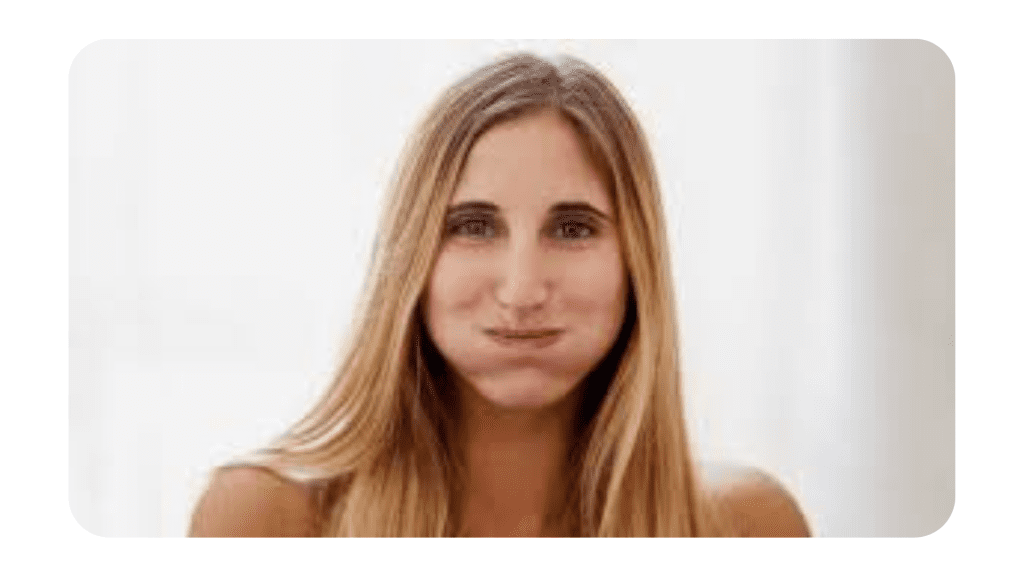
What is Oil Pulling and why is it for me?
A big confident smile can feel amazing. Believe us when we say that we have spent a lot of time and energy looking for new ways to whiten our teeth. Having teeth that are yellow or dull can have a negative impact on both your professional and social life. For this purpose, a technique known as "oil pulling" is carried out. This time-honored practice has the potential to improve not only your oral health but also your general health as a whole.
Oil pulling is an age-old home remedy that has its roots in the Ayurvedic medical system, which originated in India thousands of years ago. Oil pulling is a remedy that has been used for generations. You can improve your oral hygiene and get rid of bacteria at the same time by swishing oil around in your mouth like you would with water. One must start the process of oil pulling by taking one tablespoon of oil and swishing it all around their mouth and in between their teeth for approximately twenty minutes first thing in the morning on an empty stomach, as stated in an article that was published in the Journal of Traditional and Complementary Medicine. In order to perform oil pulling, one must begin the process by taking one tablespoon of oil.
If you are unable to commit to working continuously on the task for the full twenty minutes, you might want to think about splitting it up into two sessions of ten minutes each. Regardless of the circumstances, it is essential to spit it out at the very end of the conversation. This is as a result of the fact that potentially harmful bacteria can be found in oil that has deteriorated to the point where it has a watery and milky consistency.
In light of all of this, we cannot stress enough how important it is for you to schedule an appointment with a dentist in order to obtain detailed information about the state of your oral health. Even though the American Dental Association does not recognize oil pulling as a reliable dental remedy due to a lack of scientific evidence, you should still talk to your dentist about it because it can be beneficial to your oral health. Your dentist will be able to assist you in determining whether or not you should give it a try, as well as whether or not it is appropriate for you.
Does oil pulling work?
There is a vast body of research in the form of scientific studies that has been done on oil pulling. These studies detail the various effects and benefits of the practice. Regarding the topic of oral hygiene and the positive effects that pulling the teeth can have on one's health, we have compiled a list of the sources that we believe to be the most credible. Let's explore.
Using oil extracted from coconuts to pull. Gingivitis was found to be less severe in patients who pulled their teeth with coconut oil, according to a study that was published in the Journal of Natural Science, Biology, and Medicine (JNSBM). It is even more effective than sesame oil, which is saying a lot given that sesame oil is already very effective.
In yet another investigation, it was found that cleaning the teeth by pulling them through coconut oil was beneficial. The findings of the study indicate that its effectiveness is comparable to that of the potent antiseptic mouthwash chlorhexidine. Coconut oil has been shown to be effective at lowering the levels of bacteria in the mouth that contribute to tooth decay. In addition, it whitens your teeth and detoxifies your body as a result of the naturally occurring lauric acid that it contains.
Grabbing some olive oil and pulling it through the hair
Olive oil was found to be effective for oil pulling in the mouth in a study that was conducted at Balikesir University. The study looked at the properties that make oil pulling effective. Antioxidants and antimicrobials are two examples of these beneficial properties.
It is vitally important to keep in mind that these studies were carried out by specialists on a small scale, and that they unquestionably provided encouraging results in regard to oil pulling. Even if you are already taking medication for a condition, this does not mean that you should rely solely on oil pulling as a treatment for the condition. Instead, you should continue taking your medication. In addition, you can combine the tooth-pulling therapy with other dental hygiene practices, such as brushing and flossing your teeth on a daily basis, if you are diligent about these activities. It is of the utmost importance that you find an experienced dentist with whom you can discuss your oral health in order to improve the quality of dental care that you receive; we cannot stress this point enough.
The many positive effects that oil pulling has on one's health.
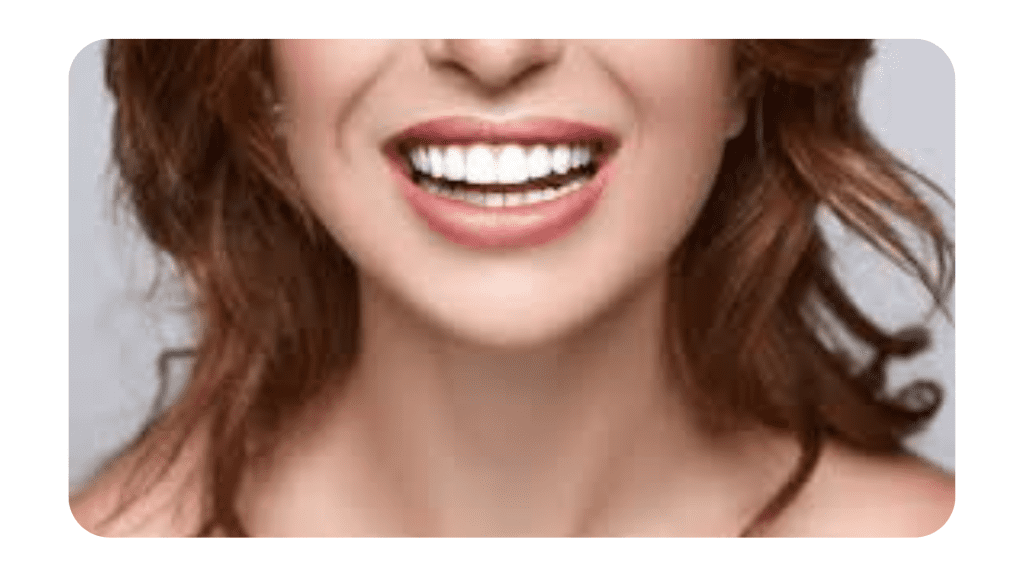
It eradicates bacteria that can be detrimental to the health of your mouth and teeth.
You should already be aware of the fact that millions of microorganisms call your mouth their home, with bacteria making up the vast majority of these inhabitants. In addition to other illnesses that have the potential to disrupt our immune system, some of them can lead to periodontal disease, which causes bad breath and tooth decay.
The findings of a study that was published on the website of the NCBI indicate that oil pulling is an effective method for removing the harmful bacteria that are present in saliva. There were approximately sixty individuals who took part in the clinical trials, and the findings revealed that almost all of them had improved their oral hygiene (and all with coconut oil). Because it also possesses antibacterial properties, it is without a doubt a risk-free and beneficial alternative to chlorhexidine. This is due to the fact that it possesses antibacterial properties.
This results in a person's breath being less offensive.
Bad breath can be caused by a number of different conditions, including gum disease, cavities, infection, a coating on the tongue, or even just a lack of proper oral hygiene. The buildup of bacteria has the potential to bring about these problems all by itself. The National Center for Biotechnology Information (NCBI) has published yet another study that shows that oil pulling is one of the natural methods that can be used to get rid of bad breath. In addition to this, you can use it in conjunction with a mouthwash that contains chlorhexidine. Additionally, it prevents your throat, mouth, and lips from becoming dry, which is a major benefit.
It acts as a preventative measure against tooth decay.
As was previously mentioned, the development of cavities can be caused by an excess of bacteria in the mouth, which can occur when an individual consumes an excessive amount of sugar. Plaque, which is a coating that forms on the teeth and is composed of bacteria, food particles, and saliva, can also be a contributing factor in the development of cavities. This coating has the potential to scratch enamel.
Because it eliminates harmful bacteria from your mouth, oil pulling can also, in a roundabout way, serve as a preventative measure against cavities. If you want to have the best possible oral health, in addition to flossing, rinsing, and brushing your teeth, you should think about incorporating pulling therapy into your daily routine. This is something you should do if you want to have the best possible oral health.
Additionally, it helps reduce inflammation while simultaneously enhancing the health of the gums.
Gingivitis, a condition that can be brought on by the bacteria that are present in plaque, can bring on symptoms such as bleeding gums, swollen gums, and other similar manifestations. The anti-inflammatory effects of the properties found in coconut have been the subject of research and discussion in the scientific community. You could also try using sunflower oil, which naturally contains omega-3 fatty acids, which are yet another type of compound that helps reduce inflammation.
It has been demonstrated that performing the technique known as "oil pulling" can improve the overall health of a person's jaws, gums, and teeth. It is one of the holistic treatments that people can try out in the event that their gums continue to bleed.
Anecdotal benefits
Additionally, there is some evidence that gargling with oil can lessen the severity of the signs and symptoms of allergic reactions. It is effective in treating skin conditions such as eczema and acne, as well as reducing congestion in the sinuses, which helps prevent lipoid pneumonia. Other skin conditions that can be effectively treated include psoriasis and rosacea. In conclusion, pulling can help your body expel potentially harmful microorganisms as well as metals from its system. This can be accomplished through the removal of toxins.
Pulling oil from oil Does oil pulling have any side effects or unintended consequences?
There has not been a single adverse effect that can be attributed to pulling your teeth through oil that has been identified on the body. It's possible that the vigorous motion of swishing might give you a slight headache, but don't worry about it too much because this is a perfectly normal side effect.
Keep in mind that you shouldn't swallow the oil either; this is very important. It has the potential to cause diarrhea as well as stomach upset because it is full of bacteria and has the potential to make you sick. In addition, it is always a good idea to look for an experienced dentist in the area who can provide you with an accurate assessment of your current dental health. This can be done by looking for a dentist who has worked in the area for a while.
You might want to try sucking on some oil.
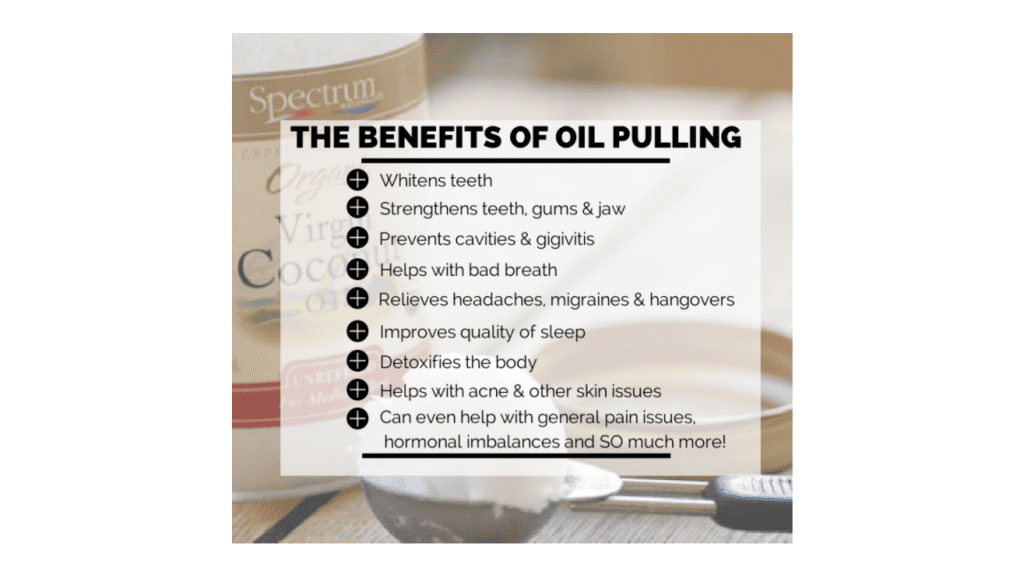
You can get started with oil pulling right away by following the steps that are outlined in the following paragraphs. The process of oil pulling is very simple, and you won't have any trouble understanding how to do it. If you want to get the most out of this activity for your health, try doing it first thing in the morning on an empty stomach. This will give you the maximum benefit from the activity.
What is the recommended time frame for completing it?
If you want to, you can pull your teeth through oil on a daily basis if that is what you find most comfortable doing. It is not a problem to carry out this activity on a daily basis; however, carrying it out more than once per day is not something that is recommended.
Verdict
Because you only get one set of permanent teeth in your lifetime, it is critical that you take good care of your natural teeth. In spite of the fact that more research needs to be done on the topic, there have been no reports of undesirable consequences from oil pulling, and there are even a few benefits that have been identified. Discuss the situation with your dentist, and make an appointment to get started on this treatment as soon as you can.
CLICK HERE TO SCHEDULE YOUR APPOINTMENT!
GET TO KNOW YOUR BEST DENTIST IN SUMMERLIN
Dr. Marianne Cohan was voted The Best Dentist/ Dental Office and Best Cosmetic Dentist from The Las Vegas Review-Journal in 2020 and 2021. She received her Doctor of Dental Surgery (DDS) from the State University of New York at Buffalo in 1992.

With an emphasis on cosmetic dentistry, complete makeovers, and implant dentistry, Dr. Cohan is committed to continuing education and feels that we never stop learning. Dr. Cohan takes pride in using high-powered magnification to perform minimally invasive restorative dentistry. She uses all the latest technological advances including digital radiography, digital photography, computer simulations, and high-resolution pictures of your proposed treatment on 55-inch screens. She also utilizes CBCT (cone beam) and laser technology.
Dr. Cohan is always available to her patients and is available for any dental emergency.
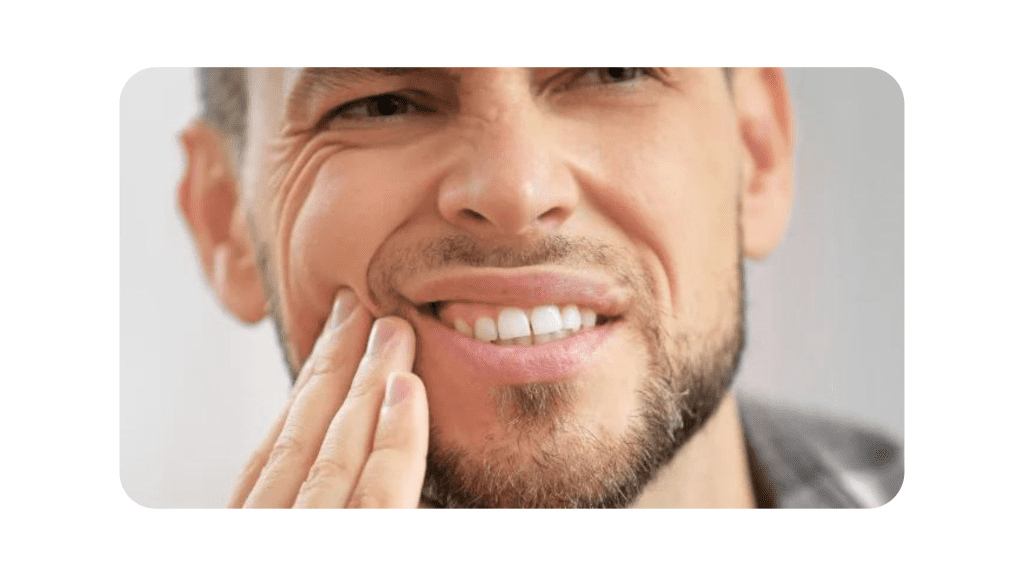
Disorders of the temporomandibular joint (TMJ): symptoms and treatment options
Does that the joint in your jaw hurts so much that you just don't feel like talking much right now?
In the United States, those who are coping with temporomandibular joint diseases make up about 12% of the population at any given moment. This phrase, which is a mouthful in and of itself, refers to the joint in your mouth that enables you to eat, drink, and speak. It's a blessing that the majority of issues associated with this joint are only transitory, but while you're in the thick of things, that may not be much of a consolation.
Have you ever attended a Halloween party and seen one of those skeletons that sing and dance? If so, you've previously witnessed the function of the temporomandibular joint, also known as the TMJ. Each of us has two of these joints, one on each side of the head. These joints are called the zygomatic joints. They can be found at the area where the mandible, also known as the jawbone, meets the temporal bones of the skull, which can be found all around and in front of the ears. This is where that absurdly long name originates from.
Because it is a synovial joint, the synovial fluid that surrounds it helps to cushion any movement that takes place. It is also a double joint, which indicates that there are two synovial chambers that are completely independent from one another.
The temporomandibular joint (TMJ) enables the jaw to move laterally, forward and backward, as well as hinge vertically.
What signs and symptoms are associated with TMJ disorders?
People who suffer from TMJ disorders (TMD) may exhibit a variety of symptoms, including the following:
What are the reasons for TMJ disorders?
TMJ issues are more than two times as likely to impact women of childbearing age than they are to affect men. It is believed that increased levels of the hormones estrogen and progesterone create ligament laxity (greater play in the joint), which might add to the discomfort associated with TMJ.
Of course, this is not the only thing that might bring on TMD or contribute to its development.
Rheumatoid arthritis is a form of arthritis that is an autoimmune illness. Rheumatoid arthritis can be the primary cause of your TMJ pain since it leads your body to attack its own joints. According to the findings of a study conducted on persons who suffer from rheumatoid arthritis, over 93% of them experience issues with their TMJ.
The temporomandibular joint (TMJ) is not immune to the degenerative effects of osteoarthritis, which can affect any joint in the body.
Psoriatic arthritis is a chronic inflammatory joint disorder that can potentially impact the temporomandibular joint (TMJ) and can develop in approximately thirty percent of those who have psoriasis.
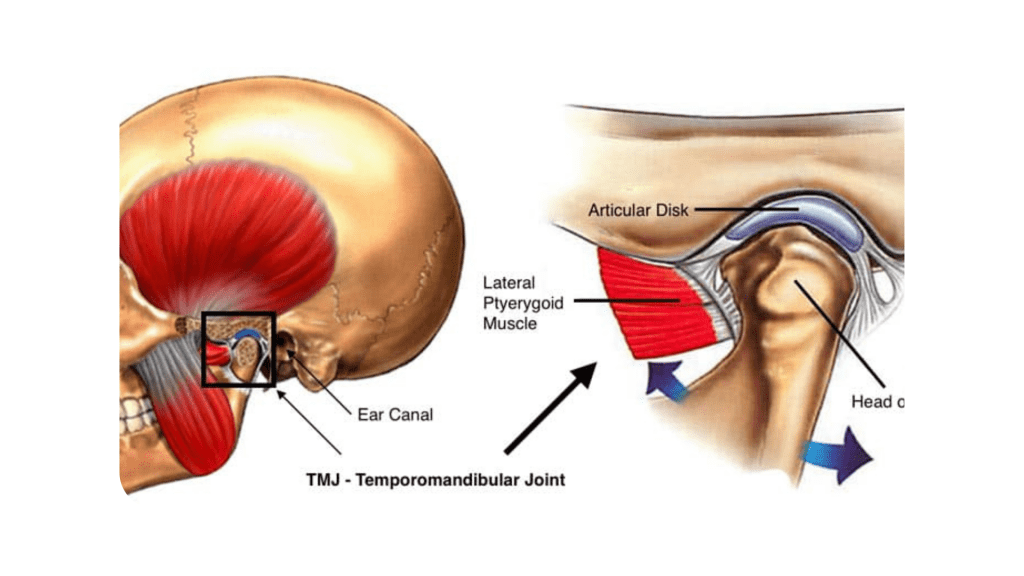
Dislocation or harm to the body
Have you recently been the victim of a hit to the jaw or have you had substantial dental work done? Too much strain on the joint can lead to difficulties, and this tension can be caused by trauma such as a blow to the area or prolonged straining.
Actions carried out repeatedly
Do you frequently pick at your fingernails or bite them? Do you chew gum on a regular basis? Do you clench your jaw or grind your teeth? Bruxism affects the jaws of some persons without their knowledge (nighttime tooth grinding). All of these things can cause your TMJ to get overworked and give you problems.
Jaw misalignment
TMD is frequently experienced by patients whose jaws are not aligned properly. The natural construction of the jaw is flawed, and as a result, it does not fit together as it should, which can result in a painful condition. Find a dentist who can assist in correcting these difficulties and relieving the discomfort.
Connective tissue disorders
Connective tissue disorders can cause the jaw to become too mobile or misaligned, both of which can be uncomfortable for the patient. TMJ pain can be caused by any one of these conditions.
Stress
Because anxiety and stress can have an effect on almost every organ and system of the body, we can't ignore the jaw in this discussion. Tense muscles in the face and neck, as well as a clenched jaw, can all contribute to jaw discomfort.
Medications
A number of different prescription drugs may also cause TMJ as a side effect. Oral contraceptives, antipsychotics, and antidepressants are all examples of these types of medications.
How are problems of the TMJ identified and treated?
The first thing you should do if you think you might have TMJ is to schedule an appointment with your primary care physician or dentist. Talk to your doctor about the symptoms you're experiencing, and don't forget to bring up any other health issues you could be dealing with, including arthritis.
Your jaw will be examined, and your range of motion will be observed, by your healthcare expert while you are being examined. Additionally, they will pay great attention to what you have to say and will feel the joints in your face when you open and close your mouth.
At this stage, if they have any reason to suspect that there is an issue, they will likely order testing so that they can take a more in-depth look. Radiographs taken at the dentist's office can be used to examine both the teeth and the bones. Your doctor may recommend getting a CT scan so that they may get more in-depth images of the bones. It is possible that an MRI will be required in order to examine the joint's soft tissue in greater detail.
TMJ disorders—do they ever go away?
Because the symptoms of TMJ can appear and disappear at any time, some people choose to ignore them when they are present and express gratitude when they are no longer an issue. TMJ can also be effectively treated using at-home therapies like exercises and relaxation techniques, as well as heating or cooling packs to apply to the affected area. You can also temporarily numb the discomfort and continue on with your day by taking over-the-counter pain medicines that aren't too strong.
There is some disagreement among medical professionals as to whether or not TMJ can resolve itself over time. For the vast majority of people, the answer is determined by the underlying reason for their discomfort.
On the other hand, nearly everyone will improve after receiving treatment. Since TMJ is typically quite responsive to a variety of treatment methods, there is really no justification for avoiding TMJ pain alleviation in any way, shape, or form.
Is it possible for a dentist to aid with TMJ?
If you suffer from pain in your jaw joint (TMJ) and have an appointment scheduled with your dentist soon, be sure to bring up the issue with your dentist. They can assist in the diagnosis of your condition and, if the root cause is of a dental nature, they may also be able to assist in the treatment of it.
They will likely recommend you to a medical specialist for expert medical assistance if they determine that the causes of your TMJ problems are related to a medical condition. After that, your doctor will analyze the results of the CT scan or MRI to decide which course of treatment is most appropriate for you.
Are diseases of the temporomandibular joint (TMJ) covered by medical or dental insurance?
Concerned about the cost of diagnosing and treating your TMJ disorder? Don't be afraid. The treatment of TMJ disorder is typically covered by insurance. The only concern that needs to be addressed is which types of insurance will pay for it. There are occasions when the question of whether or not your medical or dental insurance will cover it is debated.
Treatments for TMJ are often covered by medical insurance in the majority of instances. This is due to the fact that a joint is still considered to be a joint regardless of where it is situated inside the body.
When should I make an appointment to see a dentist about my TMJ?
Do not put off getting treatment for TMJ if you are suffering any of the symptoms associated with the condition. If you believe that the reason of your troubles is a dental condition rather than one of the other potential causes that we have discussed, then going to a dentist may be the most appropriate first step for you to take.
TMJ can be treated by dentists when the condition is brought on by a misalignment of the jaw or by habits such as clenching the jaw or grinding the teeth (bruxism). The misalignment of your teeth can be corrected by having braces placed on them, or your dentist can build an oral device, commonly known as a splint or a bite plate, that will prevent your upper teeth from grinding against your lower teeth. Both of these options are available.
Medication, including muscle relaxants and anti-inflammatory medication, is also used to treat TMJ, along with other treatments.
Are you interested seeing a dentist in Summerlin, NV?
Are you sick and tired of suffering from the symptoms of TMJ? We sincerely hope that this article has shown you that the therapies available for TMJ issues are nothing to be afraid of and can significantly enhance your quality of life.
CLICK HERE TO SCHEDULE YOUR APPOINTMENT!
GET TO KNOW YOUR BEST DENTIST IN SUMMERLIN
Dr. Marianne Cohan was voted The Best Dentist/ Dental Office and Best Cosmetic Dentist from The Las Vegas Review-Journal in 2020 and 2021. She received her Doctor of Dental Surgery (DDS) from the State University of New York at Buffalo in 1992.

With an emphasis on cosmetic dentistry, complete makeovers, and implant dentistry, Dr. Cohan is committed to continuing education and feels that we never stop learning. Dr. Cohan takes pride in using high-powered magnification to perform minimally invasive restorative dentistry. She uses all the latest technological advances including digital radiography, digital photography, computer simulations, and high-resolution pictures of your proposed treatment on 55-inch screens. She also utilizes CBCT (cone beam) and laser technology.
Dr. Cohan is always available to her patients and is available for any dental emergency.
Canker sores are a common problem that our Summerlin patient base brings up to Dr. Cohan, who is their dentist. These lesions are distinguished from others because they are characterized by the presence of sensitive sores within the mouth. They are also known as aphthous ulcers and aphthous stomatitis. They can be found on the tongue, the inside of the cheek, the lips, or the throat, and they appear in a variety of hues, such as white, gray, or yellow with a border of red.
Are Canker Sores and Fever Blisters, which are both other names for cold sores, the same thing?
An infection caused by the herpes simplex virus manifests itself as a fever blister, often known as a cold sore. However, a canker sore is nothing more than an ulcer (HSV). Canker sores, on the other hand, are not communicable, which stands in stark contrast to cold sores, which are notoriously infectious and almost always manifest themselves externally on the lips.
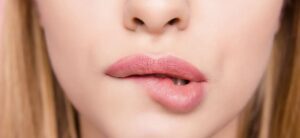
What Contributes to the Formation of Canker Sores and What Can Be Done to Prevent Them
There are many different things that might create canker sores, and each of these things has a unique effect. Some people, according to the hypothesis that these ulcers are inherited, are predisposed to getting them from the moment they are born. While some people can train themselves to detect particular triggers, some people are born with a genetic predisposition to develop this disorder.
On the other side, canker sores are often brought on by the following, which can also serve as preventative measures:
Sodium lauryl sulfate toothpaste, which is more commonly known to as SLS, is a purifying chemical that is found in a variety of toothpastes, personal care products, and skin care products. SLS is an acronym for sodium lauryl sulfate. The viscosity and frothy quality of toothpaste are both attributable to the presence of SLS. Unfortuitously, it may exacerbate the condition in some persons who already have it. In point of fact, a sizeable percentage of individuals have a sensitivity to these sulfates, which results in the development of ulcers on the mucosal lining of their mouths.
Check the list of ingredients that is printed on the back of your toothpaste if you have recurring canker sores and are unable to identify any other factors that might be contributing to the issue. If it happens, you should find another toothpaste that does not contain sodium lauryl sulfate (SLS) as an ingredient and discontinue using the one you are now using.
foods that are prepared at high temperatures and foods that include acids Canker sores are typically caused by acidic meals like citrus fruits like oranges and grapefruits, tomatoes, and even coffee. Tomatoes are another common acidic food that can cause canker sores.
Consuming foods that are particularly spicy might also irritate the sensitive lining of the mouth.
If you believe that the foods you eat may be the root cause of your canker sores, you should give serious consideration to making adjustments to your diet.
Canker sores have been linked to stress, but the exact mechanism by which stress triggers these sores remains a mystery. Nevertheless, there is no denying that stress plays a role in the development of canker sores. In addition to this, it may cause problems such as headaches, gastrointestinal troubles, and difficulty sleeping. You can reduce the amount of stress in your life by doing things like going to the gym, seeing a therapist, getting a massage, or going on a vacation. Going on vacation, treating yourself to a massage, and pursuing other possible courses of action are also options.
Mouth injury - Canker sores can be caused by a variety of oral injuries, such as extremely forceful teeth cleaning, improperly fitting braces or dentures, or the use of a removable mouthpiece. Canker sores can also be caused by the use of a removable mouthpiece.
Take special precautions to protect the delicate oral tissue in your mouth from getting hurt. Brush your teeth thoroughly, see a dentist to have your mouthpieces and dentures fixed, and cover your orthodontic appliances with wax.
Canker sores are a symptom of multiple diseases, including those that affect the immune system (such systemic lupus erythematosus or Behcet's disease) or the digestive tract (like Celiac disease or Crohn's disease). It is recognized that cold sores can be caused by a wide variety of illnesses, including those that weaken your immune system, such as the common cold or influenza, HIV/AIDS, organ transplantation, or oral cancer.
Several medications, including nonsteroidal anti-inflammatory drugs (NSAIDs), beta-blockers, chemotherapeutic therapies, immunosuppressants, and sulfa pharmaceuticals, have been implicated in the development of canker sores. Canker sores are a side effect that have been linked to the use of both over-the-counter and prescription medications.
Talk to your primary care physician about the possibility that the medications you take could be the cause of your canker sores if you have them on a regular basis and take a lot of prescription drugs. This is especially important if you take a lot of medications. They may recommend that you stop using a certain medication or switch to a different medication altogether.
Canker sores' Telltale Signs and Symptoms
Canker sore sufferers would do well to familiarize themselves with the factors that contribute to the development of the condition as well as the signs and symptoms that appear in the days and weeks before a canker sore appears.
The following are some examples of common symptoms and warning indicators that you should watch out for:
Keep in mind the factors that led to our discussion of the causes of canker sores in the preceding section. These are the potential causes of a canker sore.

Canker sores, if left untreated, will normally heal on their own between five and seven days after the onset of symptoms.
Applying ice to the affected area can help relieve discomfort, and periodically washing the skin with a warm solution of salt water can help calm the skin. Applying ice can also help reduce inflammation. Baking soda and apple cider vinegar are two other home treatments that can be utilized (never use hydrogen peroxide).
Canker sores are painful and cause swelling, but there are treatments available over-the-counter that can help alleviate the discomfort and reduce the amount of swelling. Infection prevention is another potential benefit of these medicines. Products such as mouthwashes, protection patches, and topical therapies that are applied directly to the skin are included in this category.
Anti-inflammatory drugs and antibiotics are also available for purchase with a prescription from a medical professional in the event that they are required.
When and how to seek the Assistance of Professionals
If you have a canker sore that is larger than usual, is spreading, lasts longer than a few weeks, causes excruciating pain, restricts your ability to eat or drink, or is accompanied by a fever, contact our dental office in Summerlin as soon as possible to schedule an appointment with one of our dentists.
You can count on Dr. Cohan and the rest of our experienced team to lend you a hand whenever it's most convenient for you. If you have any queries, please don't hesitate to give us a call; alternatively, feel free to stop by; we'd be delighted to see you.
CLICK HERE TO SCHEDULE YOUR APPOINTMENT!
GET TO KNOW YOUR BEST DENTIST IN SUMMERLIN
Dr. Marianne Cohan was voted The Best Dentist/ Dental Office and Best Cosmetic Dentist from The Las Vegas Review-Journal in 2020 and 2021. She received her Doctor of Dental Surgery (DDS) from the State University of New York at Buffalo in 1992.

With an emphasis on cosmetic dentistry, complete makeovers, and implant dentistry, Dr. Cohan is committed to continuing education and feels that we never stop learning. Dr. Cohan takes pride in using high-powered magnification to perform minimally invasive restorative dentistry. She uses all the latest technological advances including digital radiography, digital photography, computer simulations, and high-resolution pictures of your proposed treatment on 55-inch screens. She also utilizes CBCT (cone beam) and laser technology.
Dr. Cohan is always available to her patients and is available for any dental emergency.
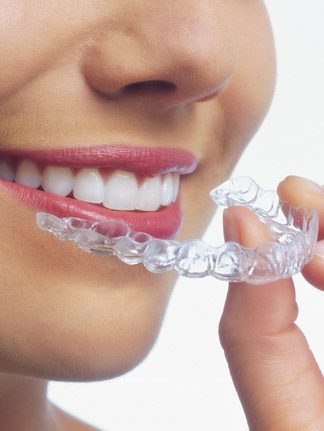
Are you seeking for a way to straighten teeth that doesn't include the use of braces but is less invasive? You may have an overbite, crowded teeth, or slightly misaligned front teeth if you want to straighten your teeth without the metal brackets and wires that are typical of traditional braces. Invisalign is an alternative to traditional braces. As an alternative to conventional braces, you can use something called Invisalign to realign your teeth in a way that does not involve the use of metal. It is possible to realign your teeth into the appropriate position with the use of any one of the several orthodontic treatment techniques that are currently available.
You may have an overbite, crowded teeth, or slightly misaligned front teeth if you want to straighten your teeth without the metal brackets and wires that are typical of traditional braces. Invisalign is an alternative to traditional braces. As an alternative to conventional braces, you can use something called Invisalign to realign your teeth in a way that does not involve the use of metal.
It is possible to realign your teeth into the appropriate position with the use of any one of the several orthodontic treatment techniques that are currently available.
Is it possible for me to straighten my teeth without having to use braces?
There are, in point of fact, a few options besides braces that could potentially result in straighter teeth for you.
If your primary concern with orthodontic treatment is how you look after getting braces, you should be aware that you currently have a number of different orthodontic treatment options available to you.
Alternatives to braces, such as clear, customised aligners, are able to successfully straighten the teeth of the majority of people who prefer to avoid getting braces.
If cost is an issue for you in this scenario, you should be informed that metal braces continue to be your best option for straightening your teeth.
What are the steps I should take to straighten my teeth in the comfort of my own home?
Regardless of the method you choose, you will not be able to successfully straighten your teeth in the comfort of your own home.
Without fail, people who attempt to straighten their teeth without the use of braces wind up making the situation a great deal worse.
Some individuals have put their oral health at risk by doing dental procedures on themselves in the comfort of their own homes using a variety of techniques. It is simple to damage one's teeth by cracking or chipping them, and it is also possible to create major trauma that is not immediately visible.
You run the risk of causing major damage to the bones as well as the nerves. Many individuals who have attempted to straighten their teeth at home without the use of braces have ended up with tooth decay or even lost teeth as a result of their efforts.
In order to fix these issues, an orthodontist will need to implement a treatment strategy that is more comprehensive.
There are many other treatments available, such as Invisalign, that can offer you straighter teeth without the need of traditional braces. These treatments can be found all around the world. Having said that, in order to acquire your clear aligners, you will still need to make an appointment with your dentist.
Different kinds of orthodontic appliances.
Metal

Conventional braces work by applying a correcting strain to the teeth using a combination of metal brackets, metal wire, and metal bands. These components are all made of metal.
After the front teeth have had metal brackets cemented to them, an archwire made of metal is placed along the teeth, and bands are then utilized to secure it to the brackets. The characteristic "metal-mouth" appearance of the wearer is attributable to the braces they choose to wear.
In most cases, orthodontic treatment with metal braces will not begin producing the desired effects for approximately 24 months. During this period, patients are need to maintain regular visits with their dentists so that corrections can be made. The teeth are moved into their ideal positions by gradually tightening the metal braces that are attached to the patient's teeth.
There are times when orthodontic headgear is necessary for the purpose of adjusting the bite and straightening the teeth. The additional pressure that is applied to the teeth as a result of the use of these braces contributes to the acceleration of the process of straightening the teeth.
Ceramic
Ceramic braces are one of the potential treatments that are regarded to be more cosmetically pleasing than other options. These brackets and wires are available in a variety of hues, including clear, white, and colors that suit the patient's teeth. They are the best solution for anyone who wants their braces to be less visible and they are available to anyone.
Unfortunately, ceramic brackets sometimes have a tendency to be significantly larger and heavier than their metal counterparts. This may occasionally irritate the gums and produce discomfort in those areas.
In addition to this, you need to clean them very carefully in order to prevent significant issues with your gums and to prevent stains from developing on them.
Ceramic braces are more likely to shatter than their metal counterparts because ceramic is more brittle. Because of this, less pressure may be applied to them, which in turn makes it possible to stretch out the therapy over a longer period of time.
These braces often have prices that are somewhere in the middle of what you'd pay for metal braces and what you'd pay for Invisalign.
Braces that can ligate themselves or adjust themselves.
The proper amount of corrective strain is applied to the teeth by self-ligating braces thanks to their built-in clips that have spring-loaded doors. These clips have been installed on typical metal braces in place of the elastic bands that have historically been used in their stead.
Self-ligating braces may not be as comfortable to wear as traditional archwire braces because of the unique way in which they are constructed. This is due to the fact that properly aligning the teeth requires less force than other methods. As a direct consequence of this, the duration of the treatment will be cut down.
Because the archwire is able to travel freely within these braces, there is a significantly reduced possibility that any sort of friction will form within them.
Cleaning teeth that have been straightened using self-ligating braces is a lot simpler than cleaning teeth that have been straightened using traditional braces since there is a lot less material implanted in the mouth.
On the other hand, the cost of self-ligating braces is typically more than the cost of regular braces.
Lingual braces are a type of orthodontic appliance that are worn on the tongue and are adjusted from the inside of the mouth to correct the position of the rear teeth. They are an excellent choice for anyone who wants to conceal the fact that they are undergoing orthodontic treatment as a result of this, as they are quite discreet.
The placement of traditional braces is the only characteristic that differentiates lingual from traditional braces. Their framework nevertheless includes components made of metal, such as wires and brackets.
In addition, wearing lingual braces requires periodic visits to the dentist for checkups. They require consistent and regular updates and revisions.
On the other hand, lingual braces enable you to hide your orthodontic appliances but are more challenging to maintain. Traditional braces are less irritating to the skin and require less maintenance.
When you have lingual braces, one of the common side effects is that your tongue and gums will itch. While there are some patients who continue to experience discomfort throughout the entirety of their treatment, there are others who eventually develop accustomed to the sensation.
In addition to this, it is typically much harder to maintain their cleanliness with these materials. People who wear lingual braces need to learn how to brush and floss around the braces because it is vital for their oral hygiene. It is challenging to clean them because of the technical challenges involved, and it is simple to overlook areas that are concealed from view.
Additionally, the cost of lingual braces can be anywhere from one-half to two times higher than the cost of traditional metal alternatives.
Invisalign
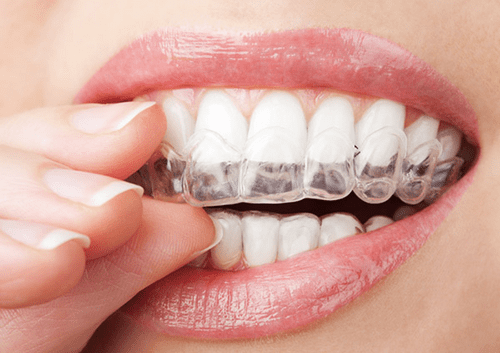
When using Invisalign, a patient will wear a series of clear aligners that have been customized to their mouth. This will progressively move the teeth into the desired position.
When the aligners come into contact with the cheeks, teeth, or gums, the smooth plastic that is utilized to produce them eliminates the risk of irritation to those areas. As a direct consequence of this, wearing them is significantly less uncomfortable than wearing conventional braces.
When it's time to eat, clean, or even attend a special occasion, it's simple to remove Invisalign and get on with your day.
You will need to locate a dentist who is a member of the Invisalign network in order to receive treatment with the aligners. This doctor will perform a digital scan of your teeth, and after they receive the data, the manufacturer will utilize it to make individualized aligners specifically for you.
Every two weeks, the positions of the aligners will need to be switched around. Some patients complete the therapy in as little as half that time, despite the fact that the typical duration of the process is between 12 and 18 months.
Many people consider Invisalign to be the most effective alternative to traditional braces for straightening teeth. This is because Invisalign is virtually invisible while worn.
Dental Surgery
Oral surgery could be required to straighten teeth in extremely rare cases when other methods of treatment have failed. This therapy is used to correct severe cases of skeletal abnormalities, such as overbites, underbites, or jaws that are not positioned correctly.
These treatments are performed by oral and maxillofacial surgeons, who are highly trained specialists who specialize in oral and face surgery.
During the first two weeks of the healing process, the patient may require having their mouth wired shut in order to prevent infection.
Unfortunately, there is no realistic method of surgically straightening teeth that does not include the use of braces.
Following oral surgery, it is common practice to have the patient wear orthodontic appliances. In order to have the best possible outcome, it is likely necessary to continue using them for a period of time anywhere between six and twelve months.
In some instances, retainers are also going to be necessary for the teeth straightening procedure to be successful.
In what degree would my old retainers be able to assist me in the process of realigning my teeth?
Only retainers that have been prescribed to you by an orthodontist can be used to make even a modest adjustment to the position of your teeth. If you try to correct the alignment of your teeth with an outdated retainer, you run the danger of making the teeth much more crooked than they were before.
In order to maintain the alignment of your teeth after completing your orthodontic treatment, you should only use the removable retainers that were prescribed to you. If you notice that your teeth have moved into an abnormal alignment, you should make an appointment with a dentist as soon as possible so that they can be realigned into their correct positions.
How much does the least expensive method of getting your teeth straightened cost?
Braces made of metal are by far the most common and cost-effective form of orthodontic treatment. These items have a price range that often falls between $2,500 and $7,500.
This may yet turn out to be an expensive expense. There are a variety of approaches that may be utilized in order to bring down the cost of having one's teeth straightened, including variations in insurance coverage. The cost of orthodontic treatment is typically covered by insurance, however this benefit is typically reserved for minors and children. The cost of having metal braces fitted and worn will have the possibility of being reimbursed in full or in part by additional insurance providers.
If you want to straighten your teeth for cosmetic reasons, it is highly doubtful that your dental insurance will cover the cost of the surgery. If you want to straighten your teeth for health reasons, however, it is likely that your insurance will cover it.
There are a few different avenues that can be pursued to acquire privately funded assistance for dental procedures such as braces and other orthodontic operations.
Should you make an appointment to visit the dentist?
It is imperative that you make an appointment with an orthodontist if you desire to have attractive teeth and a smile that is straight. The process of correcting crooked teeth requires both the development of an exhaustive treatment plan and the expertise of a dentist.
Get in touch with a dentist in the area so that you can schedule an appointment. In order to straighten your teeth without the use of braces, you should consult your dentist about the options available to you.
CLICK HERE TO SCHEDULE YOUR APPOINTMENT!
GET TO KNOW YOUR BEST DENTIST IN SUMMERLIN
Dr. Marianne Cohan was voted The Best Dentist/ Dental Office and Best Cosmetic Dentist from The Las Vegas Review-Journal in 2020 and 2021. She received her Doctor of Dental Surgery (DDS) from the State University of New York at Buffalo in 1992.

With an emphasis on cosmetic dentistry, complete makeovers, and implant dentistry, Dr. Cohan is committed to continuing education and feels that we never stop learning. Dr. Cohan takes pride in using high-powered magnification to perform minimally invasive restorative dentistry. She uses all the latest technological advances including digital radiography, digital photography, computer simulations, and high-resolution pictures of your proposed treatment on 55-inch screens. She also utilizes CBCT (cone beam) and laser technology.
Dr. Cohan is always available to her patients and is available for any dental emergency.

Snoring and Sleep Apnea. The importance of healthy breathing and restful sleep is increasingly being recognized in medical research. While there is still a great deal more to understand, it is now generally known that many significant biological processes take place during healthy sleep.
Some examples of these processes include the following:
Our bodies can function normally without food for roughly one to two months, but only for about three to four days at a time without water. How long would we go without breathing if we didn't do it? Imagine now that you are having an episode of choking many times each hour, hundreds of times each night, for a number of years.
When did it become acceptable for us to suffocate while we are sleeping? Today, more than one billion people suffer from episodes in their sleep that are comparable to drowning, and 85 percent of them are ignorant that they have this illness.
It is NOT natural for someone to pop and click their jaw joints, experience pain in their TMJ, snore or wake up gasping for air, breathe through their lips, and grind or clench their teeth. These behaviors should never be observed. These are indications that your body is struggling to get the air it needs and is entering a fight-or-flight phase, which can have a negative impact on your general health.
Why is it imperative to get at least eight hours of sleep each night?
The importance of healthy breathing and restful sleep is increasingly being recognized in medical research. While there is still a great deal more to understand, it is now generally known that many significant biological processes take place during healthy sleep. Some examples of these processes include the following:
• Normalization of brain function: A restful night's sleep enables neurons to rearrange themselves. While you are sleeping, the glymphatic system in your brain, which is responsible for water clearance, removes waste from the central nervous system. It rids your brain of the harmful byproducts that have accumulated there over the course of the day. When you wake up, your brain will be in a good position to function properly thanks to this. The consolidation of recent short-term memories into more permanent long-term memories is another way that sleep helps the memory.
• Weight control: Sleep has an effect on your weight by modulating the hormones that cause hunger. Certain hormones, such as ghrelin, which stimulates an increased appetite, and leptin, which stimulates an increased feeling of fullness after eating, have their levels regulated while a person is asleep. Ghrelin production is increased whereas leptin production is decreased when sleep quality is poor. Because of this imbalance, you may feel more hungry, which may increase the likelihood that you will consume more calories and gain weight.
• Maintaining normal insulin function: There is evidence from some studies that sleep may help prevent insulin resistance. It is possible for cells to process glucose in a more effective manner if their health is maintained. During sleep, glucose is used by the brain less frequently, which may assist the body in better regulating overall blood glucose levels. Insulin is a vital hormone that facilitates the conversion of glucose, sometimes known as sugar, into a form that can be utilized by your cells as a source of energy.
The inability of the cells to respond appropriately to insulin is caused by insulin resistance. Insulin resistance is a risk factor for developing high blood glucose levels, which can ultimately result in type 2 diabetes. A sufficient amount of quality sleep may, according to some research, reduce insulin resistance.
• The immune system: While you sleep, your body produces cytokines. Cytokines are a unique type of protein that defends the body against infection and inflammation. A decent night's sleep is necessary for the production of various antibodies and immunological cells. These chemicals eliminate disease-causing microbes, which contributes to the body's resistance against illness. Your body creates cytokines, which are vital proteins that combat infection and inflammation, while you are sleeping.
Cytokines are produced during sleep. When you are sick or under a lot of stress, getting enough sleep is very crucial. At these periods, the body requires an increased amount of immune cells as well as proteins. Your immune system may become stronger and healthier if you get enough quality sleep, which will allow your body to better fight off infections.

• Vitality of the heart: It has also been connected to risk factors that have an influence on overall heart health to sleep that is either disrupted or of poor quality. These conditions include high blood pressure, excessive activity of the sympathetic nervous system, and increased levels of the stress hormone cortisone.
• Emotional well-being: A good night's sleep is essential to maintaining emotional well-being. Certain parts of the brain are responsible for actively controlling emotions as well as supporting good brain function and emotional steadiness while an individual is asleep.
• The capacity of each cell in your body to repair and maintain itself is referred to as cellular restoration. This happens during deep, restful sleep. Cells are able to repair themselves and regrow when we sleep. During a restful night of sleep, the body completes a number of critical activities.
• Energy conservation: The energy conservation theory explains how our bodies are able to save energy while we sleep by allowing our bodies to lower the amount of calories they need to function properly.
What consequences do we face when our sleep needs go unmet?
Lack of sleep can have a detrimental effect on the function of every single cell and organ system in the body.
The recommended amount of sleep for an adult is between seven and eight hours per night. Sleep patterns that are disrupted or poor can lead to exhaustion, which in turn can lead to poor decision-making and an increased risk of accidents.
In addition, it is becoming increasingly apparent that a lack of sleep can contribute to a number of chronic health problems, including mortality at an earlier age.
Warning signs of chronic sleep deprivation include:
It should come as no surprise that the most exciting developments in dentistry are related to airways, given how much these innovations can enhance one's quality of life. The new frontier in dentistry is the study of how our mouth, teeth, and airways are connected to the rest of our bodies.
According to numerous studies, a major contributor to sleep apnea is our contemporary way of life. A limited amount of time spent breastfeeding, eating a diet high in soft foods, and having tongue and lip ties are just some of the factors that can contribute to underdeveloped jaws and narrow palates, which in turn can have an effect on our airways as well as our patterns of breathing and sleeping causing sleep apnea.
Orthodontic procedures that involve the extraction of teeth in order to make room are another major source of issues with the airway and breathing. It is possible that they will straighten the teeth, but they will also diminish the arc of the jaw and, as a result, the room for the tongue muscles. This will push everything toward the back of the mouth, which will reduce the airway.
More than eighty percent of people in today's society have undergone orthodontic treatment to straighten crooked or crowded teeth, and the vast majority of adults have had their wisdom teeth removed because their jaws did not develop normally enough to accommodate them.
Getting older, putting on weight, and having allergies are additional factors.
It is important to be aware that there are three different types of sleep apnea: central, obstructive, and mixed (a combination of the two). The most frequent type of sleep apnea is called obstructive sleep apnea, and it occurs when the airway becomes restricted, blocked, or floppy. The condition known as central sleep apnea happens when there is no obstruction of the airway during sleep, yet the brain nevertheless fails to instruct the respiratory muscles to breathe regularly.
Obstructive sleep apnea therapies

The use of CPAP machines, surgery, or mandibular advancement appliances has traditionally been the treatment of choice for obstructive sleep apnea (OSA). However, these treatments only address the symptoms of the condition and do not address the underlying cause, which can actually make the condition worse over time.
Laser therapy is a terrific new alternative for many different conditions, as it is a non-invasive treatment that does not require any devices or anesthesia and produces effects almost immediately. It does this by stimulating the formation of collagen and decreasing the tissue on the back of the mouth and the tongue, which in turn reduces snoring and opens up the airway. It has a lifespan of approximately one year and can be reapply whenever it is required.
The good news is that we are now able to treat the underlying cause of OSA sleep apnea in both children and adults using innovative technologies and a multidisciplinary approach. This strategy includes chiropractors, myofunctional therapists, sleep doctors, and ENT (ear, nose, and throat) specialists. The symptoms of sleep apnea can be reduced or eliminated entirely if the craniofacial structure is slowly expanded while also being remodeled.
This is achieved by the use of a patented piece of equipment. The majority of patients report that they feel the effects of the treatment within the first few days or weeks, and it is non-invasive, practically undetectable, and painless. To make matters even better, once therapy is finished, obstructive sleep apnea treatment for many people is no longer necessary.
We are only now beginning to understand sleep apnea and how the way we breathe impacts our health and what we can do to enhance it. The recent COVID-19 outbreak has brought to light the importance of taking a holistic approach to dental care, which can ultimately result in a longer and better life.
Being healthy is more vital than it has ever been, and a capable ally in the pursuit of this goal is your dentist.
Do you suspect that you might be suffering from sleep apnea? Make an appointment with the best dentist near me at Summerlin Dental Solutions now to get treatment and a better night's sleep.
CLICK HERE TO SCHEDULE YOUR APPOINTMENT!
GET TO KNOW YOUR BEST DENTIST IN SUMMERLIN
Dr. Marianne Cohan was voted The Best Dentist/ Dental Office and Best Cosmetic Dentist from The Las Vegas Review-Journal in 2020 and 2021. She received her Doctor of Dental Surgery (DDS) from the State University of New York at Buffalo in 1992.

With an emphasis on cosmetic dentistry, complete makeovers, and implant dentistry, Dr. Cohan is committed to continuing education and feels that we never stop learning. Dr. Cohan takes pride in using high-powered magnification to perform minimally invasive restorative dentistry. She uses all the latest technological advances including digital radiography, digital photography, computer simulations, and high-resolution pictures of your proposed treatment on 55-inch screens. She also utilizes CBCT (cone beam) and laser technology.
Dr. Cohan is always available to her patients and is available for any dental emergency.
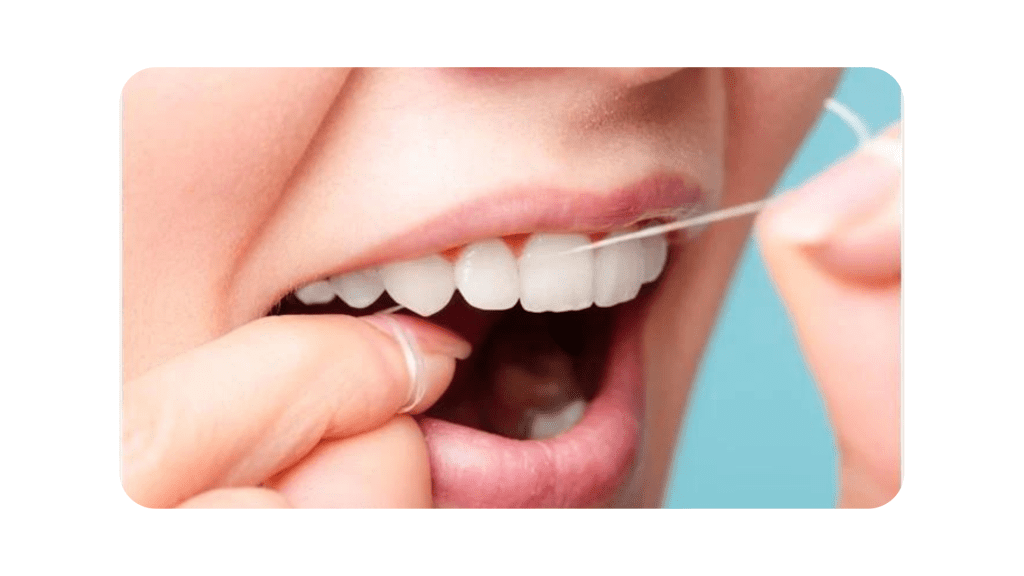
How often should you floss your teeth to keep them healthy? Which approach is the most successful, and why? This article will break down, in detail for you, what you need to know about flossing in order to have a healthy smile.
Brushing our teeth is often the action that garners the most attention when it comes to matters pertaining to dental and oral hygiene. However, flossing your teeth is just as important as brushing them and should be done at least once a day. Instead of viewing flossing as an additional step to your regular routine of brushing your teeth, think of it as an essential component of good dental hygiene that should be performed alongside brushing your teeth.
Following is an overview of everything you need to know about flossing, including how often you should do it and whether or not it's possible to do it properly. Flossing is an important part of maintaining good oral hygiene. We will also go through the correct approach to floss your teeth so that you can finish the work effectively. This is important so that you don't end up with cavities.
When it comes to preventative dental care, one of the most important tools you can employ is dental floss. There are millions of different kinds of germs that can be found in the mouth. No matter how carefully you brush your teeth, bacteria, plaque, and particles of food will still become trapped in the crevices between them. This will occur regardless of how often you floss. Floss is able to access areas that a toothbrush is unable to reach since it is threaded in between the teeth, but a toothbrush can only reach areas that are easily accessible.
Plaque can be eliminated from areas of the teeth that are difficult to reach by cleaning between the teeth using dental floss. Plaque needs to be scrubbed away as frequently as humanly possible. Plaque will eventually harden into tartar if it is allowed to remain on the teeth for an extended period of time. If you don't eliminate the plaque that forms on your teeth and in your mouth, you run the risk of developing a wide range of oral hygiene issues, including:
Plaque is not the only factor that can lead to gingivitis, which is a form of gum disease that occurs in its early stages. Because of this condition, the gums will become red and swollen. Additionally, the gums may bleed easily. In the absence of treatment, gingivitis can progress into the more serious periodontitis. This disorder causes the bone and tissue that support the teeth to degrade, which ultimately results in tooth loss. Teeth that have been weakened have an increased risk of either shattering or losing their position in the mouth.
Even while you might not think flossing is a big deal, not flossing can have substantial adverse impacts on your dental health, especially if you have a history of periodontal disease.
When should I floss my teeth? how often should I do it?
Patients visiting the dentist are encouraged to floss their teeth at least once per day, as recommended by the American Dental Association (ADA) and the Canadian Dental Association (CDA). Plaque, bacteria, and remnants of food are washed out of the mouth as a result of this action. By flossing your teeth on a daily basis, you can help reduce your risk of developing gum disease, cavities, and other oral health issues.
Can I floss more than once a day without causing any harm to my teeth? It is entirely fine to floss more than once per day. In fact, it is encouraged. There is absolutely no danger involved. However, rather than focusing on the quantity of times you floss, it is more important to pay attention to the quality of your flossing technique. Flossing should be done after each time you brush and after every time you use dental floss.
It takes far more time than only a few seconds to floss effectively. It does not serve much of a purpose to floss your teeth for only a few seconds at a time many times during the course of the day. Plaque and bacteria are likely to be transferred to the new environment as a result of your presence. When flossing, the best results come from taking your time and being as thorough as possible.
If I have braces, how many times a day am I supposed to floss my teeth?

You should floss at least once per day to ensure that the space between your teeth is clean and free of bacteria, plaque, and food debris. Failing to floss at least once per day can have negative consequences for your oral health. It is completely normal for you to floss your teeth more frequently if you discover that you need to do so.
Flossing can be a challenge to perform when you have braces because the floss might become lodged in the brackets that are attached to your teeth.
To ensure that you have an enjoyable time brushing your teeth:
To begin, you will need some patience and practice in order to floss effectively while wearing braces; but, once some time has passed, you will find that it comes more naturally to you.
It is strongly suggested that you look for a dentist in your neighborhood who is able to give personalized recommendations and directions in person.
When is the best time to floss, before or after I clean my teeth?
It does not make a difference whether order you floss or brush your teeth in when it comes to your oral hygiene routine. It is imperative that you thoroughly clean your teeth, paying particular attention to the crevices and gaps that exist between each tooth.
The results of a number of research suggest that flossing your teeth before brushing them could be advantageous. According to the findings of a study that was carried out in the year 2018, flossing is beneficial for removing bacteria as well as debris that is lodged between the teeth. Brushing your teeth afterward helps eliminate any remaining food and other debris that may be stuck in your teeth.
It is also possible to raise the fluoride concentration by brushing one's teeth after flossing one's teeth. The risk of a person developing cavities is decreased by fluoride's ability to fortify tooth enamel. This makes fluoride an effective treatment for preventing tooth decay.
It really doesn't make a difference whether you brush your teeth or floss your teeth first when it comes down to it at the end of the day. The most crucial thing to take into account is your own personal preferences.
When flossing my teeth, is it possible to do so too thoroughly?
If after flossing your teeth you notice that your gums are inflamed, tender, or bleeding, it's probable that you're going too deeply between the teeth and gums.
If you apply an excessive amount of pressure to your gums during flossing, you may end up with bleeding gums. It is possible that severe damage to the gum line could result from excessive flossing that is performed on a regular basis. This can result in the root of the tooth becoming exposed, which can subsequently put the tooth at risk for developing cavities or rotting.
Incorrectly flossing one's teeth can also be harmful, such as when the floss is used in a sawing motion to clean between the teeth. When you floss too harshly, you run the risk of wearing away the enamel on your teeth, which makes you more susceptible to gum disease. If you floss too gently, however, you won't incur this risk.
Is there such a thing as flossing your teeth too often?
There is no such thing as flossing too much, unless you are doing it incorrectly, which is also not possible. Flossing too much could lead to gum disease. In point of fact, some people need to floss their teeth more than three times every day, particularly after they have eaten. This is especially true just after meals. Certain foods have a greater propensity to become trapped between the teeth, and the most efficient approach for removing food debris from in between the teeth is to floss. Certain foods have a stronger tendency to become lodged between the teeth.
Are you anxious that you might not be flossing your teeth properly? Make an appointment to see your dentist, and when you're there, don't forget to ask about seeing a demonstration of the device while you're there.
How should one floss their teeth in order to achieve the best possible results?
Now that you are aware of the frequency with which you should floss your teeth and the importance of doing so, let's have a conversation about how you should go about doing it correctly.
1. Measure out a strand of floss that is 18 inches in length. After you have completed winding the majority of it around your middle fingers, you should have one to two inches of space remaining in the middle.
2. Using your thumbs and index fingers, pull the floss until it is taut and then maintain it in that position.
3. Insert a piece of floss between any two of your teeth that are next to one another.
4. Rub the floss on the top and bottom surfaces of each tooth as you carefully move the floss up and down between each tooth. Be careful not to jam the floss into your gums by applying too much pressure.
5. While you move the floss closer to your gums, carefully wind it around the base of each tooth as you continue to clean between them. By doing so, you will form a "C" shape, which will make it easier for you to insert the floss in between your gums and teeth.
6. As you progress from one tooth to the next, repeat the steps from step five and step four. When you move on to the next set of teeth, make sure that you use a new section of floss for each individual tooth.
You may be confident that you are protecting your oral and dental health to the best of your ability if you floss your teeth once a day and do so in the correct manner.
Are there any activities that can serve as a substitute for flossing?
You can clean the spaces in between your teeth by using floss. Plaque, bacteria, and other debris, such as food particles, are some of the items that may be removed with its assistance, such as debris. Other debris, such as food particles, can also be removed. Other tools that can be used to clean in between the teeth include flossing brushes, dental tape, water flossers, pre-threaded flossers, plastic or wooden picks, and pre-threaded flossers. Flossing brushes are also an alternative.
Even though you could prefer one solution over another, the thing that is most vital is that you choose a solution that you enjoy and use it frequently. This is true even if you favor one solution over another.
Make it a point to attend each and every one of your scheduled dental checkups.
Brushing and flossing your teeth at home are only two of the many things that contribute to a healthy smile; yet, they are not enough. In addition, it is also necessary for you to visit your dentist on a consistent basis for preventative care checkups. When you see the dentist, your teeth will be carefully checked, and they will also be carefully cleaned. Both of these processes will take place simultaneously.
Visits to the dentist should not be put off for any longer than is really required. Find a dentist near me and make an appointment to see them as soon as you can if you want to keep your teeth in good health and preserve a beautiful smile.
CLICK HERE TO SCHEDULE YOUR APPOINTMENT!
GET TO KNOW YOUR BEST DENTIST IN SUMMERLIN
Dr. Marianne Cohan was voted The Best Dentist/ Dental Office and Best Cosmetic Dentist from The Las Vegas Review-Journal in 2020 and 2021. She received her Doctor of Dental Surgery (DDS) from the State University of New York at Buffalo in 1992.

With an emphasis on cosmetic dentistry, complete makeovers, and implant dentistry, Dr. Cohan is committed to continuing education and feels that we never stop learning. Dr. Cohan takes pride in using high-powered magnification to perform minimally invasive restorative dentistry. She uses all the latest technological advances including digital radiography, digital photography, computer simulations, and high-resolution pictures of your proposed treatment on 55-inch screens. She also utilizes CBCT (cone beam) and laser technology.
Dr. Cohan is always available to her patients and is available for any dental emergency.
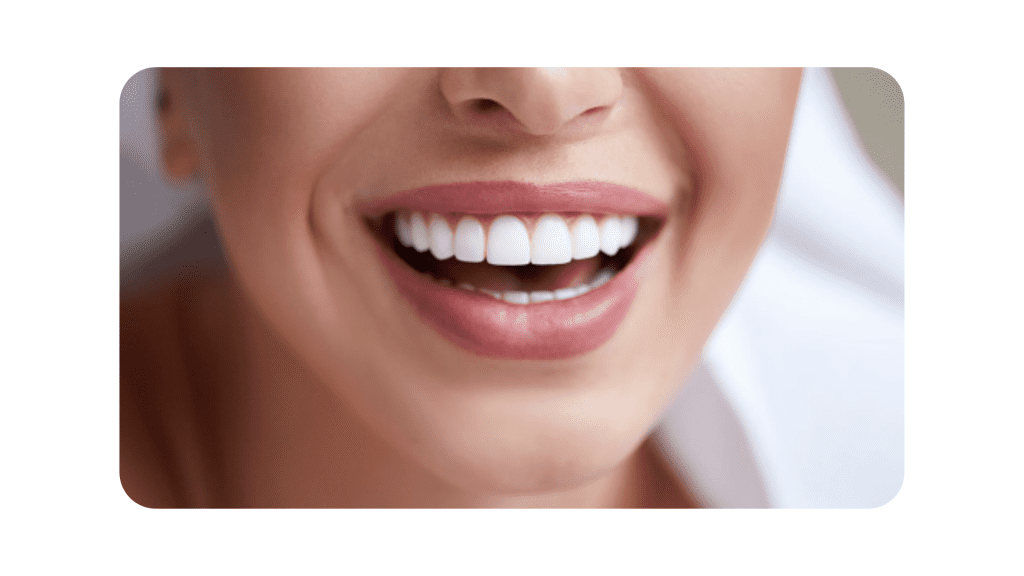
It's possible that going to the dentist on a regular basis is the most effective way to acquire a dazzlingly white smile.
Read this article to find out why going to the dentist twice a year is beneficial to maintaining the appearance of your smile at its finest.
Many people in today's society are developing an unhealthy fixation on the idea that they should have a smile as white as the teeth of movie stars. People who have teeth that are whiter are thought to have higher attractiveness, because it is associated with youth and prosperity (regardless of actual circumstances). Having white teeth is a nice aim to aspire towards, but having healthy teeth is much more eye-catching than having white teeth.
The great majority of people are already aware of the fact that going to the dentist on a routine basis may be of tremendous assistance in the upkeep of a healthy smile. On the other hand, you might be curious to learn if maintaining your current dental routine can help you obtain a whiter smile. This is something you should look into. Let's investigate.
Is it true that having white teeth indicates good dental health when you smile?
Let's begin with this question: is a gleaming smile the same thing as a chuckling grin? It is common knowledge that having white teeth is an indication of good oral health, and to some degree, this is correct. After all, a person who routinely cares for their teeth by flossing, brushing, and otherwise maintaining good oral hygiene should have teeth that are noticeably whiter when they smile.
On the other hand, it is not at all impossible to have a smile that is both healthy and white at the same time.
Our teeth do not normally have the dazzlingly white appearance that so many of us seek or that is portrayed in the media. This is because our teeth develop over the course of our lives. The layer of our teeth that is the most exposed is called enamel, and it has a bluish-transparent appearance. The dentine, which has a yellowish colour, can be found beneath the enamel of the tooth. When put together, they create the impression of having teeth that are white.
The tooth enamel progressively wears away as we become older, exposing more of the yellow dentin that lies beneath it and creating the appearance of teeth that are more yellow than they actually are. However, there is still a chance that the teeth are in exceptionally healthy condition.
Why getting your teeth cleaned by a professional on a consistent basis is necessary in order to keep your smile bright white.
In addition, if you frequently consume foods and beverages that are dark in color, this may cause stains to appear on your teeth. The worst offenders include beverages such as coffee, tea, tomato sauce, and dark-colored sugary drinks. Other culprits include tomato paste.
A professional teeth cleaning, on the other hand, may be able to remove some of these stains from your tooth enamel. [Cleanings] [Cleanings] [Cleanings] [Cleanings] [Cle In addition to this, they will scrape away any tartar or plaque that has accumulated on your teeth. This is significant because the aforementioned compounds provide a breeding ground for the pathogenic germs that lead to tooth decay, gum disease, and a variety of other dental issues.
When should you have your teeth cleaned by a professional and how often should you do it yourself?
People should try to get their teeth professionally cleaned at least twice a year, according to the recommendations of the majority of dentists. The American Dental Association would like to bring to our attention the fact that not everyone has the same level of oral health and that individuals should follow the recommendations that are provided by their dentist in order to maintain the best possible oral health for themselves. In order to maintain the highest possible level of health, it may be necessary for individuals who struggle with particular dental disorders to arrange more frequent appointments to the dentist.
Oral illnesses have the potential to worsen over time, which could result in changes to the appearance of your smile as well as your breath.
What are the consequences if you do not place a high focus on having a dental professional clean your teeth? People who use high-tech electric toothbrushes frequently have the misconception that simply brushing and flossing their teeth is sufficient to maintain good oral hygiene.
It is essential to bear in mind that going to the dentist entails more than simply getting your teeth cleaned. There are a variety of other procedures that may be performed. Your dentist will examine the interior of your mouth for any signs of tooth decay, gum disease, or any other concerns that may be affecting your oral health. This examination will take place in addition to a screening for oral cancer.
It's possible that your oral health will decrease over time. Cavities can develop to be pretty significant in size before you realize they are there, and if you have foul breath, you might be turning people away without you realizing it. If you put off going to the dentist, there is a chance that you could end up damaging your teeth to the point where some of them fall out or that you could lose a tooth entirely.
Make an appointment with a dentist near me as soon as possible in your area to prevent these uncomfortable problems from occurring.
Why maintaining a schedule of regular visits is of the utmost significance?
The roots of your teeth are home to the nerves that may be found in your teeth. Because the layers of your tooth surround this sensitive inner, dental problems that manifest themselves on the surface of your teeth may persist for some time without causing you any discomfort. Before you ever become aware that there is an issue, the infection has already spread all the way through to the pulp inside of your tooth.
Dentists, on the other hand, may be able to identify these issues long before you experience any pain associated with them. Because of this, finding a solution to the problem is much simpler, and as a result, the likelihood of losing a tooth as a consequence of it is much reduced.
It is possible for dentists to whiten the teeth of their patients.
At the absolute least, if you want to improve the appearance of your smile, you should think about scheduling an appointment with a dentist. If you get your teeth professionally cleaned on a regular basis, you may be able to remove some of the stains that are caused by the foods and beverages you consume.
In addition, the advancement of technology has provided dentists with sophisticated tools that can whiten your teeth in a manner that is both safe and expedient.
After having your teeth whitened professionally at the dentist's office after just one visit, your teeth may be many shades whiter than they were before. Alternately, your dental practitioner may give you a high-quality tooth whitening kit that you can use in the comfort of your own home whenever it is most convenient for you. Within a few weeks, you should be able to experience visibly brighter teeth if you use the product correctly and exactly in accordance with the instructions. This should be possible if you use the product correctly and exactly in accordance with the instructions.
Are you ready to experience a smile that is brighter and whiter?
It is imperative that you practice proper dental hygiene because doing so will benefit you in a variety of ways. Gum disease and cardiovascular disease have been shown to be connected, and it is likely that gum disease also has other systemic impacts on the body.
Regular trips to the dentist are one of the most effective weapons you can employ in the fight against unhealthy teeth, which are usually discolored.
CLICK HERE TO SCHEDULE YOUR APPOINTMENT!
Dr. Marianne Cohan was voted The Best Dentist/ Dental Office and Best Cosmetic Dentist from The Las Vegas Review-Journal in 2020 and 2021. She received her Doctor of Dental Surgery (DDS) from the State University of New York at Buffalo in 1992.

With an emphasis on cosmetic dentistry, complete makeovers, and implant dentistry, Dr. Cohan is committed to continuing education and feels that we never stop learning. Dr. Cohan takes pride in using high-powered magnification to perform minimally invasive restorative dentistry. She uses all the latest technological advances including digital radiography, digital photography, computer simulations, and high-resolution pictures of your proposed treatment on 55-inch screens. She also utilizes CBCT (cone beam) and laser technology.
Dr. Cohan is always available to her patients and is available for any dental emergency.

Can bruxism be caused by stress? In short, yes it can. Dr. Cohan in Summerlin, Nevada goes over how stress affects your smile.
Everybody has more "work" than is customary for them these days. Even those of us who consider ourselves to have relatively low-stress lives may go through periods of anxiety or melancholy due to our job surroundings, the schools our children attend, or other social effects of COVID-19. Even though we may believe that our relatively low-stress lifestyles have been a blessing, this may not always be the case.
It's likely that your body is trying to adapt to the changes that are occurring even though you don't "feel" anxious. Additionally, one of the most common unfavorable side effects of your body "feeling" anxious is clenching and grinding your teeth together. The tendency of grinding one's teeth, which can happen consciously or unintentionally, is known as "bruxism," a condition. Your body is merely reacting to the stress in the environment around you whether your TMJ tightens up when you are trying to concentrate, while you are driving in traffic, or when you are dealing with a tough customer.
I do have some terrible news for you, though. Grinding your teeth, which may also be a sign of a sleeping disorder, can have a bad impact on your smile, your TMJ, and possibly your health.
You can still be feeling additional effects in your daily life even if you aren't aware that stress is making you grind your teeth (bruxism).
TMD and teeth grinding have been connected to one another (TMJ).
Your TMJ may experience chronic strain if you grind your teeth, particularly if the problem goes untreated. The joints on either side of your mandible allow it to move up and down as well as to the side and in other directions. A full-blown case of TMJ dysfunction or other negative effects may arise if the cartilage in your TMJ or the muscles in and around it become strained or irritated.
When individuals experience a flare-up, it's not unusual for patients to experience joint pain, headaches, stiffness, and a decreased range of motion. It's probable that you'll notice it when it's least convenient for you, such right after you get up in the morning or right after you arrive home from work. Keep an eye on your body to see if you have any further TMJ symptoms, such as popping or clicking. If so, you might need to wear a bite guard or a splint that covers your teeth to "train" your TMJ to relax when your body is under stress.
The Impact of Bruxism on Dental Work and Enamel
One of the most significant effects of teeth grinding on your smile is the harm it causes to your enamel and dental work. Grinding your teeth can have a lot of adverse effects on your appearance. Even though enamel is tough and resilient—indeed, it's the material in your body that is most resilient—it is not unbreakable. Because of the pressure put on your teeth when you clench and grind them, your tooth enamel will begin to progressively chip away or wear off, leaving behind flat, pointed, or jagged surfaces. The teeth of people who grind their teeth frequently tend to look shorter and flatter throughout the width of their mouths.

But this is only one of the several affects that bruxism has on the way your smile looks. Regularly grinding your teeth could reduce the durability of your current restorations (such as dental fillings, crowns, bridges, dentures, etc.) Although these restorations are very sturdy, the patient's natural tooth structure is still stronger than them. Therefore, if you continue to put extra strain on them day after day while you are under a lot of stress, there is a greater likelihood that something will break.
It's possible that the filling in your tooth breaks in half, that a piece of the tooth around the filling breaks off, or that a layer of porcelain chips off the crown. When anything like that happens, the complete repair must be performed because a patch cannot conceal the damage. The restoration usually becomes more invasive to the tooth because it's possible that some of the tooth's structure was also removed. This worsens a situation that is already difficult.
There is a link between teeth grinding and sleep apnea
Maybe you've been doing it for so long under the impression that the constant stress in your life is to blame. Bruxism, or nighttime teeth grinding, is closely linked to sleep problems such obstructive sleep apnea. Even if your life is very stressful, this is still true (OSA). People who have obstructive sleep apnea (OSA) may wake up feeling exhausted, with a sore jaw, or with headaches because of the ongoing stress on their muscles.
Squeezing your jaws and teeth as tightly as you can is your body's natural response to not obtaining enough oxygen, which may seem paradoxical but is what actually occurs. Because OSA prevents you from actually waking up, it's likely that this cycle of airway obstruction and teeth grinding will go on all night if you have it.
In addition to these symptoms, sleep apnea is linked to depression, tiredness, weight gain, high blood pressure, and a wide range of other symptoms. If you snore or feel tired all the time, it is in your best interest to speak with a sleep physician about getting tested for obstructive sleep apnea or any other sleeping disorder. These days, you can "take home" sleep tests to complete in the comfort of your own bedroom. These studies are appearing more frequently.
Summerlin Dental Solutions will assess you for teeth clenching and grinding, sleep apnea, and TMJ issues as part of the comprehensive exams we provide. To lessen the chance of tooth wear, snoring, or any other detrimental effects linked to your bruxism habit, Dr. Marianne Cohan may advise you to use an oral device or a biting splint.
If you discover that your teeth are becoming increasingly worn down or if your jaw hurts when you wake up, call our Summerlin dentist right away.
CLICK HERE TO SCHEDULE YOUR APPOINTMENT!
GET TO KNOW YOUR BEST DENTIST IN SUMMERLIN
Dr. Marianne Cohan was voted The Best Dentist/ Dental Office and Best Cosmetic Dentist from The Las Vegas Review-Journal in 2020 and 2021. She received her Doctor of Dental Surgery (DDS) from the State University of New York at Buffalo in 1992.

With an emphasis on cosmetic dentistry, complete makeovers, and implant dentistry, Dr. Cohan is committed to continuing education and feels that we never stop learning. Dr. Cohan takes pride in using high-powered magnification to perform minimally invasive restorative dentistry. She uses all the latest technological advances including digital radiography, digital photography, computer simulations, and high-resolution pictures of your proposed treatment on 55-inch screens. She also utilizes CBCT (cone beam) and laser technology.
Dr. Cohan is always available to her patients and is available for any dental emergency.
There are eight primary causes of jaw pain, and the following are some things you can try if you are experiencing discomfort in your mouth.
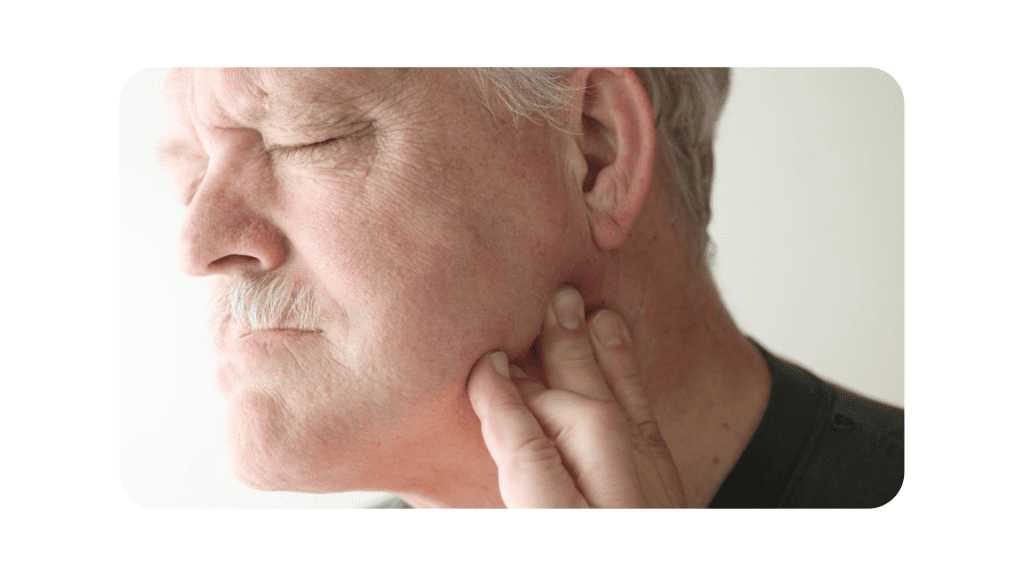
Experience jaw pain? Let's take a look at some of the most common causes of pain in the jaw and see how they work. And those of you who are experiencing pain in your jaw right now, we will also provide some easy treatments that you can do at home, in addition to some pointers on how to get professional treatment for more severe cases.
Do you ever find yourself muttering "ouch" involuntarily, such as when you yawn or when you take a bite out of your lunch? One thing is for certain, however: the pain in your jaw is excruciating. It's possible that you don't know what's causing the pain in your jaw or why eating has become such a challenge all of a sudden, but if there's one thing that's for sure, it's that the pain in your jaw is excruciating.
Despite the fact that jaw pain can feel overwhelming and even frightening when you are unable to predict how long it will continue or when it doesn't appear to be going away, there are a variety of approaches that can be taken to alleviate the pain.
In this article, we will discuss some of the more common causes of jaw pain, such as the disorder of the temporomandibular joint (TMJ), as well as some of the less common causes of jaw pain, such as grinding one's teeth. And those of you who are experiencing pain in your jaw right now, we will also provide some easy treatments that you can do at home, in addition to some pointers on how to get professional treatment for more severe cases. For those of you who are currently going through this, we apologize.
There is a wide variety of causes that could be responsible for the pain that you are currently feeling. The list that follows contains some of the more common sources:
Signs and symptoms of dysfunction in the temporomandibular joint
The temporomandibular joint is said to be responsible for connecting the jaw bone to the skull, where it functions "like a sliding hinge," as stated by the Mayo Clinic. If this joint is injured or if it is compromised in any way by a condition such as arthritis, you may feel pain in your jaw. This pain could be caused by a variety of factors. It's possible that you have TMJ if you feel pain in your face, ears, or jaw, or if you hear a clicking sound when you open and close your mouth. Clicking sounds and facial pain are also common symptoms of TMJ. Take a moment to listen to what is going on around you as you move your mouth.
The disorder known as temporomandibular joint syndrome (TMJ) is more common than may be generally understood. TMJ stands for "temporomandibular joint." TMJ is a condition that affects more than 10 million people in the United States, according to estimates provided by the National Institute of Dental and Craniofacial Research. It is possible that as many as 1 in 12 people will be affected by this. Less than half of those who are affected seek treatment, and the "majority of those seeking treatment are... women in their childbearing years," according to the National Women's Health Network (NWHN).
Trauma
If you take a blow to the jaw, you may end up with bruises, swelling, and even teeth that have been knocked out. This is a common result of facial trauma. Because of all of these factors, it can be challenging to chew food comfortably and to open and close one's mouth without experiencing any kind of discomfort.
According to WebMD, however, if the pain does not go away or if you are unable to properly open and close your mouth, you will need to seek the assistance of a qualified medical professional. On the website, it is stated that "Soft foods and over-the-counter pain medication can typically ease discomfort," but it goes on to say, "But if the pain will not go away."
Sinusitis is an infection of the sinuses.
Do you feel as though there is too much air? Breathe The following is how America describes the connection between sinus infections and jaw pain: "Sinus infections typically cause swelling, and when that swelling becomes severe, it can even reach to your jaw." Seek medical attention for the infection you have, and you should discover that the pain lessens as the other symptoms associated with the infection improve as a direct result of the treatment.
Dental Issues
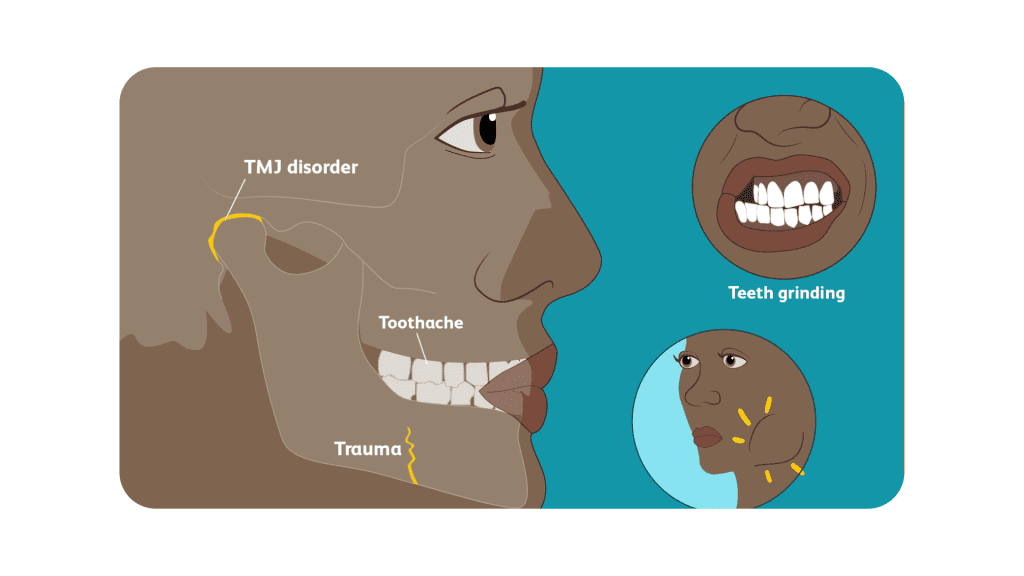
If you don't take care of your teeth by brushing, flossing, and visiting the dentist on a regular basis, you won't just have yellow teeth and bad breath by the time you're done. In addition to this, gum disease will manifest itself. In addition to this, it has the potential to cause discomfort in the jaw.
Having pain in the jaw can be brought on by a wide range of issues related to oral health, including the following:
• Caries for which treatment has not been received: When a cavity has progressed far enough to affect the dentin, which is the layer of the tooth that is located beneath the enamel, pain is usually experienced. The enamel is the outermost layer of the tooth. It can cause pain to radiate around your jaw if it continues down into the pulp of your tooth, as stated in an article that was published in SELF Magazine.
• Impacted wisdom teeth, which are characterized by: The removal of a person's wisdom teeth is a procedure that most commonly takes place when they are in their late teens or early 20s. This is due, in part, to the fact that these teeth, which are situated in the mouth's back corners, are capable of wreaking havoc on the jaw. If you have wisdom teeth that are impacted, your jaw will become "stiff, painful, and difficult to open," as stated by St. John Health.
People who suffer from psoriatic arthritis are more likely to experience jaw pain than people who suffer from other types of arthritis, as reported by Medical News Today. Patients with rheumatoid arthritis and those who suffer from other conditions that affect the joints frequently experience problems with their jaws. A person's ability to eat, drink, and sleep comfortably may be negatively impacted as a result of the problems described here.
Tetanus
Tetanus, also referred to as lockjaw, is a disease that happens when bacteria that cause tetanus enter the body through a puncture wound. Lockjaw is another name for tetanus. Tetanus is a disease that can also cause lockjaw. Because of the infection-induced muscle spasms, the jaw can become permanently fixed in one position.
Confrontation with the Heart
Pain in the jaw is one of those symptoms that people frequently find it easy to ignore or explain away as an apparent unavoidable component of day-to-day life. On the other hand, it could very well be a symptom of issues that are significantly more fundamental on occasion.
On its website, the American Heart Association provides a list of several symptoms that may indicate that a heart attack is about to occur. "Pain or discomfort in one or both arms, the back, neck, jaw, or stomach" is listed as one of these symptoms. Other symptoms include "feeling sick to your stomach."
It is important that you do not disregard pain that you are experiencing in your jaw because there are numerous possible causes. In this specific situation, speaking with a qualified medical professional could end up being the thing that ends up saving your life.
Stress
The feeling that you do not have sufficient resources to deal with whatever is going on in your life at the moment is one of the physical manifestations of stress, which can be described as the sensation of being overwhelmed. One of these is clenching and grinding the teeth, which can lead to discomfort in the jaw as well as damage to the teeth themselves.
The following is a guide to five different treatments that can be done at home for jaw pain.
Oral discomfort is never a fun problem to have to deal with. Having said that, here's some encouraging news: There is more than one approach to taking care of it.
The following are some primary actions that can be taken, and there is a possibility that they will provide relief: They are also able to assist in determining whether the problems with the jaw are severe enough to warrant seeking medical attention. This determination can be made by the patient themselves.
Medicines That Can Be Purchased Without a Doctor's Prescription
Ibuprofen, the tried-and-true remedy of choice.
Athletes frequently seek relief from the aches and pains that they have sustained from strenuous workouts by turning to this multipurpose pain reliever. It has been brought to our attention that ibuprofen is frequently utilized in dental practices due to the fact that it acts as both a pain reliever and an anti-inflammatory medication.
Acetaminophen, which is most frequently marketed and sold under the brand name Tylenol, is an additional over-the-counter medication that is frequently used to treat discomfort in the jaw. On the other hand, PracticalPainManagement.com states that this particular medication does not deal with inflammation.
Before recommending that a patient receives a prescription for medication, it is common practice for dentists and physicians to suggest that the patient first try solutions that are available without a prescription. When treating minor pain in the jaw, it is recommended that you start with this course of action because it is the most straightforward.
Keep to foods that are easier on the stomach.
If the pain in your jaw is only temporary, you should try to eat foods that are soft so that you do not make it worse by chewing too forcefully.
Foods like mashed potatoes, yogurt, cottage cheese, scrambled eggs, soup, cooked fruits and vegetables, beans, grains, and even fish are among the foods that have the potential to help ease pain, according to WebMD. Other foods that have the potential to help ease pain include soup.
Steer clear of eating foods that are prone to breaking easily, such as pretzels, as well as foods that are difficult to chew, such as inexpensive steak. Despite the fact that they might be tasty, they are going to make the pain in your jaw much worse after you eat them. Today is the day to splurge on the foods that are easier on your stomach so that you can feel better tomorrow.
Compresses well at high temperatures but also well at low temperatures.
According to the findings of the TMJ Association, the most common treatment for jaw pain is to apply hot or cold compresses to the affected area of the jaw. 65 percent of people who participated in the survey that the association carried out selected this treatment as their preferred option. What is the most exciting component? 74% of these respondents reported that they were experiencing fewer symptoms as a result of the treatment that they were receiving. Simple, but incredibly effective in its application.
It is possible to apply a compress to an affected jawline by doing something as simple as wetting a washcloth and placing it in the microwave or the freezer. Both of these temperatures are suitable for creating a compress. On the other hand, more advanced solutions are also available for purchase, and you can do so either online or at the pharmacy in your neighborhood.
Massage Therapy (Treatment)
When it comes to alleviating discomfort in the jaw, massage therapy has the potential to work wonders. PainScience outlined the steps that need to be taken in order to massage the masseter muscle effectively. This muscle can be found on the underside of the cheekbone.
"Although the entire muscle can be rubbed gently, most people will find that the satisfying sensation of a Perfect Spot for massaging is limited to the upper edge of the muscle," the author wrote. "Although the entire muscle can be rubbed gently, it is important to note that the Perfect Spot for massaging is limited to the upper edge of the muscle "Even though the entirety of the muscle can be massaged with light pressure, it is essential to keep in mind that the Perfect Spot for massaging is restricted to the upper edge of the muscle."
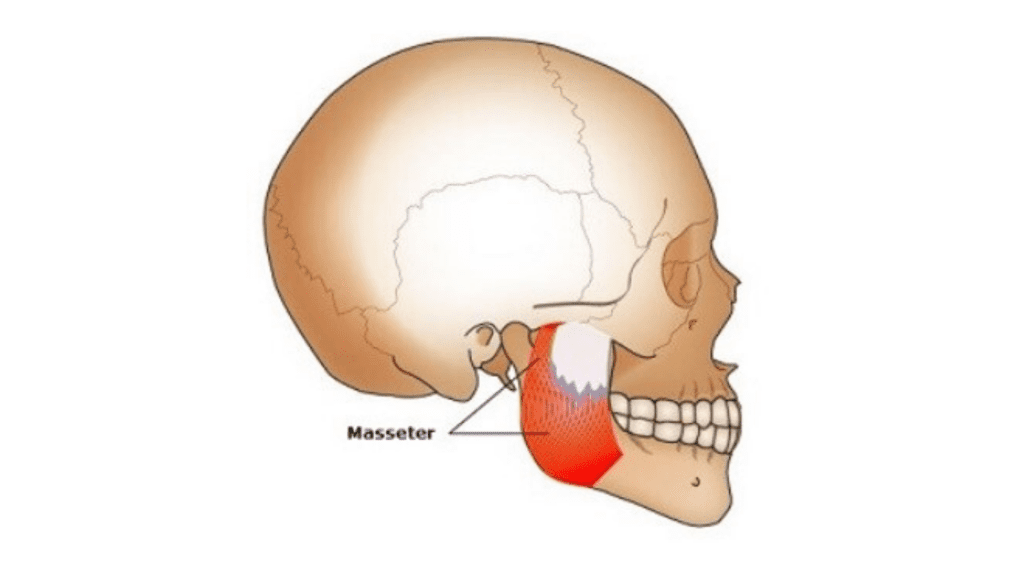
Activities Involved in the Process of Living One's Life Over the Course of Time
There are many different facets of lifestyle that can contribute to the alleviation of pain.
Yoga and mindful meditation are two examples of alternative treatments for discomfort in the jaw. These two practices can help reduce stress and break the habit of grinding one's teeth, both of which can cause discomfort in the jaw. Although each of these techniques is an effective way to reduce stress, it's possible that the jaw pain you're experiencing right now may be beyond the scope of what these methods can fix on their own. If this is the case, it's important to seek medical attention. Maintaining your use of these strategies in the meantime may be able to assist you in warding off future issues.
You might be able to make up for any sleep deficits that are causing your jaw muscles and other muscles to become fatigued by sleeping on your back or by rearranging the order in which you sleep during the week. Alterations to one's diet, such as omitting foods that require chewing, consuming less caffeine (which can lead to muscle soreness), and increasing the consumption of calcium-fortified foods and beverages, can also assist in the prevention of pain even before it starts to manifest itself.
Receiving Medical Care For The Pain That Is Located In The Jaw
If you have tried a variety of home treatments for the pain in your jaw, but the pain still persists, it is possible that it is time for you to seek the advice of a qualified medical practitioner who can diagnose and treat your condition.
Although medical professionals such as doctors, dentists, and others in the health community do not have a magic wand that can instantly relieve sufferers of jaw pain, they do have a variety of tools at their disposal to address the problem at its core and assist in the search for a solution. Although they do not have a magic wand that can instantly relieve sufferers of jaw pain, medical professionals do have a variety of tools at their disposal to address the problem at its core and help find a solution.
The following is the procedure that you need to follow in order to get medical assistance for the pain that you are experiencing in your jaw.
Diagnostic and Therapeutic Operations That Might Be Carried Out on Patients Complaining of Soreness in the Jaw
Dentists, physicians, and other medical professionals have access to a wide variety of tests and diagnostic tools, which allow them to evaluate patients who complain of jaw pain. The following are some examples of these:
When it comes to assisting in the treatment of jaw pain, however, it is essential to keep in mind that MRIs have their own set of limitations, and it is imperative that this be kept in mind at all times.
According to the findings of a study that was carried out by the University of Minnesota and included 85 participants, "palpation of the (temporomandibular joint) is more accurate than MRI-depicted effusions in identifying the (temporomandibular joint) as the source of pain for patients with unilateral jaw pain."
It's possible that your primary care physician or dentist will use a combination of these diagnostic tools to figure out what's wrong with your jaw and get you started on treatment for the pain you're experiencing there.
Options for Addressing Jaw Pain and Discomfort
Oral pain can be treated after any necessary examinations and diagnostic procedures have been finished. This allows a medical professional to move on to the next step of the process after completing the previous steps.
The following are some possible forms of treatment:
The following is an excerpt from an article that was published in Allure magazine about a woman who found relief from her pain after undergoing botox treatment: "After one week, I notice that my headaches are not as frequent and that my jaw hurts less, but it's still swollen and lopsided." "After one week, I notice that my headaches are not as frequent and that my jaw hurts less." By the end of the second week, I am sleeping better, and I am able to chew real food without having the sensation that I want to rip my face off.
Jaw surgery, as described by the American Association of Oral and Maxillofacial Surgeons, can involve arthroscopy or the repair of damaged tissue. The jaw is the target of this particular type of surgery.
Are you having trouble with your mouth's comfort? You are not obligated to be there in any way. At Summerlin Dental Solutions in Summerlin Nevada, Dr. Cohan can help you get started on the road to recovery as soon as possible.
CLICK HERE TO SCHEDULE YOUR APPOINTMENT!
GET TO KNOW YOUR BEST DENTIST IN SUMMERLIN
Dr. Marianne Cohan was voted The Best Dentist/ Dental Office and Best Cosmetic Dentist from The Las Vegas Review-Journal in 2020 and 2021. She received her Doctor of Dental Surgery (DDS) from the State University of New York at Buffalo in 1992.

With an emphasis on cosmetic dentistry, complete makeovers, and implant dentistry, Dr. Cohan is committed to continuing education and feels that we never stop learning. Dr. Cohan takes pride in using high-powered magnification to perform minimally invasive restorative dentistry. She uses all the latest technological advances including digital radiography, digital photography, computer simulations, and high-resolution pictures of your proposed treatment on 55-inch screens. She also utilizes CBCT (cone beam) and laser technology.
Dr. Cohan is always available to her patients and is available for any dental emergency.

Teeth and Food: When it comes to deciding what you're going to eat or drink next, what factors do you take into consideration throughout the day? Do you make an active effort to eat nutritious foods, or do you simply choose things based on their flavor and appearance?
Have you ever taken a moment to think about the consequences that some of your favorite foods and drinks have on your teeth? This question applies regardless of the criteria you use to make decisions. The vast majority of people will go through their whole lives without ever giving this topic even a passing thought, despite the fact that the things you put into your mouth have the potential to be the root of all of your dental issues. The following are a few that our dentist in Summerlin wants you to keep an eye out for:
1. Citrus
Your morning grapefruit, your morning lemon drink, and even your afternoon orange snack can all, over the course of time, wreak havoc on the health of your teeth. Because of the high acidity of these meals, the enamel of your teeth will be eroded, making them more susceptible to the development of cavities.
Simple solution: because these foods are good for you, you should continue to eat them, but you should avoid letting the citrus soak into your teeth. After you are finished, you ought to gargle some water or otherwise clean your mouth out. It is preferable if you then have the opportunity to brush your teeth. All of the acid that contributes to erosion will be removed as a result of this.
2. Drinks Containing Carbonation
You are getting hit from two different directions with this one. Not only are soft drinks extremely acidic, like citrus fruits, but they are also loaded with sugar, which is detrimental to dental health. The addition of citric acid to soft drinks not only enhances their flavor but also helps them retain their freshness for longer.
The consumption of carbonated beverages should be restricted to no more than one serving of 12 ounces on a daily basis. If you drink through a straw instead of your mouth, you may reduce the likelihood that sweet acid will adhere to your teeth. Also, don’t sip on a Coke all day long.? Your teeth will be more susceptible to decay as a result of the continuous exposure to the sugar and acid. Instead, you should down your carbonated beverage in one sitting and then thoroughly rinse your mouth with water afterward.
Unfortunately, it has been shown that the artificial sweeteners that are contained in diet sodas can also induce tooth erosion. This means that drinking a diet soda is not much better for the health of your teeth.
3.Gum
If you chew the right kind of gum, there is a possibility that chewing gum could be beneficial to your oral health. It is important to avoid some brands because many of them include excessive amounts of sugar, which is known to erode tooth enamel and lead to the development of cavities.
Simple Solution: Gum that is good for you will not have any sugar in it and will include xylitol. A natural sweetener called xylitol is extracted from the woody and fibrous sections of plants. Because bacteria are prevented from adhering to the teeth by this component, the development of tooth decay is slowed down. To put it simply, if you chew xylitol gum after you eat or drink, it can aid in the prevention of cavities.
4.Alcohol
It is common knowledge that drinking alcohol is not the healthiest thing to do if one is making an effort to maintain their physical wellbeing. But, have you ever given any thought to the effect that alcohol has on the state of your mouth? Almost certainly not. Have you ever observed that after a night of drinking you wake up with a dry mouth? If not, let me ask you this: how about this:
Because alcohol is a diuretic, it causes the body to eliminate any fluids, including saliva as well as water. When it comes to the condition of your teeth and gums, having a dry mouth is one of the most significant risk factors. Not only does the arid climate, which is reminiscent of a desert, induce mouth sores that are red and painful, but it also causes teeth decay. Saliva's primary function is to keep our mouths moist while also clearing them of any leftover food particles. When our mouth is dry, everything, including the bacteria that cause tooth decay, will attach to it.
Quick Fix: If you're going to be drinking alcohol, make sure you drink lots of water to keep your mouth from drying out. After drinking, you should always rinse your mouth with an alcohol-free fluoride mouthwash and brush your teeth thoroughly before going to bed.
5. Bread
Have a hankering for some carbs? That's fine, but don't forget to have your toothbrush close by. Breads that are too soft are difficult for teeth to chew through. This food has a propensity to cling to teeth and get lodged in the various nooks and crannies of the mouth. If the food particles are not adequately removed after eating, germs will start to grow, which will eventually turn into plaque and tartar. Because the effects follow one another in rapid succession, it is imperative that you do the responsible thing and brush your teeth after eating bread.
Immediately rectify the situation by brushing your teeth after indulging in carbs.
6. Nuts. The brittleness of nuts might cause teeth that are already fragile to snap. However, this item of food does not belong to a distinct category all by itself. Ice, hard candies and granola bars, popcorn kernels, fruits with seeds or pits, and meat with bones are all examples of potentially hazardous foods.
Chew these things very carefully and very slowly for a quick fix.

Maintaining the Good Health of Your Teeth
When trying to pick what you're going to eat next, you should probably think about how your teeth and gums are doing so you can make an informed decision. It is important to remember to pay attention to what you put in your mouth because severe fractures and deep fissures in your teeth might lead you to lose a tooth. Our Summerlin dental practitioner will inspect your teeth and point out any areas of vulnerability in order to assist you in gaining the upper hand in the situation. Give us a call right away to schedule your consultation.
CLICK HERE TO SCHEDULE YOUR APPOINTMENT!
Dr. Marianne Cohan was voted The Best Dentist/ Dental Office and Best Cosmetic Dentist from The Las Vegas Review-Journal in 2020 and 2021. She received her Doctor of Dental Surgery (DDS) from the State University of New York at Buffalo in 1992.

With an emphasis on cosmetic dentistry, complete makeovers, and implant dentistry, Dr. Cohan is committed to continuing education and feels that we never stop learning. Dr. Cohan takes pride in using high-powered magnification to perform minimally invasive restorative dentistry. She uses all the latest technological advances including digital radiography, digital photography, computer simulations, and high-resolution pictures of your proposed treatment on 55-inch screens. She also utilizes CBCT (cone beam) and laser technology.
Dr. Cohan is always available to her patients and is available for any dental emergency.
Have you considered placing a dental implant in your mouth to replace a missing tooth?
The following are some of the most frequently asked questions by patients of our cosmetic dental clinic in Summerlin, Nevada.
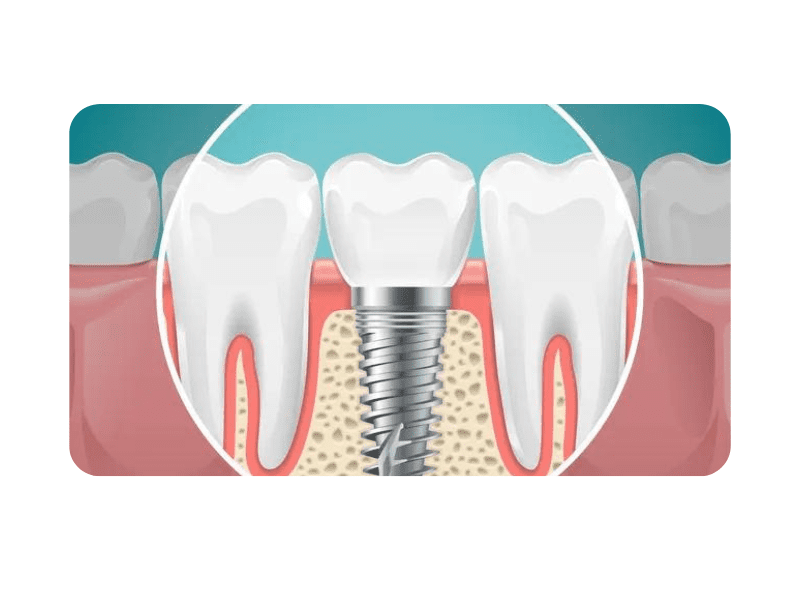
Implants in dentistry are supposed to be biocompatible replacement tooth roots. They provide the structural support necessary for fixed restorations such as dental crowns and bridges, as well as for removable overdentures and All-on-4 implant teeth.
Does it hurt to get dental implants?
Certainly not in a million years. The great majority of individuals have an established propensity to significantly underestimate how painless the dental implant process would be. The vast majority of individuals believe that acquiring a dental implant is a considerably simpler procedure than having a tooth out.
I am going to receive dental implants; may I be sedated for the procedure?
Absolutely. If you prefer to feel as if you are asleep during the dental implant procedure, we can make the necessary arrangements for you to be sedated so that you can have that experience. There are a variety of sedative techniques that can be performed during dental procedures.
How long do dental implants typically function well following placement?
If you give your dental implants the right care and attention, they should be able to replace your natural teeth for the remainder of your life. Furthermore, plant-based restorative dentistry outperforms and outlasts all other types of dental restorations.
What is the average range for the cost of dental implants?
The total cost of dental implants will vary depending on the number of implants required as well as the style of restoration chosen. Using various choices, such as insurance, it is possible to lower the overall cost of having implants placed in the body. Each and every one of our patients receives a full, itemized price estimate.
How many dental implants do I need to have installed to complete my smile makeover?
If you simply need to replace a single tooth, you will only require a single dental implant. It is possible to replace all upper or lower teeth with dental implants, but the procedure typically requires more than four implants.
Am I a candidate for dental implant treatment?
Implant dentistry can be administered to the great majority of healthy people. It will be necessary to examine your gums and the bone structures that support them in order to determine whether or not they are in good health. It is likely that you will require surgery, either grafting or another procedure.
How long does the procedure to receive dental implants take?
In most cases, the treatment for dental implants takes several weeks or months to complete. Typically, plants require approximately six months to fully mature from the beginning to the end.
Are same-day dental implants safe?
Even though same-day dental implants are a treatment option, they are typically not the most beneficial option for the majority of patients. Even though they are an option for treatment, same-day dental implants are an option for treatment. Before implants will be able to withstand significant biting force, a great amount of time must pass. This is because dental implants must fuse with the jawbone.
How many teeth does the average person have in a day?
"teeth in a day" is a type of dental implant procedure that can restore your entire bite in a single appointment. This treatment involves the use of dental implants. The majority of the time, a shorter-term healing prosthesis is necessary.
What is the precise nature of the implant process widely known as "All-on-4"?
The all-on-4 dental implant treatment utilizes a hybrid and streamlined device that is attached to only four dental implants to replace all of your upper or lower teeth simultaneously. This procedure can be conducted on the patient's upper or lower dental arch.
Can dental implants connect to dentures?

Yes. Regardless of whether the dentures are removable or fixed, dental implants can be used to give additional support and comfort for dentures.
How do you care for dental implants?
The amount of care offered for dental implants should be comparable to that provided for natural teeth. Make it a habit to brush and floss your teeth, and to visit the dentist every six months. It is crucial for maintaining your oral health.
Are dental implants aesthetically comparable to natural teeth?
People will not even know that you have dental implants when you smile. What gives them their natural aspect is the restoration, like as a crown or bridge, that is placed on top of them. We will meticulously create your restoration so that, once completed, it is indistinguishable from your natural grin.
I had dental implants implanted to replace my missing teeth; may I choose the appearance of my new teeth?
Yes. Your implant restorations can be customized to to match your color, shape, and size preferences. This degree of personalization is accessible to you. With the inclusion of dental implants to the treatment plan, smile makeovers can be greatly improved.
Are dental implants safe?
Yes. Dental implants will work in a manner that is harmonious with the rest of your smile once they have been installed in your mouth. Dental implants are biocompatible and hypoallergenic.
Can you have dental implants if you have a metal allergy?
Titanium dental implants represent no risk to patients with metal sensitivities; hence, they are becoming increasingly popular. Ceramic implant designs, on the other hand, can be an excellent option for persons with highly sensitive skin.
What are micro dental implants?
Mini dental implants are a more compact alternative to conventional dental implants. Because they are approximately one-half the size in length and width, they can be placed in regions with limited space or where the bone is rather thin. This is due to the fact that they are constructed of different materials.
Can you afford dental implants?
Yes. It is typical to seek financial aid to cover all or a portion of the expense of dental implant therapy. This can be performed through a variety of methods, including the provision of 0%-interest payment plan choices.
How long does it take for the gum tissue to recuperate and return to normal after dental implant placement?
A minimal number of incisions are required during the surgical placement of dental implants. Even though the implants require some time to become properly integrated into the jaw, you will not require a particularly lengthy period to recover from the surgical procedure.
How can I determine if I am a candidate for dental implants, and what are the necessary steps?
In order to have your mouth examined and X-rays taken, you will need to arrange an appointment with a Summerlin dental implant dentist. This appointment is obligatory. You must first provide evidence that you have met all of the requirements. In the past, you would not have been eligible for implant treatment; however, technological advancements now make it possible for you to receive implant treatment.
What criteria should I use to identify an excellent dentist that specializes in implants?
You have arrived at the proper location to receive complete implant treatment from the most qualified cosmetic dentist in the Summerlin area at Summerlin Dental Solutions. It is strongly recommended that you arrange an appointment for a consultation as soon as possible if you are interested in locating the most qualified implant dentist in the area.
CLICK HERE TO SCHEDULE YOUR APPOINTMENT!
GET TO KNOW YOUR BEST DENTIST IN SUMMERLIN
Dr. Marianne Cohan was voted The Best Dentist/ Dental Office and Best Cosmetic Dentist from The Las Vegas Review-Journal in 2020 and 2021. She received her Doctor of Dental Surgery (DDS) from the State University of New York at Buffalo in 1992.

With an emphasis on cosmetic dentistry, complete makeovers, and implant dentistry, Dr. Cohan is committed to continuing education and feels that we never stop learning. Dr. Cohan takes pride in using high-powered magnification to perform minimally invasive restorative dentistry. She uses all the latest technological advances including digital radiography, digital photography, computer simulations, and high-resolution pictures of your proposed treatment on 55-inch screens. She also utilizes CBCT (cone beam) and laser technology.
Dr. Cohan is always available to her patients and is available for any dental emergency.
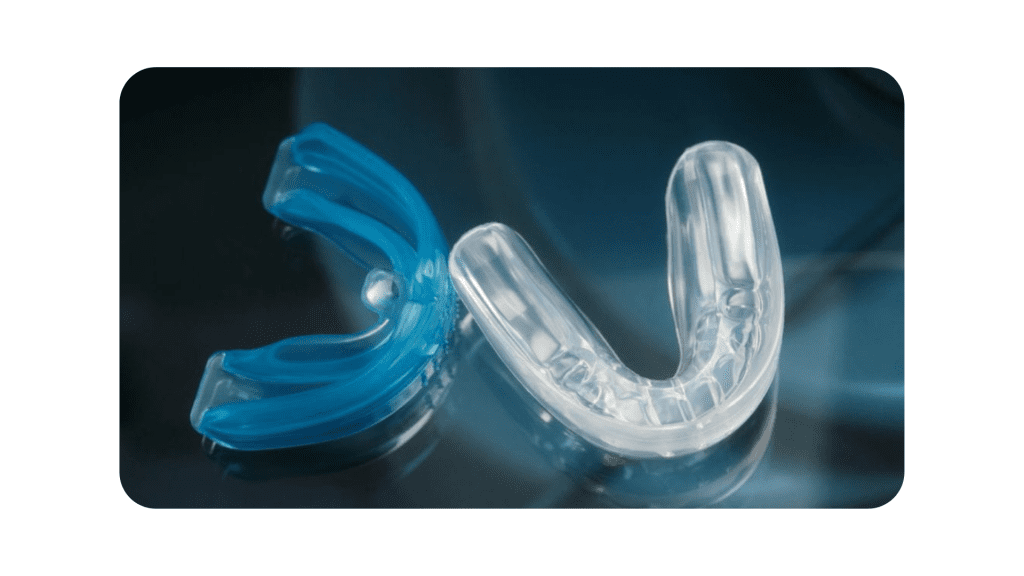
Have you ever questioned whether or not you really require a mouthguard to protect your teeth? If that's the case, then you should definitely read this article before making your next appointment with the dentist.
Do not be concerned in the least if you do not know what questions to ask. You are by no means the only one dealing with this issue, particularly if you are not familiar with mouthguards or night-guards.
Mouthguards are designed to protect your teeth and gums from injury, and contrary to popular belief, they are more effective in doing so than you might initially believe. While you are using the device, you can experience some initial and transient discomfort; nevertheless, the benefits to your oral health make the slight inconvenience more than worthwhile.
It's possible that you're confused about the function of a mouthguard and why certain individuals need to wear them. The following is a rundown of the fundamental information you need to have before selecting the mouthguard that will serve you best.
Your grin will end up being preserved in all of its glory along with its health and protection.
When you play sports, it is important to protect your teeth with a dental appliance called a mouthguard. If you clench and grind your teeth as you sleep, you could benefit from wearing one of these.
In either case, mouthguards perform admirably when they are customized to fit the unique contours of a person's teeth and mouth. There are some that come in regular sizes, while others offer personalized fits; in addition, they can be constructed from a variety of materials.
The distinction between dentures and mouthguards is one that is frequently confused by people. Although they share a similar appearance, their functions couldn't be more different.
Dentures are artificial teeth that can be worn in place of missing teeth, and mouthguards are designed to prevent tooth loss in those who wear them.
Mouthguards are normally made of a formable plastic that can be molded to fit the mouth of any individual, and they are also compact enough to be carried around and used as necessary. As a result, it is imperative that you do not misplace your mouthguard.
Who should consider wearing a mouthguard?
It is highly suggested that anybody who participates in a sport that involves physical contact use a mouthguard. In point of fact, you might not have a choice but to put one on.
No matter what kind of activity you participate in, your health and safety should always come first. This pertains to both the physical and dental health of the individual. An injury to the mouth or gum line can result in the loss of teeth and/or heavy bleeding, and if the damage is serious, oral surgery may be required as an emergency procedure.
In addition to protecting your teeth during contact sports, mouthguards can also be worn during activities such as riding a bike, skating, or other recreational activities that have the potential to cause an injury to the mouth.
Mouthguards, also known as nightguards, are an excellent solution for people who suffer from sleep apnea or grind their teeth while sleeping.
What are the many kinds of mouthguards available?
There are three primary categories of mouthguards, which are as follows:
Here is some information to help you better understand each type and determine which one could be the most suitable for you.
Stock Mouth Protectors.
These mouthguards are the least priced choice and may be found in a wide variety of sporting goods retailers. They are also easily accessible.
They are available in a variety of sizes, but the catch is that they cannot be customized in any way and only provide the most fundamental level of protection. They may be available in a variety of colors, but the fit is predetermined and cannot be altered in any way.
Boil-and-bite Guards
This particular kind of mouthguard may be adjusted to fit the contours of your mouth in a matter of minutes. It also comes in a variety of sizes that are determined by the state of your mouth and teeth, but this type may be modified to fit your specific needs.
The procedure for fitting is rather uncomplicated. To break in the new mouthguard, you submerge it in a pot of boiling water for a few minutes. The next step is to put the material in your mouth while it is still hot, and to press the plastic against your teeth while doing so.
As soon as the protector has returned to its normal temperature, it will keep its form, and you will then be able to begin practicing on the field.
Custom Fitted Mouthguard
It's possible that you've observed that the mouthguards that some elite sportsmen use have interesting shapes. These are made to order in order to provide the highest level of mouth protection possible.
However, the use of this kind of protection is not necessary limited to professionals alone. Additionally, they are excellent for those who have braces or if a dentist determines that you need mouth protection for whatever reason.
For instance, if you've recently undergone oral surgery, there will be a critical juncture in your recovery during which you'll be especially susceptible to sustaining further damage to your teeth. Those who are at a high risk of sustaining an injury to their mouth may benefit from wearing a custom-made mouth protector. Despite the fact that these protectors can be quite expensive and need to be fitted by a dentist, they provide enough protection.
How exactly do mouthguards accomplish their job?

A common misconception concerning mouthguards is the idea that they offer unrivaled defense against damage to the teeth and gums. However, despite their usefulness, mouthguards do not provide the same level of defense as other forms of protection.
Damage to the mouth caused by a severe blow to the face or head can be disastrous and may necessitate more than one surgical procedure. It is possible for mouthguards to lessen the likelihood of oral injury, but they cannot eliminate the possibility totally.
Even injuries that don't appear to be too serious can cause significant problems for the mouth. If you ignore the problem, even something as minor as a chipped tooth could result in an infection, a deepening of cavities, and additional harm. Damage to a tooth that results in an abscess is another urgent condition that can arise.
A mouthguard's secondary function is to maintain proper alignment and placement of all of the teeth within the mouth. Teeth have the potential to splinter and cut the gums or the roof of the mouth if a mouthguard is not used. You also run the risk of swallowing the broken parts of a tooth by unintentionally.
Mouth injuries pose the greatest threat, as they can result in permanent disfigurement if they are severe enough. In the event that you sustain a serious damage to your mouth, it has the potential to change your appearance for the rest of your life. In the worst-case situation, this type of oral trauma might potentially cause damage to the nerves.
If you engage in strenuous physical activity, it is strongly recommended that you use a mouthguard rather than risking injury to your teeth and gums by not using one.
If you wear a night guard, would it damage your teeth?
Another common misunderstanding is that wearing a sleep guard will make your teeth worse rather than better. Night-guards are a type of mouthguard that is worn at night, and their primary function is to protect teeth from being damaged while the wearer is asleep. It is significantly more likely that you will damage your teeth if you do not use a night guard when it is required.
When you grind your teeth as you sleep, the outer surfaces of your teeth become worn down, which can lead to damage over time. At some point in the future, the teeth might break, chip, or develop a cavity.
This misunderstanding originates from the fact that night guards can cause gradual shifts in the position of teeth over time. In point of fact, this is the reason why a lot of dentists utilize them. When we are younger and our mouths are still developing, this is an effective method for realigning our teeth.
If you use a night guard, you could notice that grooves are beginning to appear in your teeth. It's not a problem with the mouthguard's functionality. It is more likely that the guard does not fit properly, in which case you ought to have it checked out by your dentist.
What kind of maintenance does a mouthguard require?
The encouraging news is that mouthguards can be cleaned with relative ease.
You can rinse it out with regular mouthwash or with water that has been soapy, whichever you prefer. The use of cold water is required for this approach since hot water has the potential to change the contour of the guard over time.
It is in your best interest to keep your equipment away from areas that are subject to extreme heat or direct sunshine.
If you do need to transport your mouthguard, however, you should store it in a container that is both compact and robust so that you do not risk accidently harming it.
When not in use, a mouthguard made of acrylic should be stored in water to prevent it from drying out. In the event that this does not occur, the materials will be harmed, and the price of purchasing an acrylic mouthguard will have been for naught.
How long do mouthguards typically remain effective?
If you take proper care of your mouth guards, they should last you for a very long time. However, whenever you begin to see signs of wear and tear, it is highly recommended that you replace them with a new set.
You should search for regions in which the guard is no longer fitting as snugly over your teeth as it did in the past. When you first obtain a mouthguard, it may not feel as comfortable as it does later, once you have been accustomed to wearing it in your mouth for longer and longer lengths of time.
It is imperative that you never keep using a broken mouth protector since you run the risk of causing damage to your teeth. If you take the necessary precautions to maintain it, a quality mouth guard should last for several months, unless your dentist advises you otherwise.
How much do mouthguards cost when purchased from the dentist?
If you choose the usual sort of mouthguard, you won't often spend a lot of money on one. You can purchase quite a lot of these from retail outlets for around $20 each. From that point on, the cost of customizable protectors will increase.
It is possible to spend anywhere from $100 to several hundred dollars on a high-quality mouthguard purchased from a dentist. Everything is determined by the kind of material you require as well as the function of the guard.
There is an increase in cost associated with the molding process when a customized mouth guard is required.
Because of this, a lot of people decide to go with a high-quality boil-and-bite mouthguard instead.
Nevertheless, if the health benefits outweigh the cost of hiring an expensive guard, you might not have any other option but to do so.
The price of a mouth guard can also be estimated based on the brand name of the mouth guard.
Which dental mouthguard is the most effective?
The most effective dental mouthguard is one that is both comfortable and effective in its primary function, which is to safeguard your smile.
What kind of defense do you need? That will help you choose the best one for your circumstances. For example, the Smile Brilliant Night Guard is the most effective guard for usage during the nighttime hours.
Because there is such a wide variety of mouth guards and night guards available, it is in your best interest to speak with a dentist in your area. It's possible that a badly picked guard won't operate at all, or that it won't work as well.
Do not delay in getting a mouthguard if you believe that you require one. Make an appointment as soon as possible to safeguard and maintain the health of your smile.
CLICK HERE TO SCHEDULE YOUR APPOINTMENT!
GET TO KNOW YOUR BEST DENTIST IN SUMMERLIN
Dr. Marianne Cohan was voted The Best Dentist/ Dental Office and Best Cosmetic Dentist from The Las Vegas Review-Journal in 2020 and 2021. She received her Doctor of Dental Surgery (DDS) from the State University of New York at Buffalo in 1992.

With an emphasis on cosmetic dentistry, complete makeovers, and implant dentistry, Dr. Cohan is committed to continuing education and feels that we never stop learning. Dr. Cohan takes pride in using high-powered magnification to perform minimally invasive restorative dentistry. She uses all the latest technological advances including digital radiography, digital photography, computer simulations, and high-resolution pictures of your proposed treatment on 55-inch screens. She also utilizes CBCT (cone beam) and laser technology.
Dr. Cohan is always available to her patients and is available for any dental emergency.

Whether or not they have dental insurance, sometimes the cost of dental care prevents people from receiving the care they require; before CareCredit that is. Even for individuals who do have dental insurance, this can still be the case. It might be difficult to believe, but the amount that dental insurance will cover for dental care has not changed in line with the typical rates of economic inflation; in reality, it has been constant for more than 40 years. On the other side, the price of dental care has been rising because of things like the cost of living, administrative costs, lab fees, and the price of various materials.
Therefore, it should not be surprising that many people put off visiting the dentist or scheduling an appointment for the required care. Dental insurance "should" provide full coverage for dental care, but when it doesn't, you are left to choose whether or not your tooth "hurts" enough to warrant treatment depending on the cost of that treatment. In fact, a tooth may have an abscess or be nearing the end of its life without ever exhibiting any symptoms of pain or sensitivity.
The good news is that, as long as the therapy is preventative in nature, dental insurance will often pay for 100% of the cost of dental care. That is, a treatment meant to delay a disease from developing or to delay it for a long time. Such things, as well as fluoride, dental sealants, regular cleanings, and infrequent X-rays.
But what if your dental insurance won't pay for the necessary surgery? Or, it's possible that only a portion of the total cost of your treatment will be paid for by your dental insurance. Normally, you would be required to use your own money to make up the difference. However, at Summerlin Dental Solutions, we are happy to provide CareCredit as a convenient payment alternative for our patients.

The idea of utilizing a credit card to pay for dental and medical expenses has been improved by CareCredit. You can use it for any type of dental procedure, even elective ones like teeth whitening, Invisalign, dental veneers, and smile makeovers. Additionally, it can be used for tooth replacement utilizing different techniques as well as whole mouth restoration with dental implants.
However, this part is the most interesting: Most candidates qualify for financing rates of 0% or considerably lower. Customers of CareCredit often get a grace period of one year to pay off their loans in full without incurring interest charges. You can choose to make a little monthly payment instead of paying it off all at once, or you can pay it off whenever you are prepared. Once you discover you need treatment, you don't have to put it off because CareCredit enables you to pay for it gradually.
It is not particularly difficult to get approved with CareCredit. Whether you do it at home, on your smartphone, or right here in our Summerlin dental office, you can submit your application at any time. Usually, the approval happens right away, allowing you to access the money the same day that you applied for it. This will save you from having to wait to start therapy if you need it right away. Compared to dental insurance, it may be finished more quickly, and it makes it much easier to cover the cost of dental care.
Delaying dental care could cost more money.
Dental care is misunderstood widely, and this misconception is shared by many people. It has to do with the fact that if a person's tooth isn't hurting, they won't rush to have it corrected until it does. But here's the thing: tooth discomfort or a visibly flawed tooth aren't the only indicators of a potential dental issue. The vast majority of the time, they don't surface until the diagnosis has had a chance to develop into something more serious.
The best course of action from a dental and economical standpoint is to treat a dental condition as soon as it is identified. For example, treating tooth decay is less intrusive and more affordable when the cavity in a tooth is small. However, if it is left untreated for a few months, the cavity may deepen and affect the nearby teeth or nerve, necessitating further fillings in addition to a root canal. Patients will need to keep longer appointments and pay more for their care according to the infection's severity.
Even if you don't have dental insurance, don't know what your policy will cover, or don't have any insurance at all, CareCredit makes it easy and quick to get the dental care you require. Over time, you'll not only save money but also better maintain the quality of your smile. The fewer and smaller restorations that are needed will directly lower your future dental expenses.
Absolutely, CareCredit can be used to pay for smile makeovers.
Ordinarily, the patient's dental insurance will not cover the expense of a dental procedure if it is deemed elective. This is aesthetic dentistry, to put it another way. Most of the time, it is not possible to use benefits to pay for cosmetic dentistry procedures like acquiring a new smile. If the alterations you wish to make are only aesthetic in nature, CareCredit is an option you might want to think about. You can receive financing for all or part of your medical care, and you can then spread out the cost with affordable monthly payments. The waiting period is already over!
Affordable Summerlin Dentist
Do you have any inquiries about CareCredit or the dental insurance coverage it offers? Contact Summerlin Dental Solutions if you're in the city. You can ask Dr. Cohan any questions you may have, and she'll be happy to respond along with our supportive group of patient coordinators. You're going to kick yourself for holding off on calling us for so long. To begin, get in touch with us as soon as possible.
CLICK HERE TO SCHEDULE YOUR APPOINTMENT!
Dr. Marianne Cohan was voted The Best Dentist/ Dental Office and Best Cosmetic Dentist from The Las Vegas Review-Journal in 2020 and 2021. She received her Doctor of Dental Surgery (DDS) from the State University of New York at Buffalo in 1992.

With an emphasis on cosmetic dentistry, complete makeovers, and implant dentistry, Dr. Cohan is committed to continuing education and feels that we never stop learning. Dr. Cohan takes pride in using high-powered magnification to perform minimally invasive restorative dentistry. She uses all the latest technological advances including digital radiography, digital photography, computer simulations, and high-resolution pictures of your proposed treatment on 55-inch screens. She also utilizes CBCT (cone beam) and laser technology.
Dr. Cohan is always available to her patients and is available for any dental emergency.

Are you seeking for a dentist who is kind and gentle? Adults of all ages receive care that is both attentive and sympathetic from the staff at Summerlin Dental Solutions in Summerlin. Dr. Marianne Cohan is able to assist patients who have dental anxiety as a result of having had negative experiences in the past. If this describes you, she can improve the way you feel about going to the dentist.
Keep the following points in mind if choosing a dentist who is gentle is one of your top priorities:
The specific procedures that Dr. Cohan employs in the course of your care are just one of the reasons why she is known as a kind and considerate dentist. However, she not only possesses a soft hand, but also an attentive ear to go along with it. We are able to comprehend our patients' individual histories, requirements, and sentiments in terms of dental care because we maintain open lines of communication with them. Dr. Cohan is able to provide you with care that is as gentle as it can be because you and he have a strong relationship and communicate well with each other.
The Contribution That Skill and Technology Make
Dental treatment that is stress-free is possible thanks to years of skill and practices that are gentle. However, a gentle touch is not the only factor that will determine how stress-free your consultation at the dentist will be. It is also essential to have the appropriate technologies available.

For instance, the utilization of resources that are up to date enables certain processes to be carried out in a more expedient manner. A top objective is reducing the amount of time spent sitting in the dental chair. The fact that more advanced technology guarantees a higher level of accuracy also implies that you will have a lower risk of experiencing difficulties or ongoing issues in the years to come.
What About Dentistry Performed Under Sedation?
Even if you have a gentle dentist, you may feel worried about getting dental work done. It's all good! Sedation dentistry is something that our practice offers for instances exactly like this one, when our patients require assistance in relaxing. It makes no difference whether you require a standard method or have something more involved in the works. Sedation dentistry allows patients to take advantage of an additional relaxation aspect, which can assist them in overcoming concerns such as dental anxiety or phobia.
It is much simpler to keep up with the requirements for your oral health if you combine the benefits of sedation dentistry with the treatment provided by a gentle dentist like Dr. Cohan. Especially in the event that extensive dental work needs to be done on your teeth.
For Patients Who Suffer from Dental Anxiety
It is believed that one out of every ten persons suffers from at least one form of dental anxiety. If you avoid the dentist for as long as you possibly can because you are afraid of going there, your anxiety is doing you no favors. When you get to that point, it's quite likely that you won't go back to the dentist until you're dealing with a significant dental issue, such as a toothache that's causing you discomfort.
When dental anxiety prevents a person from practicing routine preventative care, it makes it impossible to detect even relatively small dental problems while they are still in a stage where they can be readily reversed or cured. As a result, rather than performing a simple repair or reversing the disease, the situation deteriorates into a state that calls for more involved therapies to be carried out.
Finding a kind and trustworthy doctor who practices gentle dentistry might assist you in overcoming your fear of the dentist. As a result of this, the level of care that is required for your dental health is typically not as severe. In the event that you do require medical attention, you won't break the bank getting it!
What You Should Anticipate During the Course of Your Appointment
When you call to schedule your appointment, please don't forget to let us know if you suffer from dental anxiety. No, we won't judge you! When we are aware that you experience anxiety about going to the dentist, we are able to better arrange a more comfortable encounter for you.
The more you communicate your issues to us, the more effectively we will be able to address them. Dr. Cohan, a kind and considerate dentist, is aware that the experiences of each patient are unique. Either your tooth hurts and you don't want anyone to touch it, or you had a dentist who was rough with you when you were a child and you haven't been back to the dentist since then. Allow us to assist you in altering your perspective regarding visits to the dentist's office.
Utilizing Health Promotion and Disease Prevention Measures
You can prevent more serious dental problems from developing by going to the dentist regularly for checkups, having light cleanings done, and having comprehensive exams done. We encourage all of our patients who have teeth that are in good oral health to schedule a visit with one of our dentists at least once every three months. Cleanings as infrequently as once every three to four months might be quite beneficial for individuals who have a history of gum disease.
In contrast, putting a hold on such appointments implies that tartar growth will be more severe, gingivitis will be more noticeable, and other issues will be ignored. When you do go back for a checkup, the care that is provided often lasts a little bit longer and requires more effort from the medical staff.
Whether or not subsequent treatments need to be "aggressive" is significantly impacted by one's decision to take the initial step toward maintaining normal preventative care. Simply making an appointment for a checkup and a professional cleaning at least twice a year can assist to ensure that each and every trip to the dentist is as painless and stress-free as is humanly feasible.
Visit Our Summerlin Gentle Dentist
Visit Dr. Cohan, who practices at our Summerlin office, is well regarded as being among the most kind dentists in the Summerlin area. We at Summerlin Dental Solutions highly recommend that you come to us if you suffer from dental phobia or are thinking about getting sedation dentistry done. Get in touch with us as soon as possible to schedule an appointment.
CLICK HERE TO SCHEDULE YOUR APPOINTMENT!
GET TO KNOW YOUR BEST DENTIST IN SUMMERLIN
Dr. Marianne Cohan was voted The Best Dentist/ Dental Office and Best Cosmetic Dentist from The Las Vegas Review-Journal in 2020 and 2021. She received her Doctor of Dental Surgery (DDS) from the State University of New York at Buffalo in 1992.

With an emphasis on cosmetic dentistry, complete makeovers, and implant dentistry, Dr. Cohan is committed to continuing education and feels that we never stop learning. Dr. Cohan takes pride in using high-powered magnification to perform minimally invasive restorative dentistry. She uses all the latest technological advances including digital radiography, digital photography, computer simulations, and high-resolution pictures of your proposed treatment on 55-inch screens. She also utilizes CBCT (cone beam) and laser technology.
Dr. Cohan is always available to her patients and is available for any dental emergency.
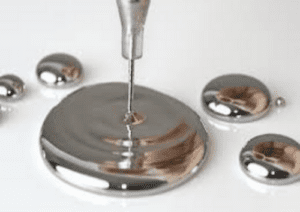
The Safe Mercury Amalgam Removal Technique is what's meant to be abbreviated as SMART. During the process of removing mercury fillings, this method, which was created by the International Academy of Oral Medicine and Toxicology (IAOMT), keeps all of our patients, as well as our dental team, safe from exposure to mercury vapor. According to the findings of a number of studies, silver (amalgam) fillings can include up to fifty percent mercury, which has the potential to cause a wide range of health problems. Mercury exposure has been linked to a wide variety of adverse health effects, including but not limited to: depression, anxiety, chronic illnesses, persistent weariness, and prenatal abnormalities. Because of this, many patients who have older metal fillings want to have them removed from their teeth.
READY TO SCHEDULE YOUR CONSULTATION? CLICK HERE!
HOW IT IS DONE: THE SMART PROCESS
CONSULTATION
Your current metal fillings will be evaluated by Dr. Cohan during your consultation to determine whether or not you will need to have them replaced. It is possible that your she will advise you to keep them in place if they are in good shape and do not constitute a risk to your health. However, in the majority of instances, it is to one's advantage to have them replaced.
PRECAUTIONARY MEASURES
During the process of removing your filling, both you and your doctor will wear protective coverings and a drape will be placed between the two of you. In the operatory, there will be a high-vacuum filtering system that will be used to remove any mercury vapor that may be formed as a result of the removal of your silver fillings.
PREPARING FOR THE PROCEDURE
During the whole duration of the process, you will be required to breathe oxygen through a face mask in order to prevent the inhalation of any potentially hazardous fumes. A dental dam will also be placed in your mouth by your doctor in order to isolate the region that is being operated on.
REMOVAL OF METAL FILLINGS
Your dentist will begin the process of removing the metal amalgam fillings using a precise drill, suction, and water as soon as all of the safety precautions have been taken.
ORAL RINSE
Following the extraction of the metal filling, your dentist will provide you with a slurry of activated charcoal and water to rinse your mouth with. Through the process of rinsing your mouth with a slurry, the charcoal will be able to absorb any potential trace amounts of metal that may have made their way into your mouth.
PLACEMENT OF NEW FILLINGS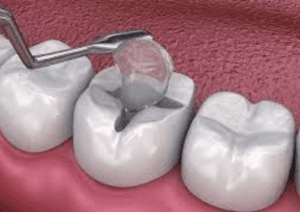
At long last, the metal filling that was previously in your tooth will be replaced with a long-lasting composite filling instead. Fillings made of composite material not only help to maintain the natural structure of your tooth, but also improve its overall appearance.
THE BENEFITS OF SMART
ENJOY BETTER AESTHETICS
It's possible for metal fillings to make your smile look dingy and unattractive. Even when they are attached to the back teeth, they can be seen when the person laughs, smiles, or speaks. Patients can experience the aesthetic benefits of composite fillings that look more natural than natural tooth enamel when metal fillings are removed and replaced.
STAY AHEAD OF MENTAL HEALTH PROBLEMS
According to the findings of several studies, mercury exposure has been related in some instances to clinical depression as well as other mental health problems. Eliminating the presence of mercury in your mouth is the best way to avoid these possible effects, despite the fact that they are quite uncommon. Insomnia, irritability, anxiety, and withdrawal from social situations have been reported as symptoms of mercury poisoning brought on by the inhalation or consumption of mercury vapor in some instances.
STAY HEALTHY TO AVOID ONGOING ILLNESSES
Studies have indicated that having mercury in the bloodstream can lead to chronic and long term disorders such as Alzheimer's disease, cardiovascular issues, and renal dysfunction. This is in addition to the unfavorable associations that have been shown between mercury and mental health.
KEEP YOUR TEETH IN GOOD HEALTH.
Traditional metal fillings don't attach to the teeth nearly as well as their modern composite counterparts do. This translates to the removal of less dental enamel being necessary when using composite fillings as opposed to metal fillings. Because of this, many dentists will advise their patients to replace a metal filling that has become damaged with a composite filling in order to save as much of the patient's natural tooth structure as is practicable. In the long run, this helps to keep your teeth in good health and strengthens them.
INTERESTED IN COSMETIC PROCEDURES? CLICK HERE TO SCHEDULE YOUR APPOINTMENT.
FREQUENTLY ASKED QUESTIONS:
DOES REMOVING AMALGAM FILLINGS HURT?
No. During the entire procedure, the region that encompasses the tooth will have a numbing effect. You might feel a little bit of pressure from the drill, but you shouldn't experience any discomfort at all. Sedation is an option that may be made accessible to you in specific circumstances so that you can remain blissfully oblivious and calm while undergoing your SMART operation. Make an appointment with your primary care provider as soon as possible if you are interested in discussing the various methods of sedation at your disposal.
HOW LONG DOES THE PROCESS TAKE?
The length of the process will change depending on the specific requirements of each individual patient. The length of the treatment will be determined, in part, by the size and quantity of the metal fillings that need to be extracted. Having a filling placed in each tooth, on the other hand, often takes about the same length of time as doing this procedure.
IS REMOVING MERCURY FILLINGS COVERED BY INSURANCE?
If it is judged that the removal of your metal fillings is a necessary therapy rather than an elective one, then it is possible that your insurance will cover the cost of the procedure. If your metal fillings are considered to be in good condition and do not pose a threat to your health, you may be responsible for paying some out-of-pocket costs in order to have them removed for the sole purpose of improving your smile's appearance. Get in touch with your insurance provider if you want to have a better understanding of your coverage. In addition, our team is delighted to respond to any questions you might have in order to be certain that you are maximizing the benefits that your dental insurance provides.
DO I NEED TO HAVE MY AMALGAM FILLINGS REMOVED?
In the vast majority of instances, metal fillings will need to be extracted. This is typically the result of the filling's advanced age. These days, the vast majority of dentists utilize composite fillings, therefore the fact that you have a metal filling makes it highly likely that it is deteriorating. This can result in more tooth decay, which is why it is essential to have your fillings evaluated to determine whether or not they are performing as expected. It is usually safer to have metal fillings removed proactively in order to decrease the danger of acquiring mercury poisoning (and the adverse effects that come along with it) in the future. This is in addition to any potential tooth decay that may occur.
READY FOR A NEW SMILE? CLICK HERE TO SCHEDULE YOUR CONSULTATION TODAY!
GET TO KNOW YOUR BEST DENTIST IN SUMMERLIN
Dr. Marianne Cohan was voted The Best Dentist/ Dental Office and Best Cosmetic Dentist from The Las Vegas Review-Journal in 2020 and 2021. She received her Doctor of Dental Surgery (DDS) from the State University of New York at Buffalo in 1992.

With an emphasis on cosmetic dentistry, complete makeovers, and implant dentistry, Dr. Cohan is committed to continuing education and feels that we never stop learning. Dr. Cohan takes pride in using high-powered magnification to perform minimally invasive restorative dentistry. She uses all the latest technological advances including digital radiography, digital photography, computer simulations, and high-resolution pictures of your proposed treatment on 55-inch screens. She also utilizes CBCT (cone beam) and laser technology.
Dr. Cohan is always available to her patients and is available for any dental emergency.
CLICK HERE TO SCHEDULE YOUR APPOINTMENT!
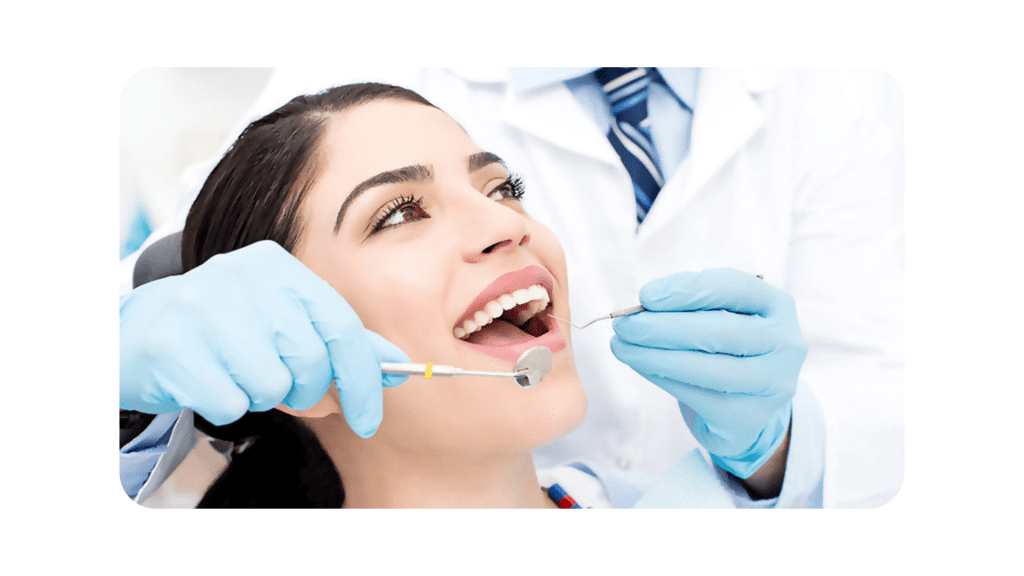
Over one hundred million people in the United States do not visit their dentist on a regular basis each year, which has important implications for the oral health of the nation as a whole. In point of fact, maintaining good oral health requires constant maintenance at the dentist's office. Having said all of that, the next query is one that you are most likely asking yourself: how frequently am I required to visit my dentist? In contrast to what the vast majority of people believe, the answer to this question differs. You will find the answer to the question that was just posed, as well as an explanation of the reasoning behind it, in the following paragraphs.
The usual advice, which is every six (6) months or twice a year:
What about the myths?
It's likely that someone has suggested going to the dentist at least twice a year to get their teeth checked up. However, despite how humorous it may sound, this tip was first presented in an advertising for toothpaste. It was not based on any legitimate dental research. This guideline is an useful rule of thumb for many people, but it should not be applied to everyone because some people may need to visit their dentist more or less frequently based on their dental health needs.
If this is the case, why do some people require fewer visits to the dentist than others, while others require more frequent checkups?

Your dentist is actually the only one who can provide you with an answer that is both accurate and exact to this issue. Of course they can. As was just mentioned, certain individuals have a greater need to visit their dentist more frequently than twice per year. This is especially true for those who have a higher risk of developing dental disease in addition to other health conditions that necessitate visits to the dentist at least once every three or four months. Patients who, on the whole, have good dental health may need to visit the dentist no more frequently than once every 12 to 24 months.
Who among these should visit the dentist most frequently?
Pregnant women
Gums may become red, tender, and uncomfortable as a result of the hormonal changes that occur during and after pregnancy. If this is the case, your dentist may suggest that you undergo additional cleanings during the second and early third trimesters of your pregnancy in order to help reduce gingivitis. This highlights the significance of visiting your dentist more frequently during pregnancy.
Diabetics
People who have diabetes are more likely to have gum disease, and there is evidence in the medical literature to suggest that treating gum disease can help improve blood sugar control. As a result, it is recommended that diabetic people have professional deep cleanings performed more frequently than twice every year.
• Since smokers have a higher risk of developing periodontal illnesses and are more likely to have discolored teeth, they may require more frequent dental checkups as a result.
• Patients suffering from gum disease.
• Individuals who have a compromised immunological response
• Individuals who have a predisposition for the development of dental caries or plaque
What are the benefits of having routine checkups?
They allow for early detection of dental and oral issues, which allows for better health management:
• Even if you brush your teeth twice a day and floss as recommended, you still need to visit your dentist at least once every six months. This is the recommended amount of time to spend at the dentist. Patients are unable to discover issues such as cavities or gum disease before they have progressed to the point where they are excruciating. Patients who maintain their dental health by going in for regular checkups increase their chances of having any developing issues discovered at an early stage, when they are easier to treat and less severe.
Dentists inspect not only your teeth, but also your gums and mouth, so this is an extra benefit that should not be overlooked. The fact that oral malignancies are most frequently discovered by dentists is a significant advantage. Oral cancer screenings can consequently assist in the detection of malignant lesions, which, if found at an earlier stage, are amenable to treatment that is more successful.
• Ultimately, going to the dentist as frequently as is suggested can help you save time, reduce the amount of discomfort you experience, and even help you save money.
In conclusion, if you take better care of your teeth, you will reduce the likelihood that you will acquire cavities and other issues related to your oral health. As a result of this, you will have a reduced need to go to the dentist. It is recommended that you brush your teeth twice a day, and in addition to that, you should not be afraid to use dental floss, interdental brushes, or an oral irrigator. Your dentist may then decide to increase the amount of time that passes between your appointments. In order to maintain excellent dental health and follow the recommendations of your dentist, you should always keep all of your scheduled appointments.
CLICK HERE TO SCHEDULE YOUR APPOINTMENT!
Dr. Marianne Cohan was voted The Best Dentist/ Dental Office and Best Cosmetic Dentist from The Las Vegas Review-Journal in 2020 and 2021. She received her Doctor of Dental Surgery (DDS) from the State University of New York at Buffalo in 1992.

With an emphasis on cosmetic dentistry, complete makeovers, and implant dentistry, Dr. Cohan is committed to continuing education and feels that we never stop learning. Dr. Cohan takes pride in using high-powered magnification to perform minimally invasive restorative dentistry. She uses all the latest technological advances including digital radiography, digital photography, computer simulations, and high-resolution pictures of your proposed treatment on 55-inch screens. She also utilizes CBCT (cone beam) and laser technology.
Dr. Cohan is always available to her patients and is available for any dental emergency.

Do you put off visiting to the dentist because you don't believe that keeping your oral health is as important as other aspects of your overall health?
It's possible that the strong connection between dental health and general health and wellness will come as a surprise to you.
It is common knowledge that it is vital to maintain good oral health and make routine trips to the dentist in order to avoid toothaches, cavities, poor breath, and other dental problems. However, not taking proper care of your teeth can also have an effect on your general physical health, increasing your risk of developing cardiovascular disease as well as other difficulties.
It is essential to have a solid understanding of the connections between oral health and overall wellness, as well as the ways in which the two can influence and contribute to one another. Continue reading for information about the various physical disorders that are linked to dental health, as well as the steps you may take to prevent adverse effects.
When bacteria from your mouth make their way into your bloodstream, it can have an effect on your entire health and wellness, which is why maintaining good oral health and hygiene is so important.
In most cases, natural defenses that have been set up by your body are able to prevent bacteria from invading certain systems. On the other hand, if you do not maintain good dental hygiene, the bacteria that accumulates in your mouth has a chance of getting into your bloodstream and spreading throughout your body.
Tooth decay and gum disease are both conditions that can be caused by bacteria found inside of your mouth. According to the findings of several studies, periodontal disease may also be associated with bacterial pneumonia and cardiovascular disease. Therefore, paying attention to the hygiene of your mouth can prevent bacteria from infiltrating the rest of your body, which can in turn protect you from a variety of potentially serious health conditions.
Regular dental checkups can benefit not only your oral health but also your overall health.
Which medical conditions are linked to oral health issues?
Poor dental health and wellness have been linked to the following illnesses:
Oral bacteria, which has been connected to cardiovascular disease, can induce inflammation. This may raise the risk of coronary artery disease, stroke, and cardiovascular disease.
• Endocarditis: If you don't maintain good oral hygiene, bacteria from your mouth could enter your bloodstream and attach themselves to different parts of your heart. This condition can occur when you don't properly care for your teeth and gums. Because of this, an infection will develop in the valves that are located inside of your heart.
• Birth issues Periodontitis is a known factor in the development of birth complications during pregnancy, including the delivery of a baby who is premature. In addition, the treatment of periodontal disease can lessen the requirement for insulin in patients with diabetes.
• Cancer: Poor oral hygiene has been linked to a number of cancers, including leukemia and oral cancer.
• Pneumonia: In the same way that bacteria can get into your heart, they may also get into your lungs, which can lead to pneumonia and other respiratory problems.
Which conditions have the potential to impact your oral health?
Oral health can play a role in the development of certain health issues, and some health conditions can play a role in oral health. Examples of medical conditions that may affect your dental health include the following:
• Diabetes: Gum disease is more likely to affect people with diabetes. A person with diabetes has a reduced immune system, which increases their susceptibility to disease. Gum disease patients have a more difficult time managing their blood sugar levels, which can be improved with appropriate periodontal care.• Alzheimer's disease: As Alzheimer's disease advances, it is possible for patients to experience deterioration in their oral health.
• HIV/AIDS: Individuals who have HIV or Aids are more prone to suffer from oral problems, such as mucosal sores.
• Osteoporosis: This condition occurs when your bones become fragile or weak, which can lead to issues with your dental health such as tooth loss and bone loss in the jaw. There is a possibility that people taking medication for osteoporosis would experience harm to their jawbones.
What can I do to safeguard the health of my mouth?
Maintaining good oral hygiene, being aware of the warning signs of gum disease, and scheduling routine checkups with a dentist in your area are the three most important things you can do to promote both your oral and overall health.
• Make sure you brush your teeth at least twice a day: The most fundamental step you can do to safeguard your oral health is to brush your teeth with fluoride toothpaste twice day. Keeping up with this technique will enable the defense mechanisms in your body to operate effectively, thereby keeping bacteria from entering your system.
• Try to eat healthily as much as you can because the food you consume can have an effect on the condition of your teeth. You should eat in a way that is both healthy and balanced. You should also stay away from foods that contain an excessive amount of sugar.
• Floss your teeth every day. Daily flossing has a number of important benefits for your oral health. Inflammation can be reduced by cleaning the spaces between your teeth, which can also help eliminate bacteria-filled plaque.
• Schedule checkups and regular appointments with your dentist: When you go to the dentist on a regular basis, they are able to monitor your oral health and take preventative measures against gum disease and tooth decay before they cause any significant damage. At the very least, you should visit the dentist twice every year.
• Refrain from using any form of tobacco: The lungs and gums are particularly vulnerable to the harmful effects of tobacco use. Stay away from cigarettes and tobacco if you want to keep your dental and overall health in good shape.
• Change your toothbrush at least once every three to four months If you want to maintain good oral health and cleanliness, you should change your toothbrush at least once every three to four months.
Aside from practicing basic dental hygiene, it is also important to be on the lookout for the signs and symptoms of gum disease. If you observe any symptoms, you should visit a dentist as soon as possible and take the necessary precautions.
Signs that indicate gum disease:
Maintaining good oral hygiene on a regular basis and being aware of the warning signs of gum disease are both important things to do if you want to stay healthy.
Observations and conclusions
Maintaining good dental health can affect one's overall health since oral bacteria can enter the bloodstream and other bodily systems. Poor oral hygiene has been related to a higher risk of illnesses like endocarditis, cardiovascular disease, and complications during childbirth.
CLICK HERE TO SCHEDULE YOUR APPOINTMENT!
GET TO KNOW YOUR BEST DENTIST IN SUMMERLIN
Dr. Marianne Cohan was voted The Best Dentist/ Dental Office and Best Cosmetic Dentist from The Las Vegas Review-Journal in 2020 and 2021. She received her Doctor of Dental Surgery (DDS) from the State University of New York at Buffalo in 1992.

With an emphasis on cosmetic dentistry, complete makeovers, and implant dentistry, Dr. Cohan is committed to continuing education and feels that we never stop learning. Dr. Cohan takes pride in using high-powered magnification to perform minimally invasive restorative dentistry. She uses all the latest technological advances including digital radiography, digital photography, computer simulations, and high-resolution pictures of your proposed treatment on 55-inch screens. She also utilizes CBCT (cone beam) and laser technology.
Dr. Cohan is always available to her patients and is available for any dental emergency.
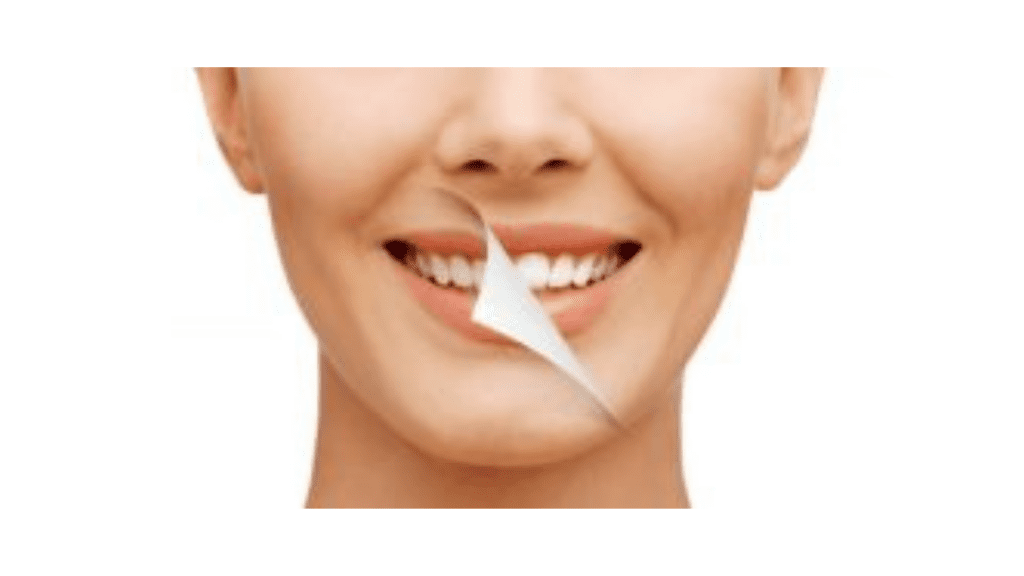
Is it feasible to design a smile makeover without going over budget? Absolutely. At Summerlin Dental Solutions, we give patients the option to obtain affordably cost aesthetic procedures every day. It all depends on the objectives you have for your smile, the financial commitment you can make, the time commitment you are ready to make, and the types of treatment options that are right for your teeth.
CLICK HERE TO SCHEDULE YOUR APPOINTMENT!
Never forget to monitor your finances.
Depending on the complexity of the procedure, the total cost of a smile makeover might range from $200 to more than $10,000. There are several choices available to you if your stimulus check is burning a hole in your wallet and you want to use it to get a smile makeover. In some situations, you might even have money left over (depending on what it is that you want.)
Our Summerlin cosmetic dental specialists will be able to develop a treatment plan for you that is both efficient and economical if you communicate your ideal spending cap or pricing range to us. This will prevent you from being shocked by the procedure's overall expense. Here, there is something for everyone to enjoy!
Learn about your options.
You've probably seen the beautiful dental makeovers that celebrities have flaunted online, on magazine covers, and in news stories about them. Not all improvements to the grin, meanwhile, are made equal. It is not necessarily required to have porcelain dental veneers installed on every single tooth that is visible when you smile in order to have attractive teeth.
Additional aesthetic treatments to think about include enamel recontouring, dental bonding, gum recontouring, take-home whitening trays, chairside veneers, white fillings, gum bleaching, accelerated orthodontics (short-term braces), injectables like Botox, and injectable fillers.
Combine, Then Combine Some More
Our Summerlin cosmetic dentist will work with you to create a plan that incorporates suitable treatment options into the larger scheme of things. In order to do this, a tooth-by-tooth strategy will be used. A "treatment plan" or "case plan" is what is used in this method, and it details the precise therapies that will be applied to each tooth as well as the sequence in which they will be done. Dr. Cohan can also come up with a few alternative treatment plans for you so you can weigh all of the possible results before choosing.
For instance, one of the techniques can involve bonding in a few particular areas of the mouth after teeth whitening with Invisalign. Another option is to undergo gum recontouring surgery following the placement of six veneers. In a nutshell, you have the knowledge you need to carefully examine which activities are most suited for your particular circumstances from the different combinations and plan alternatives that are possible. There is no such thing as a smile makeover kit! It does not necessarily follow that you will have to go through the exact same process in order to achieve the same goals just because one treatment option worked better for a friend.
Numerous Possibilities for Interest-Free Financing

Assuming you want to spend a little more on your smile makeover, you want to research low-cost monthly payment options so that you can start the procedure as soon as possible. You'll be happy to know that Summerlin Dental Solutions and CareCredit have partnered to offer low-interest and even interest-free financing options for all of their services if this applies to you (including non-cosmetic treatments.)
What happens is as follows: You can apply online or in person at our office, and you will immediately be approved and have access to the money. a device that resembles a debit or credit card. After that, you can use the account number connected to your CareCredit card to pay in full or in part for your dental operations.
In order to give coverage for areas of your care that might not be covered by your usual benefits, such as cosmetic dentistry, it is also possible to combine it with any existing insurance coverage. Depending on the terms of their accounts, the majority of our patients are qualified to get 0% interest on their CareCredit accounts as long as the debt is paid off within 12 to 18 months, or at a low interest rate overall. Since you will be able to afford smaller monthly payments while staying within your budget, you won't have to put off getting a smile makeover because you can't afford larger monthly payments.
If there is one thing that we know for sure about dentistry, it is that treating oral health issues when they are discovered early on is more cost-effective than waiting until they have become more serious disorders. The overall cost of the initial treatment will need to be adjusted if you are aware that a porcelain crown is necessary for a tooth but the enamel continues to deteriorate over time. This is due to the enamel's declining cost over time. You can save time and money by resolving the problem as soon as you can, before it has a chance to get worse.
Our mild, customized smile makeover procedures at Summerlin Dental Solutions are available for patients from all walks of life. No matter who you are or where you are in life, whether you are a recent college graduate getting ready to enter the workforce, a busy parent running your own business, or a recent retiree, we are here to help you achieve the smile of your dreams. Make an appointment for a free consultation with Dr. Cohan to discover more about your choices. Together, we'll be able to help you develop a grin you'll be proud to flash to others.
CLICK HERE TO SCHEDULE YOUR APPOINTMENT!
GET TO KNOW YOUR BEST DENTIST IN SUMMERLIN
Dr. Marianne Cohan was voted The Best Dentist/ Dental Office and Best Cosmetic Dentist from The Las Vegas Review-Journal in 2020 and 2021. She received her Doctor of Dental Surgery (DDS) from the State University of New York at Buffalo in 1992.

With an emphasis on cosmetic dentistry, complete makeovers, and implant dentistry, Dr. Cohan is committed to continuing education and feels that we never stop learning. Dr. Cohan takes pride in using high-powered magnification to perform minimally invasive restorative dentistry. She uses all the latest technological advances including digital radiography, digital photography, computer simulations, and high-resolution pictures of your proposed treatment on 55-inch screens. She also utilizes CBCT (cone beam) and laser technology.
Dr. Cohan is always available to her patients and is available for any dental emergency.
When we offer a dental treatment like sealants to you or your kid, our primary objective is to ensure that you have a comprehensive understanding of all aspects of the therapy. This is because, in the end, the choice of whether or not to go through with the treatment lies solely in your hands. Our dentist in Summerlin will want to go over with you the reasons why the treatment is necessary, what it takes, the benefits of getting it done, and the risks of not having it done so that you have an understanding of all of these things.
For instance, while doing a standard checkup on you or your child, we might notice that some of your teeth or their teeth could benefit from having dental sealants applied. In that scenario, the following information will provide you with all of the details you require concerning this standard practice. In this way, you will be able to make an informed decision regarding whether or not you would like to proceed with allowing your child to undergo sealants.
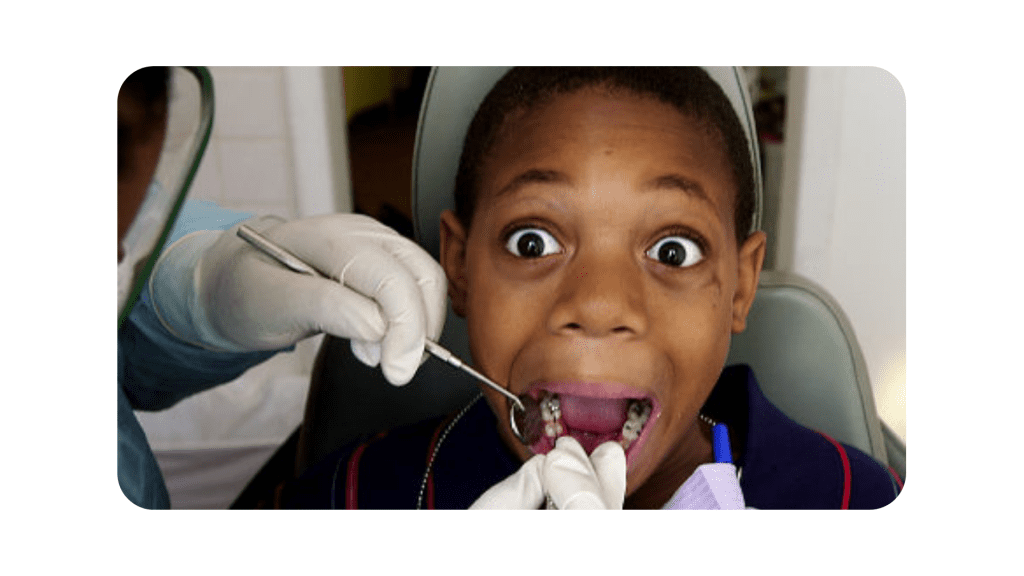
What exactly is a dental sealant, and why should you consider getting one?
In a nutshell, a dental sealant can be described as a thin coating that is similar to plastic and tooth-colored. This coating is applied to the biting surface of the back teeth.
When molars (the teeth at the back of the mouth) first emerge in youngsters, the biting surface of these teeth has deep pits and grooves. These locations are more prone to the accumulation of plaque and germs. Even for conscientious parents, it may be impossible to clean these spaces because of their difficult accessibility. As a consequence of this, bacteria are able to colonize them, and cavities begin to form.
A dental sealant is a preventative measure that is used to fill in these pits and grooves, making the biting surface of the tooth smoother and more level. This is accomplished by filling the pits and grooves with a material that is similar to putty. If you do this, less plaque and food debris will stick to your teeth, which will make it much simpler to clean your teeth and reduce the likelihood that you will develop dental decay.
Should Children Necessarily Have Dental Sealants Placed?
A method that is carried out in order to forestall the manifestation of unfavorable outcomes is referred to as a preventative treatment. As a consequence of this, having a sealant applied is not a matter of life and death. It is nothing more than a recommendation that is provided by your dentist in order to assist in helping to reduce the likelihood of a tooth acquiring decay at a later time. Sealants on permanent molars have been shown to lower the risk of decay by as much as 80 percent, according to the American Dental Association (ADA). As a result, the majority of patients believe that this preventative therapy is well worth the investment.
It is natural for teeth with deep grooves and pits to wear down and become flatter after years of use. This process can take several years. However, when determining whether or not to have sealants placed, you should think about whether you are ready to risk the possibility of developing decay in the meantime. If you are, then you should go ahead and decide to have sealants installed. In particular for a child, who may not be as diligent as an adult in the practice of brushing their teeth.
The Process of Dental Sealant Application
The application of dental sealant is a simple, quick, and completely painless technique. After being thoroughly cleaned and polished with a specialized conditioning gel, the tooth is ready for the next step. After that, a bonding agent is brushed over the tooth in small amounts. After that, the material used as a sealant is put into the pits and fissures of the tooth. This causes the sealant to harden and adhere to the tooth when a certain light is shined over the area to cure it.
The procedure described above may need to be carried out more than once if there are a significant number of teeth that need to be sealed.
What is the difference between a sealant and a filling?
When there is a cavity in the tooth that needs to be removed, a restorative procedure called a dental filling is employed. This filling is called a dental filling. A drill will be used to remove the cavity, and you will be given anaesthetic to keep you from feeling any discomfort during the procedure. Since dental sealants in youngsters are not "repairing" anything, the procedure does not require any needles or loud drills.

The majority of sealants are pretty durable and may typically last as long as they were intended to. When the tooth has matured to the point where it does not have deep grooves and pits because of wear, the sealant is no longer required. This occurs when the tooth has worn down to this stage. On the other hand, we will not remove a sealant; rather, we will wait for it to fall out on its own at the appropriate moment. In the event that a sealant breaks down too quickly, it will need to be changed. When your child comes in for his or her regular dental checkups, we will evaluate the condition of each tooth as well as the sealant that protects it.
The Controversy Surrounding Dental Sealants Recent studies have demonstrated that certain dental sealant materials contribute to a very low-level exposure to bisphenol A (BPA). This has caused some individuals to reconsider having the treatment done. The American Dental Association (ADA) states that BPA exposure from dental sealants only lasts for a few hours after implantation, and they believe that the benefits of using dental sealants exceed the potential risks. In point of fact, inhaling air puts you at a greater risk of being exposed to BPA by one hundred times than dental sealants do.
Dental Sealants in Summerlin
Dr. Cohan, our Summerlin dentist, will conduct an examination of your child's teeth in order to determine whether or not sealants are indicated for them. This will take place when you bring your child in for a normal dental cleaning. You may have complete faith that we are looking out for your child's best interests and that we will never recommend preventative treatment that is not in some way actually beneficial to their overall health.
Please do not be reluctant to let us know if you ever experience any feelings of unease or if you have any queries that you would like answered. We take great pleasure in educating our patients about the importance of maintaining good oral health and look forward to the opportunity to do so with you. Please give us a call right away.
CLICK HERE TO SCHEDULE YOUR APPOINTMENT!
GET TO KNOW YOUR BEST DENTIST IN SUMMERLIN
Dr. Marianne Cohan was voted The Best Dentist/ Dental Office and Best Cosmetic Dentist from The Las Vegas Review-Journal in 2020 and 2021. She received her Doctor of Dental Surgery (DDS) from the State University of New York at Buffalo in 1992.

With an emphasis on cosmetic dentistry, complete makeovers, and implant dentistry, Dr. Cohan is committed to continuing education and feels that we never stop learning. Dr. Cohan takes pride in using high-powered magnification to perform minimally invasive restorative dentistry. She uses all the latest technological advances including digital radiography, digital photography, computer simulations, and high-resolution pictures of your proposed treatment on 55-inch screens. She also utilizes CBCT (cone beam) and laser technology.
Dr. Cohan is always available to her patients and is available for any dental emergency.
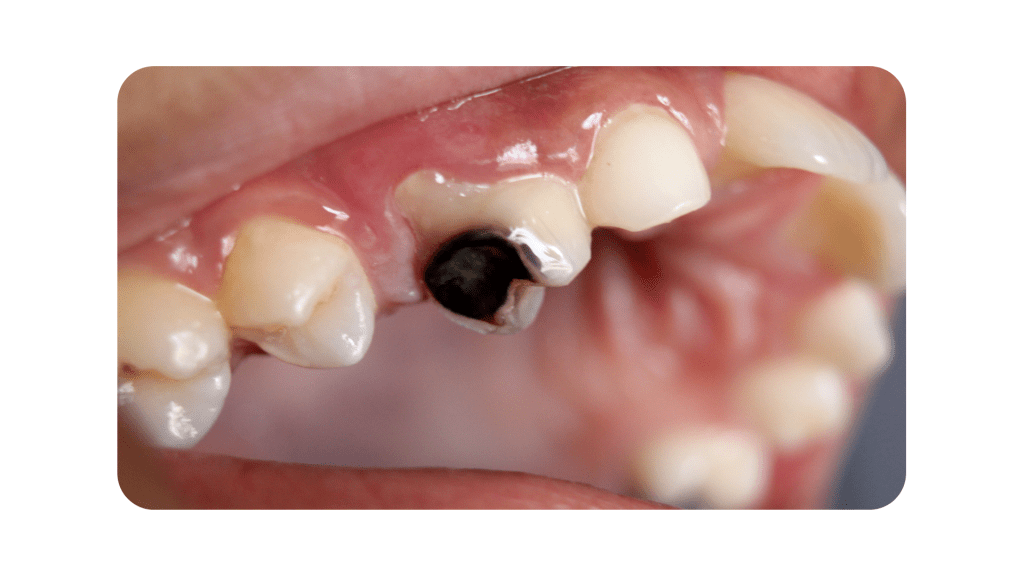
It is important to remember not to dismiss the possibility of developing cavities in your teeth as a remote possibility. Cavities can develop without you even noticing them, and once they do, they can put your life on hold with excruciating toothache until they are treated.
What Exactly Is Tooth Decay, and What Are Its Root Causes?
Plaque is formed from the remnants of food that are still in your mouth after you have finished eating. Acid is produced in your mouth when the bacteria that cause plaque digest the sugars and carbohydrates that are found there. This acid is powerful enough to dissolve and erode the enamel (outer layer) that covers a tooth, which is the condition that is referred to as dental decay (a cavity).
The Different Stages, Symptoms, and Treatments of Tooth Decay
When decay begins to develop in a tooth, it begins on a very small scale. If the issue is not properly diagnosed or is ignored, the cavity will continue to grow and will eventually penetrate deeper into the tooth.
Because tooth decay progresses through stages, there are a variety of symptoms that can be seen, felt, and even tasted at various points in the process.
The appropriate treatment for your cavity will be determined by the extent of the decay as well as the location of the problem.
Stage 1: Enamel Deterioration
When it is in its early stages, a cavity has not yet broken through the enamel of the tooth (outer layer of the tooth).
During this time, the symptoms are not as severe. It's possible that you won't even notice any of them at all. Sometimes you'll notice a dark spot on your tooth, and other times you might feel a slight sensitivity in that area.
Our dentist in Summerlin will remove the affected area of enamel and then fill the void with a tooth-colored filling material. Fillings are a quick solution that is also very affordable and can last for many years.
Stage 2: Dentin
As soon as the decay penetrates the enamel surface, it reaches the dentin layer, which has a soft consistency and is extremely susceptible to decay. Once this layer has been reached, the decay can no longer be stopped. This indicates that the cavity has the potential to rapidly spread once it reaches the dentin.
At this stage, the tooth sensitivity that you have been experiencing should become more apparent. You might experience pain when exposed to cold temperatures, when brushing your teeth, or when eating sweet foods.
If the decay has spread throughout the majority of your tooth, our dentist in Summerlin may suggest getting a crown rather than a filling. This is the case when the decay is more extensive. A crown is a sturdy cap that can be fitted over a tooth in order to protect it from suffering any further deterioration. Because there are more steps involved in this treatment, it does take significantly more time to finish. Additionally, the price is somewhat higher than that of a straightforward filling. Crowns are an investment, but they can last a very long time if they are properly made and maintained, so the money you spend on them is well worth it.
Stage 3: Pulp Chamber
The pulp chamber is reached when the decay has progressed far enough to penetrate the dentin layer. This portion of the tooth houses the nerves, blood vessels, and connective tissue that are found in the tooth. Your tooth will become infected once the cavity has made its way into the pulp of the tooth.
You should prepare yourself for a good deal of discomfort throughout this stage. It's possible that, in addition to the cold temperatures, the heat will start to bother you. You might also find that you have to take pain medication to alleviate a persistent pain that you are experiencing. This might happen.
We are going to take an x-ray of your tooth so that we can be certain that the cavity has spread to the pulp chamber. Root canal therapy is going to be required in order to save and repair your tooth. During this procedure, the nerve tissue will be removed, the canals will be sterilized, and then the canals will be sealed off to prevent bacteria from entering again. In addition to having the treatment done on the nerves of the tooth, it is likely that you will need to have a crown fitted for you. The vulnerable tooth will be protected from further damage as a result of this action.
Stage 4: Abscess

The roots of your teeth are firmly rooted in your jawbone, so when you look in your mouth, you won't be able to see that portion of your tooth known as the root. Nerve canals are passageways that extend beyond the pulp chamber and run down the length of each root. If your cavity has progressed far enough to reach the nerves of the root, you may start to experience severe tooth pain as well as swelling in the face. If you have an abscess, you will notice that you have what looks like a small pimple on your gums. This is known as a fistula.
An abscess in the mouth or teeth is a serious condition. It's possible that over-the-counter pain medications won't provide you with any relief. Because of the toothache, you might find that you can't sleep at night or that you wake up a lot during the night. There is a possibility that the gum tissue surrounding the affected tooth will swell, and this swelling may spread to the rest of your face. You might also be running a fever.
When a severe infection has set in as a result of a cavity, it is possible that the tooth cannot be saved by having a root canal performed on it. It is possible that an extraction will be required. We will need to take an x-ray of your tooth in order to determine its current state and whether or not it can be saved. If it turns out that we do need to extract it, then getting a dental implant as a replacement tooth might be the best option for you.
Avoiding Dental Caries
Maintaining perfect oral hygiene is the most effective method for warding off cavities. Working together with your dentist in Summerlin for routine cleanings and examinations is the best way to ensure that any issues, should they arise, will be addressed without delay.
If you haven't been to the dentist in a while or if you have any reason to believe that you might have a cavity, it's time to make an appointment with Dr. Cohan. Make an appointment by calling in today.
CLICK HERE TO SCHEDULE YOUR APPOINTMENT!
GET TO KNOW YOUR BEST DENTIST IN SUMMERLIN
Dr. Marianne Cohan was voted The Best Dentist/ Dental Office and Best Cosmetic Dentist from The Las Vegas Review-Journal in 2020 and 2021. She received her Doctor of Dental Surgery (DDS) from the State University of New York at Buffalo in 1992.

With an emphasis on cosmetic dentistry, complete makeovers, and implant dentistry, Dr. Cohan is committed to continuing education and feels that we never stop learning. Dr. Cohan takes pride in using high-powered magnification to perform minimally invasive restorative dentistry. She uses all the latest technological advances including digital radiography, digital photography, computer simulations, and high-resolution pictures of your proposed treatment on 55-inch screens. She also utilizes CBCT (cone beam) and laser technology.
Dr. Cohan is always available to her patients and is available for any dental emergency.

A number of factors, including the quality of your teeth and mouth, can have a big influence on your overall appearance. When combined with smile wrinkles, teeth that are yellowed or worn down might make you appear older than you really are. You are in luck because there are a few things that our dentist in Summerlin recommends you try in order to obtain a smile that makes you seem years younger and feel better about yourself. This can be accomplished with a little bit of work on your part.
1. To improve the appearance of the fullness of your lips, use cosmetic fillers.
The loss of volume in your lips is a common side effect of getting older, and if you've noticed that your lips aren't as full as they used to be, then you've witnessed one of the typical effects that comes along with getting older. In order for your lips to restore the fullness they previously had, you should talk to your physician about injectable lip fillers. These fillers provide volume to the area around your lips. This dental cosmetic surgery does not have any inherent risks, only requires a short period of time, and produces effects that last for a few months at a time.
2. Eliminate Lip Wrinkles
When some individuals make particular movements with their mouths, the skin that surrounds their lips can generate lines, giving the appearance that their lips are aged and wrinkled as a result.
Combining Botox, which "freezes" the muscles to prevent them from producing those lines in the first place by preventing them from contracting, with dermal fillers, which fill in the surface, is an effective way to get rid of these creases. Dermal fillers fill in the surface, while Botox fills in the surface.
Static lines are the name given to the deep, permanent creases that develop around the mouth and chin over time. Laser treatments are the only way to remove static wrinkles; injectables like Botox and other procedures that are functionally equivalent will not work.
3. Quit Smoking
The decrease in blood circulation that occurs as a direct result of smoking speeds up the natural aging process and makes it more likely that wrinkles will appear. Wrinkles around the mouth area of a smoker's face tend to be more pronounced than wrinkles in other areas of the face because smokers regularly draw their lips together over their cigarettes.
4. Use bleach to lighten the color of your teeth.
The foods and beverages that a person consumes on a regular basis cause their teeth to yellow and become discolored as they get older. It is strongly suggested that you discuss the possibility of bleaching your teeth with a cosmetic dentist if you want to improve the overall appearance of your smile. There are some over-the-counter products that work effectively, but if you want the best results, you should use a professional whitening solution, which our dentist in Summerlin can provide for you free of charge. There are some over-the-counter products that work effectively. There are some products available without a prescription that perform really well. You have the choice of doing your bleaching treatment in the convenience of your own home or coming to our office, where we will do it for you in only one hour. Either way, you will achieve the same results!
5. Realign Your Teeth to Their Proper Position
If you have crooked teeth, it can really cause your smile to look old before its time because of the wear and tear it puts on your teeth. Straightening them will result in a more appealing and uniform appearance for you, which has the potential to make you look years younger than you actually are. The good news is that in order to obtain orthodontic treatment, it will not be necessary for you to wear metal braces at any point during the process. The majority of people in today's society are opting to undergo orthodontic treatment in the form of Invisalign clear aligner therapy in order to realign their teeth properly. You can use this method to straighten your smile by wearing trays that are almost unnoticeable over your teeth. These trays will help to move your teeth into their proper position. Invisalign can straighten your teeth in even less time than it takes for traditional braces to do so. Check with our Summerlin dental office to determine whether you qualify for the discount on your dental work.
6. Fight Back Against the Gum Depression with Some Action
Brushing your teeth excessively aggressively, grinding your teeth, and smiling in a way that doesn't line your teeth properly are some of the behaviors that might contribute to gum recession. As your gums begin to recede, you will be able to view the bases of your teeth, also known as the roots. Because of their dark coloring, one gets the feeling that they have been grinning for a very long time.
You have two options available to you for the treatment of gum recession: you can either have a gum graft placed, in which we fill in the missing gum tissue on your teeth, or you can have the worn areas filled in with a filling substance that matches the color of your teeth. Both of these procedures can be performed by your dentist.
When you brush your teeth, choose a toothbrush that has soft bristles and avoid exerting too much pressure. This will help prevent any further loss of gum tissue that may occur in the future. You may also give some thought to getting an electric toothbrush instead of a traditional manual one. If you are someone who grinds their teeth while sleeping, it is critical that you use a nightguard to protect the enamel on your teeth from being worn down. Nightguards can be purchased over-the-counter, but the nightguards that our dentist in Summerlin can provide for you will have a superior fit and will be designed precisely for your teeth. Nightguards can also be purchased online.
7. Have your teeth filled with white fillings rather than silver fillings.

It's possible that your grin will create the impression that you have gray and black teeth if you have silver fillings in the teeth that are visible when you smile. After having these old amalgam fillings removed and replaced with new ones that are the same color as your teeth, your smile will have the appearance of having been refreshed by several years.
8. Have any missing teeth replaced as soon as possible.
It's important for the facial structures to have all of your teeth in the right spots so they can provide support. If you start to lose your teeth, you'll also start to lose bone in your jaw, which will cause your cheeks to look sunken in and older than they really are. This happens because tooth loss causes bone loss in the jaw. This is due to the fact that tooth loss and bone loss occur at the same time.
Dental implants and bridges are two options for permanently replacing teeth that have been lost. Both of these procedures can be performed by a dentist. If you are missing a significant number of teeth and have a limited financial budget, one solution to consider is getting a removable partial denture.
9. Have a total transformation performed on your toothy grin.
In addition to other procedures, getting porcelain veneers placed on your teeth is something you should think about doing if you want to make the most significant change to your appearance that you can. Veneers are wafer-thin pieces of porcelain that are created to your specifications and then attached to the front of your natural teeth. Veneers can improve the appearance of your smile by making your teeth appear whiter and brighter. This operation can straighten and correct your grin in just a handful of consultations, while also making the shade look substantially more desirable.
10. Don't Forget to Keep a Positive Attitude at All Times
Smiling is the simplest and most cost-effective way to create the impression that you are younger than you really are. When people smile, they give off the impression of being friendlier, more beautiful, and more fun to be around. This hypothesis has been supported by research.
If you would like to improve the appearance of your teeth and have a smile that gives the impression that you are younger, you should call Dr. Cohan to book a consultation so that he can help you achieve your goals. When it comes to your makeover, we'll consider all of your options and choose the one that works best for you!
CLICK HERE TO SCHEDULE YOUR APPOINTMENT!
GET TO KNOW YOUR BEST DENTIST IN SUMMERLIN
Dr. Marianne Cohan was voted The Best Dentist/ Dental Office and Best Cosmetic Dentist from The Las Vegas Review-Journal in 2020 and 2021. She received her Doctor of Dental Surgery (DDS) from the State University of New York at Buffalo in 1992.

With an emphasis on cosmetic dentistry, complete makeovers, and implant dentistry, Dr. Cohan is committed to continuing education and feels that we never stop learning. Dr. Cohan takes pride in using high-powered magnification to perform minimally invasive restorative dentistry. She uses all the latest technological advances including digital radiography, digital photography, computer simulations, and high-resolution pictures of your proposed treatment on 55-inch screens. She also utilizes CBCT (cone beam) and laser technology.
Dr. Cohan is always available to her patients and is available for any dental emergency.
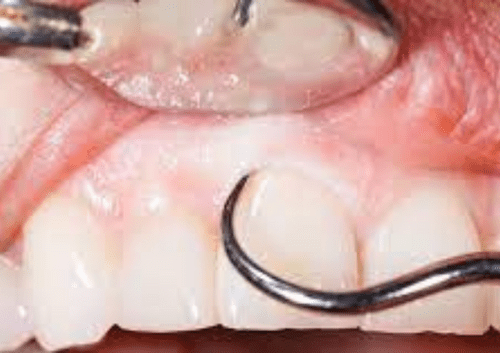
A scaling and root planing, sometimes referred to as an SRP, SCRP, or deep cleaning, is a specific kind of dental cleaning designed for people with active periodontal disease. Unfortunately, unlike the preventative dental cleanings that you typically schedule every six months, your dental insurance will not pay for all of the costs associated with a deep cleaning. Some individuals may decide against scheduling an SRP cleaning altogether due to the associated cost of doing so.
Don't let the price of a deep cleaning dissuade you from getting it done, though, because the longer you wait to treat your gum infection, the more harm you'll inflict to your mouth. How much does it cost to complete a thorough cleaning? It is dependent upon the number of teeth damaged as well as the nature of your dental insurance coverage. You can also save a significant amount of money by being prepared, and you can save up to sixty percent on thorough cleanings by enrolling in a dental savings plan.
Should I Get a Thorough Cleaning?
The most straightforward way to explain why you might require a deep cleaning is to first examine the things that are skipped over during a standard cleaning. The objective of a routine preventative cleaning is to serve as maintenance so that your mouth can remain in good health. It does not go very deeply beneath the gums into the deep "pockets" that are home to active illness and significant tartar buildup.
If you were to gloss over those regions, it would be the equivalent of your dentist and hygienist engaging in "controlled neglect." If you do have signs of disease in your mouth, your dentist and hygienist will advise you that you require a scaling and root planing procedure (SRP) or a "deep cleaning" in order to return your smile to a state in which it is free of disease.
If you have any of the following symptoms, you should have a deep cleaning as soon as possible:
SRP Fees are Affected by a Number of Cost Factors
The price of a dental deep cleaning, on the other hand, might vary widely depending on a number of various aspects of the patient's situation. It is possible that the price of an SRP will go up or down depending on which of these factors are applicable to your specific circumstances. The following are some of the most often seen variables:
1) How many of your mouth's four quadrants are currently getting cleaned?
During a deep cleaning, your mouth will often be sectioned off into fourths, with each quadrant receiving its own cleaning in turn. The majority of patients who have periodontal disease require cleaning in all four quadrants of their mouth.
2) The total number of teeth present in each of the four quadrants
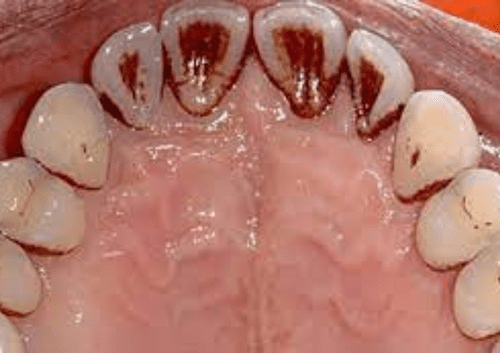
A person who is missing their wisdom teeth will have seven teeth in each quadrant of their mouth. On the other hand, perhaps you have already lost teeth or merely have a few teeth that are affected by active periodontal disease. The price of a thorough cleaning might be changed based on the number of teeth that are involved in each quadrant. In most cases, the answer will either be "four or more" or "fewer than four."
3) What is the grand total of the number of visits?
The entire out-of-pocket costs that are incurred will be affected by the total number of appointments that are scheduled. Particularly in the event that sedation or further anesthetics are required.
4) If you want to be sedated throughout the visit, you can ask for laughing gas.
When getting their teeth cleaned, some people want to take a mild sedative for comfort. In most cases, the individual patient's wishes are taken into consideration on whether or not this step is performed at all. However, there is an additional expense associated with sedation, particularly if more profound categories of drugs are utilized to achieve the desired effect. Nitrous oxide is typically the most cost-effective alternative, and the additional cost at each consultation may range anywhere from $20 to $40.
5) Determine whether or not a debridement is required before the procedure.
To demonstrate that you are in need of a scaling and root planing procedure (SRP), your insurance company will require a periodontal chart that is exhaustively detailed, as well as a full mouth series of X-rays. Only then will a deep cleaning be performed. A "debridement" may be necessary, however, if there is so much plaque on your teeth that your dentist is unable to view your gums in order to take measurements of them. This is not a cleaning in the traditional sense; rather, it is only a rapid removal of thick tartar deposits so that an appropriate assessment may be performed to determine the most effective method of treatment for you.
6) Your post-periodontal maintenance
In a purely scientific sense, periodontal disease does not cure itself, and you will continue to experience some gum and bone loss throughout your life. Periodontal maintenance visits, as opposed to preventative cleanings, are likely to be the type of cleanings that your dentist will perform at your regular checkups (prophylaxis.) This tiny change must be categorized differently on your dental insurance claims, which will also effect your long-term out-of-pocket payments.
How Much Does SRP Cost If You Don't Have Insurance?
Without insurance, how much does it cost to get a deep cleaning done?
If you still have all of your teeth, it will cost you approximately $300 each quadrant, but the exact amount will vary depending on where in the country you live. This pricing can change by approximately $100 to $150 each quadrant at any given time. If you don't have dental insurance, you should plan on spending an average of between $800 and $1,800 for your full mouth restoration (if you have all of your teeth.)
The price of quadrants with less than four teeth in each position is reduced. If this is the case, you should expect to pay approximately $100 less on average for each quadrant. Therefore, around two hundred dollars for each quadrant or between 600 and 1200 dollars for the entire mouth if there are less than four teeth in each quadrant.
What is the going rate for a thorough cleaning that includes insurance?
How much does a more in-depth cleaning cost if you have dental insurance and want to get it done?
When compared to the expense of regular preventative cleanings, which are typically covered in full by dental insurance, the cost of a deep cleaning is typically reimbursed only partially. Since insurance is typically focused on prevention, it pays more for services that are preventative in nature. If you have gum disease, you are no longer avoiding dental infections; rather, you are treating them after they have already occurred.
There is not a single dental insurance plan that is the same. Before purchasing coverage under a plan, the particulars are typically hammered out either by your company or by you personally. Deep cleanings are often covered by the typical dental insurance policy at a rate of approximately fifty percent. That's a significant drop from the typical one hundred percent that most people expect for regular dental cleanings.
If you are not used to paying $400 or $900 to have all of your teeth cleaned, then this scenario may cause you to experience sticker shock. This is especially true if you haven't had all of your teeth cleaned in a while. It is important to keep in mind that this is not a preventative or maintenance cleaning; rather, it is a therapy that consists of soft tissue therapies.
It is quite risky to put off going to the dentist for your routine exams because doing so might result in serious consequences, including gum disease. However, if you pay for an SRP with insurance, you will continue to save money throughout the course of your smile's lifetime while also protecting your teeth. Do not put it off any longer.
With a dental savings plan, you can save up to sixty percent on dental deep cleanings.
What are the Dangers Associated with Refusing to Obtain an SRP?
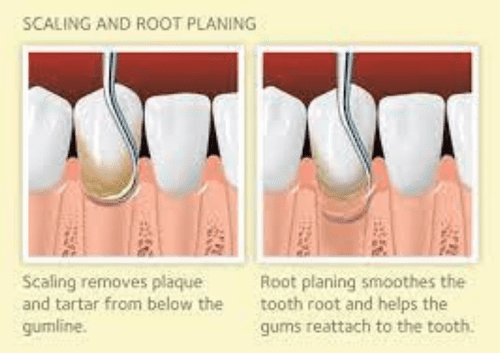
The cost of SRP cleaning is, without a doubt, the factor that contributes most frequently to individuals' decisions not to carry out their planned thorough cleaning. They might ask their insurance provider to fund "just a basic cleaning" or they could try to find an office that accepts their plan by calling around to different places.
When you have active gum disease, if you don't get a deep cleaning, the bacteria that live under your gums will continue to spread and cause further problems. Your teeth will become loose and finally fall out as the tissues and bone surrounding the roots of your teeth detach and degrade over time. This will cause your teeth to become mobile. It is not a matter of "if" but rather "when" it will happen. If you put off getting a thorough cleaning, there is a bigger chance that you will never be able to get the gum infection under control. This risk increases proportionately with the amount of time that passes.
Your tongue is not the only thing that could get hurt. Numerous scientific studies have shown that the more severe a person's gum disease is, the more difficult it is to cure or control a variety of medical disorders, including but not limited to:
The good news is that after the infection in your mouth has been eradicated, your immune system will be strengthened, and your body will be better able to recover from the underlying medical ailments it was suffering from.
How can I obtain an SRP at the lowest possible cost?
Whether or not you have insurance, the following are two wonderful choices to think about if you are unable to pay the expense of a deep cleaning:
Dental Savings Plans
Dental discount plans are an excellent option for families as well as individuals who are looking to save anywhere from ten percent to sixty percent off the typical cost of dental care. Give us a call at (702)341-9160 and ask about our Dental Savers plan today!
Payment Plans
With an in-house or third-party dental payment plan, you won't have any trouble paying for your comprehensive cleaning. Summerlin Dental Solutions has formed a partnership with CareCredit, which enables patients to obtain financing with zero or low interest for a period of six months to twelve months or more. In most cases, you will be able to pay off your deep cleaning by making manageable monthly payments and will be able to do so well before any interest costs become applicable.
What You Can Anticipate From SRP's
Aside from "bracing" yourself for the larger cost of the deep cleaning, an SRP is comparable to a particularly thorough dental cleaning. The most significant distinction is that the dental hygienist will typically just focus on one quadrant or one half of your mouth at a time, rather than the entirety of your mouth all at once.
This procedure allows for more time, which allows for more thorough cleaning to be done with specialized tools on regions that are difficult to access. It also makes it feasible to numb that area of your mouth with local anesthetic, so that you don't really have to feel anything other than some pressure. This eliminates the need for you to worry about experiencing any pain.
It's not something everyone desires, but having numbness in their tongue is always a possibility. When it comes to desensitizing their teeth and gums, some people choose using a numbing gel or rinse that works more temporarily. Because local anesthetics are administered, your dental hygienist will be able to clean one side of your mouth while the other side of your mouth remains numb.
Your in-depth cleaning will almost definitely be split up into at least two appointments, with one visit focusing on the cleaning of one side of your mouth and the other visit focusing on the cleaning of the other half.
Do the SRP Cleanings Cause Any Pain?

The majority of persons who suffer from gum disease have teeth and gum tissues that are sensitive. Because of this, in most cases, a local anesthetic will be used during the deep cleaning procedure. However, the sensitivity of your teeth shouldn't be to the point that you need to be "knocked out" for the appointment. Laughing gas, often known as nitrous oxide, is requested by some individuals so that they can feel more at ease.
After a deep cleaning, it is not uncommon to have some discomfort and sensitivity in the area that was cleaned. The calcified detritus that had been coating the root surfaces has been removed, which is the primary reason for this change. You will probably want to use a variety of sensitive items such as toothpaste or fluoride rinse to assist minimize your discomfort as the tissues begin to recover and tighten around your roots. These products can be used when the tissues begin to heal and tighten around your roots. It is also not uncommon for the places where the local anesthetic was injected to feel a bit sore after the procedure has been completed.
Your grin will live on in perpetuity. If the only thing standing between you and a healthy mouth is the cost of SRP cleaning, then you should definitely look into other financing methods or speak with Summerlin Dental Solutions staff in Summerlin, Nevada about your alternatives. Your whole body, not just your mouth, is vulnerable because maintaining a healthy oral environment is necessary to keep your immune system functioning properly. The relatively small sum spent on a thorough cleaning will more than pay for itself in the years and decades to come.
CLICK HERE TO SCHEDULE YOUR APPOINTMENT!
GET TO KNOW YOUR BEST DENTIST IN SUMMERLIN
Dr. Marianne Cohan was voted The Best Dentist/ Dental Office and Best Cosmetic Dentist from The Las Vegas Review-Journal in 2020 and 2021. She received her Doctor of Dental Surgery (DDS) from the State University of New York at Buffalo in 1992.

With an emphasis on cosmetic dentistry, complete makeovers, and implant dentistry, Dr. Cohan is committed to continuing education and feels that we never stop learning. Dr. Cohan takes pride in using high-powered magnification to perform minimally invasive restorative dentistry. She uses all the latest technological advances including digital radiography, digital photography, computer simulations, and high-resolution pictures of your proposed treatment on 55-inch screens. She also utilizes CBCT (cone beam) and laser technology.
Dr. Cohan is always available to her patients and is available for any dental emergency.
A comparison of dental veneers vs dental crowns, along with advice at your Summerlin Dental Office

PEOPLE ASK:
What are the most significant distinctions that exist between veneers and dental crowns?
What is the cost, technique, and benefits associated with both veneers and crowns.
Should I get veneers or crowns?
CLICK HERE TO SCHEDULE YOUR APPOINTMENT !
Crowns or veneers for your teeth? Oh, my! You've identified a problem with your teeth that has to be addressed, but how can you determine when to go in for which procedure? Consult with your dentist to determine the best course of action. However, if you are interested in learning more about each procedure for your personal purposes, continue reading to learn how to pick between veneers and crowns as well as a comparison of the two procedures at your Summerlin Dental Office.
To begin, you will need to have a complete comprehension of what each procedure includes. Dental veneers are similar to “wafers” in appearance and are bonded to the surface of the front teeth. Porcelain or composite are two examples of the materials that may be used to construct them. The most durable veneers are made of porcelain, but they are also the most costly.
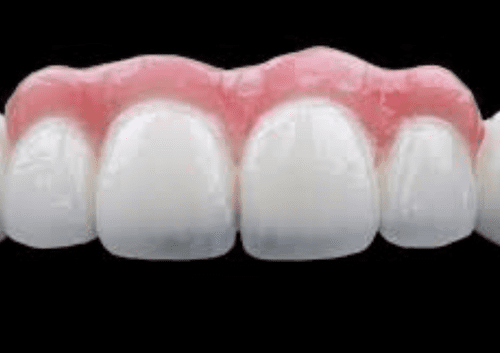
In order to prepare the front surface of your tooth for the veneer, your dentist will first grind away a little portion of the enamel. This helps the veneer adhere more securely to the tooth by roughening the surface of the enamel of the tooth. In addition to this, it creates room on the front of your tooth for the veneer, which will have a thickness of around 1 millimeter.
After that, at your best cosmetic dentist in Summerlin we will either digitally scan your teeth or develop an impression of them in order to have veneers produced. If your dentist has a machine in the office, then the procedure can be performed on the same day. Or, it will be shipped off to the laboratory, and you will need to return in 1-2 weeks when the veneers are ready to be glued into place.
In the field of cosmetic dentistry, veneers are the treatment of choice for addressing a variety of aesthetic concerns. For instance, teeth that are slightly misaligned or chipped. If your teeth have become significantly discolored and the conventional methods of tooth whitening are not producing the desired results, you may be able to restore your beautiful smile by having veneers placed over all of your front teeth. This will change the color of your teeth and give you back your radiant smile.
It is important to keep in mind that the application of veneers is not a reversible process because of the reduction that is required to create space for the thin layer of material. If one of your veneers is broken or has gotten discolored, the only method to repair it is to replace it with a new one.
You need to see your best cosmetic dentist near me!
CLICK HERE TO SCHEDULE YOUR APPOINTMENT !
And what exactly are crowns?
When comparing porcelain crowns with veneers, there is an important distinction that needs to be made. Dental crowns are regarded to be a restorative procedure whereas veneers are believed to be simply aesthetic dentistry procedures. They totally encapsulate the tooth, much like a small cap that goes over the top, rather than merely placing a thin coating on the front surface of the tooth.
In most cases, they are employed when the natural tooth structure has been compromised due to the presence of a significant cavity, infection, or fracture caused by a blow to the tooth. Crowns can be placed on any tooth, although they are most commonly seen on the back molars. Veneers, on the other hand, are only ever used on the front teeth.
Your natural tooth will need to be reduced in size and reshaped by the dentist before a crown can be placed on it. Additionally, the dentist will need to get the surface of the tooth ready for bonding. After the tooth structure has been prepared, your dentist will either take a digital scan of it or build a mold of it in order to create a crown that is a precise fit. To reiterate, this might take place in the comfort of one's own workplace or be sent out to a separate laboratory.
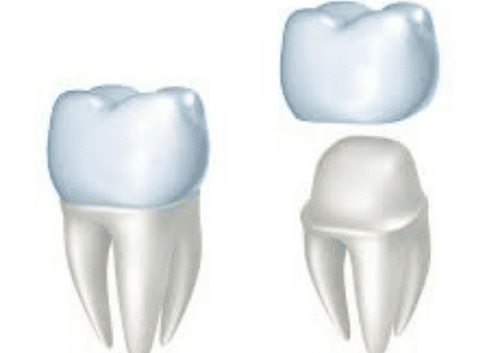
If you need to wait a few weeks for the permanent crown, your dentist will most likely place a temporary crown on your tooth in the meanwhile. While you wait for the permanent crown to be constructed, you will be able to eat and speak without any discomfort thanks to this solution.
CLICK HERE TO SCHEDULE YOUR APPOINTMENT !
Which one, veneers or crowns, is more long-lasting?
The longevity of any choice is contingent upon a number of variables, including the skill of your dentist and the degree to which you maintain good oral hygiene.
Another significant factor is the material that you decide to use. Whereas composite veneers may only last between 5 and 7 years, porcelain veneers have a lifespan of between 10 and 15 years.
CLICK HERE TO SCHEDULE YOUR APPOINTMENT !
Many different kinds of materials may be used to construct crowns. Since the beginning of dentistry, gold and alloys of gold have been utilized. This practice dates back thousands of years. Metal crowns are extremely durable and can continue to look beautiful for decades. The most obvious drawback is the fact that you are walking around with a piece of metal in your mouth. Molars are the teeth that often get these crowns put on them.
Dental veneers: Their types, pricing, procedures, and what you may expect from them
Crowns made of porcelain can be crafted to look just like a patient's actual teeth, but they are more brittle. These are often placed on the front teeth in order to improve their appearance.
Crowns made of porcelain that are bonded over a metal alloy combine the benefits of both materials, giving you the best of both worlds. Unfortunately, a thin strip of metal may frequently be seen around the gum line.
How well you care for your teeth will have a substantial impact on how long both of these dental procedures will continue to be effective. Always be sure to clean your teeth and floss on a daily basis, and steer clear of using your teeth as cutting implements, particularly if you have veneers placed on your front teeth. Additionally, do not forget to schedule an appointment with your dentist and to go see them at least twice year.
CLICK HERE TO SCHEDULE YOUR APPOINTMENT !

Which comes with a higher price tag: veneers or crowns?
The term "Hollywood smile" is commonly used to refer to veneered teeth. They are done for the express goal of improving a person's appearance and may be rather pricey, especially when numerous teeth need to be treated at the same time.
On the other hand, veneers are significantly thinner than crowns. Dental crowns cover the entire tooth, whereas veneers just cover the visible portion of the tooth in front of the gum line.
If you follow that line of reasoning, you would anticipate that the cost of veneers, in comparison to that of crowns, would be lower. In most cases, yes, they are. A porcelain veneer can cost anywhere from $925 to $2,500 per tooth, with the average price falling somewhere in the middle. Veneers produced from composite materials are available for far less money, ranging from $250 to $1,500 per square foot, but you shouldn't expect them to last as long.
The price of a porcelain crown can range anywhere from $1,000 to $3,500 for a single tooth. And that doesn't even take into account the price of the root canal or any of the other dental treatments that may need to be done before the crown can be placed.
Having said that, there is a significant distinction between the two that you should be aware of. The application of veneers is regarded as solely a cosmetic surgery. Therefore, dental insurance will, in most cases, not cover them.
However, crowns are typically utilized in situations where there is a dental issue with the tooth. They can be used to support and protect a tooth that has a significant cavity, or they can be used to keep together a tooth that has been fractured or damaged.
As a consequence of this, dental insurance will often pay for a portion of or the entire surgery.
CLICK HERE TO SCHEDULE YOUR APPOINTMENT !
What are the benefits and drawbacks of getting veneers versus crowns?
When there are no other dental issues present, veneers are an excellent choice for improving the appearance of one's teeth. It may only be necessary to perform a limited amount of reduction, depending on the kind of veneer, which will result in more of your natural tooth structure being preserved.
Unluckily, veneers will need to be changed when they begin to show signs of wear and tear. Because the procedure cannot be reversed, once you decide to go through with it, you will be required to take care of the results for the rest of your life. Because they do not cover the entirety of your tooth, they leave your natural tooth open to the risk of developing cavities. On the other hand, maintaining good oral hygiene can considerably reduce the risks associated with this.
Crowns made of porcelain are designed to mimic the look and feel of real teeth. In addition, the cap covers the whole of the tooth, so shielding it from the effects of dental decay. Crowns are generally covered by dental insurance when they are put for medical reasons because of their long-lasting nature.
Crowns made of metal are more durable than those made of porcelain, which looks more natural but is more brittle. The use of porcelain over metal can be a fantastic choice; nevertheless, you will need to live with a thin black line at the base of the porcelain. In order to prepare the location for a crown, you will need to have more of your natural tooth ground down. Crowned teeth are known to be more sensitive to extremes of temperature.
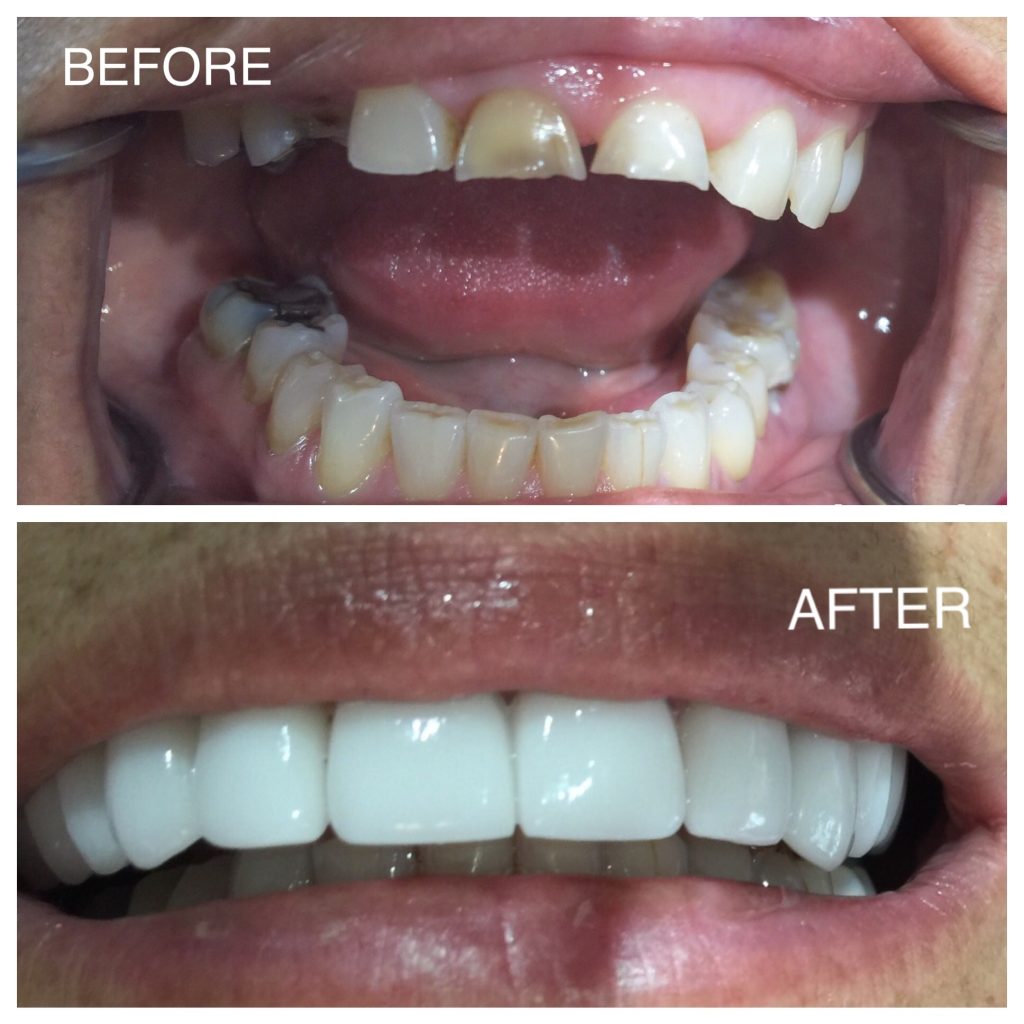
Concerning crowns and veneers, here are some questions to ask your Summerlin Dental dentist.
You should now have a clearer understanding of what both of these processes entail. Be careful to have a conversation with your Summerlin dentist about these concerns before making a decision about which treatment option is best for you.
CLICK HERE TO SCHEDULE YOUR APPOINTMENT !
How many more years should I anticipate my dental crown to last?
Your dentist will be able to provide you with a more accurate forecast of what to anticipate with the materials that they will select for the surgery.
After the procedure, do you have any recommendations for extra care to take?
Brushing and flossing your teeth at least once a day will always be required for optimum oral health. In addition to scheduling two appointments with your Summerlin Dental dentist in your area per year.
Are adjustments to the fit of the crowns included in the price?
Crowns have a tendency to shift slightly after placement, which might throw off your bite. You have the ability to modify them, but you should be aware of any additional costs involved.
What additional possibilities are there to choose from?
If you desire veneers but are concerned about the expense, you might want to consider getting Lumineers instead. This form of veneer is less thick and more affordable than others, but it does not usually conceal severe tooth damage or discoloration.
Dental bonding is a method that can be better suitable for fixing fractured teeth. During this procedure, your dentist will use a specific type of composite resin to rebuild the tooth and replace the area that was lost.
It is possible that extracting a tooth that is seriously damaged and having it replaced with a dental implant would be a better course of action than placing a crown over the tooth.
Are you prepared for an amazing smile?
Rejoice in the fact that contemporary dentistry provides us with so many wonderful alternatives, whichever treatment you decide to go with. Everyone has the potential to achieve the sparkling smile of their dreams if dental care is made more accessible and inexpensive.
CLICK HERE TO SCHEDULE YOUR APPOINTMENT !
GET TO KNOW YOUR BEST DENTIST IN SUMMERLIN
Dr. Marianne Cohan was voted The Best Dentist/ Dental Office and Best Cosmetic Dentist from The Las Vegas Review-Journal in 2020 and 2021. She received her Doctor of Dental Surgery (DDS) from the State University of New York at Buffalo in 1992.

With an emphasis on cosmetic dentistry, complete makeovers, and implant dentistry, Dr. Cohan is committed to continuing education and feels that we never stop learning. Dr. Cohan takes pride in using high-powered magnification to perform minimally invasive restorative dentistry. She uses all the latest technological advances including digital radiography, digital photography, computer simulations, and high-resolution pictures of your proposed treatment on 55-inch screens. She also utilizes CBCT (cone beam) and laser technology.
Dr. Cohan is always available to her patients and is available for any dental emergency.
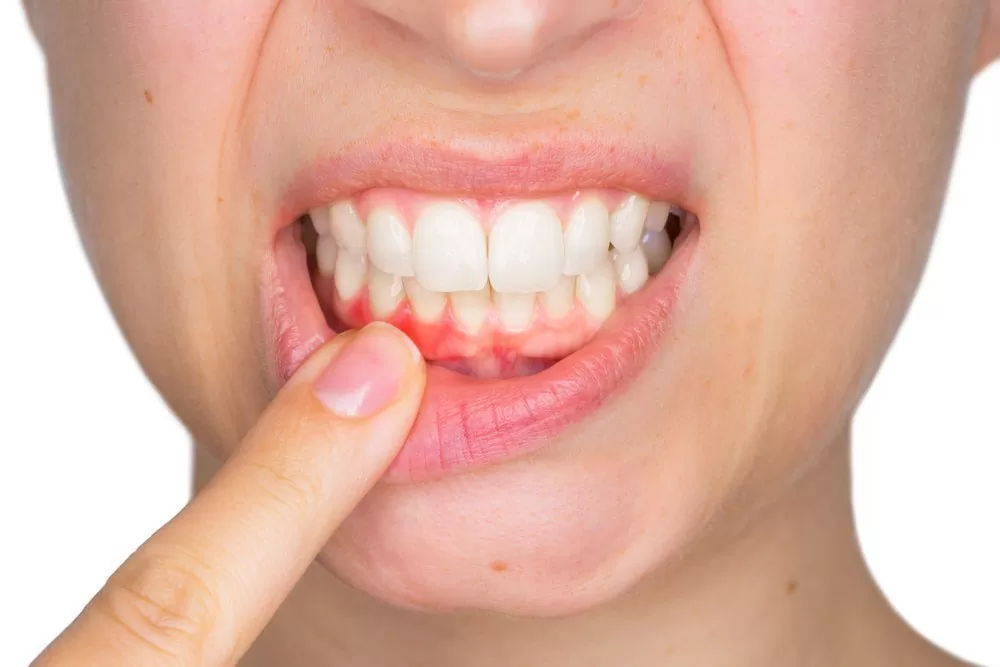
There is no way that you could have possibly been ready for an unexpected emergency of a dental abscess that could occur with regard to your mouth, and there is no way that you could have prepared for it. However, in the case of a dental abscess, there are typically some signs and symptoms that will alert you to the possibility that a problem is developing and will prompt you to seek medical attention. If you are able to recognize them, it will be much simpler for you to decide whether or not you need to visit our dentist in Summerlin and schedule an appointment.
A dental abscess is a potential complication that may arise in response to an infected tooth. You should be on the lookout for the following warning signs, which are listed below:
Visit your dentist as soon as possible if you experience any of the symptoms described above, as they will be able to advise you on the most effective course of treatment. We can at least help you find some relief from the problem in the here and now, even if you are unable to solve the problem in a way that will prevent it from happening again in the future.
It is possible that our dentist in Summerlin will suggest that you take an antibiotic if he or she finds that you do, in fact, have a dental abscess.
It is imperative that you take this medication exactly as prescribed, which includes finishing the entire bottle and adhering to the dosing instructions to the letter. You may start to feel some relief from the pain when the antibiotic finally begins to take effect, which should be around the third day. At this point, you may be tempted to stop taking your medication because you no longer feel the need to do so. It is in your best interest to finish the full course of medication that has been prescribed to you because stopping the treatment early will only speed up the rate at which the infection will return.
Despite this fact, antibiotics are ineffective when it comes to treating abscesses, which are common dental issues. It is imperative that this point be taken into consideration. This medication does not treat the underlying condition; all it does is mask the symptoms temporarily or make them less noticeable. Once a dental abscess has been identified in your mouth, it will not go away on its own after a certain amount of time has passed. You can eliminate the infection completely with the help of our dentist in Summerlin, who will provide you with guidance on the most effective treatment plan to follow.
When it comes to treating a dental abscess, there are two distinct options available to choose from. The condition of your tooth will determine whether you have the option of getting a root canal or having your tooth extracted. If your tooth is in poor health, you will not have either option. Each method has a set of advantages as well as some potential disadvantages.

If we find that there is still enough healthy tooth structure left and that the nerve anatomy of your tooth is ideal, you may be able to have root canal therapy performed to save your tooth. This would require us to find that there is still enough healthy tooth structure left and that the nerve anatomy of your tooth is ideal. If we determine that there is sufficient healthy tooth structure still present, then we will be able to accomplish this goal.
During this treatment, the dentist will drill a hole through the chewing surface of the tooth. This will allow the dentist to access the nerve tissue that is located within the tooth. After that, the infected nerve will be removed, and then the canals will be sealed off to prevent any additional infection from occurring.
The treatment of root canals is an extremely common procedure that, in the majority of cases, produces results that can be accurately anticipated. After this procedure has been completed, our dentist will typically move on to the subsequent step, which is the installation of a protective crown, also known as a permanent cover for your tooth. This step typically takes place immediately after the completion of the previous procedure.
It is a significant financial investment to get a root canal and a crown at the same time. However, if the procedure is successful, you will be able to keep your natural tooth for a good number of years into the future.
No one will look down on you or judge you in any way if you decide against getting a root canal done at all. It is possible that some patients will not even have the option of having their tooth saved because there is not enough of the healthy tooth left. This is due to the fact that there is not enough of the healthy tooth left.
Having a tooth extracted is one of the most cost-effective and least invasive ways to permanently cure an abscess, which can be done at a fraction of the cost of other treatment options. After analyzing the x-ray of your tooth, we will be able to provide you with an estimate of the level of difficulty that is associated with the extraction of your tooth. Because the roots of the front teeth and the majority of the premolars are only one or two millimeters in diameter, their removal does not present a significant challenge.
Molars are notoriously difficult to clean because they have three to four roots, each of which can be extremely long and twisted. As a result, cleaning a molar is a notoriously difficult task. It is possible that you will end up needing to schedule an appointment with an oral surgeon who specializes in the removal of teeth in order to have your tooth extracted.
You should give some thought to the potential negative consequences of living with a gap in your smile caused by the absence of a tooth before making a final decision about whether or not to have your abscessed tooth extracted before making a final decision about whether or not to have your abscessed tooth extracted.
For instance, once you have a space because a tooth has been extracted, the teeth on either side of the gap will begin to angle toward it in an effort to fill it in. This is because the teeth on either side of the gap are trying to fill the space left behind by the extracted tooth. This behavior is a perfectly normal reaction to the missing tooth. The way your bite feels may be significantly altered, and not in a positive way, as a result of this.
It is possible for the opposing tooth on the opposing arch to become super-erupted, which means that it protrudes out of its socket. This can happen if the opposing tooth on the opposing arch is not properly cared for. This takes place because the patient is searching for something they can touch.
In addition, if you are missing teeth, this can cause the skin on your face to sag, which can lead to you looking older and having more wrinkles. This can happen if you haven't been taking care of your teeth.
Time is of the essence if you want to have any chance of saving the abscessed tooth you currently have. Call Dr. Cohan, our dentist in Summerlin, as soon as you notice the first symptoms of this condition so that he can determine whether or not you do, in fact, have an infection and what kind of treatment you'll need to get it fixed.
Call the office of our Summerlin dentist right away if you feel you require an in-depth examination to check your teeth for any abnormalities. We are excited to finally put a face to your name.
CLICK HERE TO SCHEDULE YOUR APPOINTMENT!
GET TO KNOW YOUR BEST DENTIST IN SUMMERLIN
Dr. Marianne Cohan was voted The Best Dentist/ Dental Office and Best Cosmetic Dentist from The Las Vegas Review-Journal in 2020 and 2021. She received her Doctor of Dental Surgery (DDS) from the State University of New York at Buffalo in 1992.

With an emphasis on cosmetic dentistry, complete makeovers, and implant dentistry, Dr. Cohan is committed to continuing education and feels that we never stop learning. Dr. Cohan takes pride in using high-powered magnification to perform minimally invasive restorative dentistry. She uses all the latest technological advances including digital radiography, digital photography, computer simulations, and high-resolution pictures of your proposed treatment on 55-inch screens. She also utilizes CBCT (cone beam) and laser technology.
Dr. Cohan is always available to her patients and is available for any dental emergency.

If you are going to be receiving a dental implant at Summerlin Dental Solutions in the near future, or if you already have one, you may be wondering what kinds of foods you are allowed to eat while you are healing and recovering from the surgery. In this blog post, we will explain our nutritional suggestions in addition to a few more healing and recovery advice gleaned from Dr. Marianne Cohan in Las Vegas, Nevada.
After having dental implant surgery, you should restrict your diet to foods that are soft and don't need a lot of chewing for the first few days. After your treatment, you shouldn't consume anything that isn't very soft or liquid for the first day afterward. Because of the numbing chemicals that were used during your surgery, it is important that you do not bite your tongue or chew on your mouth during this time.
We advise that you consume things like smoothies, yogurt, ice cream, pudding, applesauce, mashed potatoes, creamy soups and broth, and other foods of a similar soft and liquid consistency immediately following surgery.
Moving on to meals that require a little bit more chewing, such as macaroni and cheese, pancakes, rice, soft bread, cooked vegetables, eggs, and spaghetti, can be done over the course of the subsequent week or two.
After one to two weeks, you should be able to slowly start reintroducing items that are more difficult to chew, such as meat and raw vegetables with a high fiber content. This, however, is contingent upon how rapidly you recover. In addition, you should refrain from chewing on the side of your mouth that contains the implant for a minimum of two weeks.
Additional Guidelines for Recovery Following the Insertion of Implants

Do you want to ensure that you recuperate quickly after having an implant placed? It takes different amounts of time for different people to heal, but the following are some general pointers that should make your recovery go more smoothly.
If you want the healing process for your dental implant to go smoothly, make sure to follow Dr. Cohan's instructions.
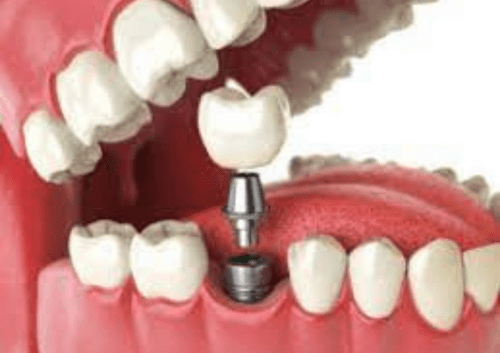
Dr. Cohan will provide you a detailed set of aftercare instructions to adhere to in the event that you obtain a dental implant at Summerlin Dental Solutions. These instructions are meant to be used while you are recovering from the procedure. If you adhere to their instructions to the letter, you may expect the process to go off without a hitch.
Are you interested in getting dental implants in Summerlin or Las Vegas?
Make an appointment with Dr. Cohan at Summerlin Dental Solutions by calling (702)341-9160, visiting our online booking system right now, or scheduling an appointment online right now to find out if implant therapy is the best option for you.
CLICK HERE TO SCHEDULE YOUR APPOINTMENT!
GET TO KNOW YOUR BEST DENTIST IN SUMMERLIN
Dr. Marianne Cohan was voted The Best Dentist/ Dental Office and Best Cosmetic Dentist from The Las Vegas Review-Journal in 2020 and 2021. She received her Doctor of Dental Surgery (DDS) from the State University of New York at Buffalo in 1992.

With an emphasis on cosmetic dentistry, complete makeovers, and implant dentistry, Dr. Cohan is committed to continuing education and feels that we never stop learning. Dr. Cohan takes pride in using high-powered magnification to perform minimally invasive restorative dentistry. She uses all the latest technological advances including digital radiography, digital photography, computer simulations, and high-resolution pictures of your proposed treatment on 55-inch screens. She also utilizes CBCT (cone beam) and laser technology.
Dr. Cohan is always available to her patients and is available for any dental emergency.

It's natural to be concerned or anxious about getting cavities repaired in your tooth.
It is possible for fillings to cause discomfort in some patients. However, the majority of them only produce minimal to nonexistent pain during the process.
Take a few deep breaths and keep reading if you are avoiding going to the dentist because you are terrified of the pain that you will experience there. We will describe the process of cavity filling and let you know what to anticipate in terms of the level of pain or discomfort you may experience.
What factors influence how painful a filling procedure will be?
If you have a cavity in your tooth, your dentist will almost certainly advise you to get it filled as soon as humanly possible.
In order to alleviate the discomfort that cavities can cause and to remove the risk of a more serious infection, fillings are often performed. If the cavity is not treated, it can spread to the pulp of the tooth, which is extremely painful.
Cavities that are left untreated can result in the need for more invasive procedures, such as root canal therapy or tooth extraction.
When you get a cavity filled, your dentist will remove the decay that is already present in the tooth and then restore the tooth to its normal shape. This improves the health of your mouth and makes it feel more comfortable.
Your dentist will talk to you about what to anticipate throughout the operation, as well as the extent to which it will go. This is dependent on a number of different aspects. Here are some of the potential causes of discomfort during a filling procedure:
Decay of teeth is an ongoing process. It manifests as initially as white patches on the tooth enamel, which are brought on by minute amounts of mineral loss. Through maintaining good oral hygiene or receiving fluoride treatments, you can help put a halt to tooth decay.
On the other hand, if the enamel of the tooth continues to wear away, you can develop a cavity that needs to be filled.
Cavities that are found to be relatively little and treated at an early stage are the most straightforward and expedient to treat. If your cavity isn't particularly deep, you may not feel very much discomfort at all.
It is important to bear in mind that topical numbing gel does not numb the tooth tissue; rather, it numbs only the gums themselves so that the needle does not cause any pain or discomfort while the injection is being administered.
Some individuals suffer from a fear of needles, which causes them to dread getting the injection more than any other aspect of the process. However, other individuals only dislike the numb feeling that continues to exist in the face and tongue after a cavity has been filled.
A local application of numbing gel may be all that is necessary to fully remove any discomfort felt in the gums in certain cases. In any other case, your dentist will be able to halt the drilling and give you an injection of anesthetic if you start to feel any pain during the procedure.
Cavities that are deeper necessitate the removal of further deterioration and require more time to fill. In addition, deep cavities are located closer to the tooth's nerve ends than shallower cavities. During the process, these particular kinds of cavities have the potential to produce a greater amount of discomfort.
If you don't have a particularly high threshold for discomfort, your dentist may probably suggest getting an injection of anesthesia before working on deep cavities.
Where the cavity is located on the tooth
There are three different kinds of cavities, namely:
When detected in their early stages, the vast majority of root cavities can be treated with relative ease. Small root cavities can typically be simply filled with local anesthesia.
Because the cementum at the base of the tooth is a softer substance, it can decay considerably more rapidly than the rest of the tooth. Roots that are exposed as a result of receding gums are also susceptible to decay due to the fact that roots are not as durable as enamel.
Periodontal disease, often known as gum disease, is the cause of these types of cavities almost all of the time. The gums pull away from the teeth as a result of periodontal disease, exposing the sensitive root surface of the tooth.
The total amount of cavities
If you have multiple cavities in the same region of your mouth, your dentist may suggest treating all of them at the same time to save you time.
Because of this, the treatment could take significantly longer, which could result in increased discomfort. During the operation, you will be required to keep your mouth open for an extended amount of time, which may result in discomfort in the jaw or nausea.
It is possible that the extended process will require you to get extra anesthetic.
What kinds of numbing agents are there to choose from?
It is the purpose of numbing medications to eliminate or significantly lessen feelings of pain and discomfort.
Your dentist will provide a local anesthetic (such lidocaine, benzocaine, or epinephrine) in order to numb your tooth, gum, and jaw before performing the procedure. Because the nerves in your mouth won't be able to send any pain signals to your brain when these agents are present, you won't feel any discomfort when the dentist starts to drill into your teeth. There may be a tiny degree of discomfort that is described as a light sting, but this is simply an indication that the anesthetic is doing its job and the pain should subside shortly.
It's possible that your dentist has a personal preference for a particular brand. Talk to your dentist about the anesthetic they intend to use and the reasons they believe it will be most beneficial for you.
The following are some of the common numbing drugs that are used:
If you know or suspect that you have an allergy to any of these drugs or to any other kind dental anesthesia, be careful to let your dentist know.
If you're anxious, you might also find relief from nitrous oxide (commonly known as laughing gas), which is delivered to the patient in the form of a breathing mask that covers the nose. Nitrous oxide can be used to lessen the sensation of pain, but its primary purpose is to calm fear and anxiety.
Is there pain after a filling?
After the operation, it is possible that your tooth can feel unpleasant or sensitive for up to two days.
It is natural to feel some discomfort, and it should only last for a short time. If you are experiencing substantial discomfort or observe any swelling or pus, you should contact your dentist as soon as possible. This could be an indication that you have an infection or that you require extra treatment, such as a root canal.
Any sensitivity or mild pain may become more severe if you consume something that is either extremely hot or extremely cold. It's possible that breathing in chilly air will also make your teeth tingle or feel painful.
It's also possible that, for the next several days, your gums will feel raw or sore, particularly when you clean or floss your teeth.
Why Take Such a Risk? The use of fillings is preferable to the alternative.
If you are still nervous about getting a filling, it may assist to understand why one would get a filling in the first place if you want to reduce your anxiety about the procedure. Cavities are the reason why we need to have fillings. Cavities, also known as decaying areas in teeth, can be recognized on a tooth's surface as the appearance of very small holes. Acids released by harmful bacteria known as plaque, which adheres to your teeth and feeds on food debris that is left in your mouth after meals, are the root cause of these problems.
If cavities are not filled and allowed to progress unchecked, the decay can get so severe that it reaches the nerve within the bone, causing excruciating agony. This can happen if cavities are not filled and allowed to progress unchecked. If the cavity continues to spread and reaches the gum, it is possible that this may also cause a great deal of discomfort, and it may even lead to an infection. Ultimately, the tooth will be lost.
When cavities have progressed to this stage, the essential treatments consist of more intensive procedures such as root canals and extractions. The discomfort associated with these treatments is significantly worse than that of getting a filling. As a consequence of this, getting a filling is invariably the best alternative that comes with the fewest adverse consequences.
It is not necessary for patients to feel anxious when receiving treatment for oral health issues or having cavities filled. At Summerlin Dental Solutions, our highly trained and empathetic dental specialists are able to attend to all of your dental requirements and ensure that you leave our office with a smile. Make an appointment with one of our in-house specialists here at Summerlin Dental Solutions in Las Vegas to get a cavity filled if you believe you may have one. You may get an appointment for the same day by calling the number (702)341-9160 today.
CLICK HERE TO SCHEDULE YOUR APPOINTMENT!
GET TO KNOW YOUR BEST DENTIST IN SUMMERLIN
Dr. Marianne Cohan was voted The Best Dentist/ Dental Office and Best Cosmetic Dentist from The Las Vegas Review-Journal in 2020 and 2021. She received her Doctor of Dental Surgery (DDS) from the State University of New York at Buffalo in 1992.

With an emphasis on cosmetic dentistry, complete makeovers, and implant dentistry, Dr. Cohan is committed to continuing education and feels that we never stop learning. Dr. Cohan takes pride in using high-powered magnification to perform minimally invasive restorative dentistry. She uses all the latest technological advances including digital radiography, digital photography, computer simulations, and high-resolution pictures of your proposed treatment on 55-inch screens. She also utilizes CBCT (cone beam) and laser technology.
Dr. Cohan is always available to her patients and is available for any dental emergency.

Receiving Dental X-Rays While You Pregnant
There are a lot of things to think about when you are expecting a child for the first time, and this is especially true during the time that you are pregnant. In the end, you are suddenly responsible for not only your own growth but also the growth and well-being of another small being in addition to yourself. This means that your responsibilities expand significantly.
It is safe to get dental x-rays taken while pregnant, even in the early stages of pregnancy. This information should put your mind at ease regarding your oral health and the wellbeing of your unborn child. There is consensus amongst experts on this point, which is another reason why you shouldn't be concerned about it.
The Food and Drug Administration (FDA), the American College of Obstetricians and Gynecologists (ACOG), and the American College of Radiology (ACR) have all come to the conclusion that it is perfectly safe to receive dental x-rays during pregnancy.
They worked together on a publication in 2017, in which they stated that x-rays that are taken of the teeth and mouth do not directly target the reproductive organs, and as a result, do not expose those organs to radiation. Therefore, receiving an X-ray of your teeth while you are pregnant is perfectly safe provided that the procedure is carried out with the appropriate shields to protect those organs from the radiation. Even x-rays of the teeth that are taken during the first trimester "do not involve any risk to the unborn child."
Having said that, if you're like a lot of other new parents, you still want all of the information before you make a decision, and we completely understand that you feel that way. This is what the scientific community has to say about getting dental X-rays while you are nursing your baby or while you are pregnant, in case you were wondering what they think about it.
What exactly does it mean when teeth are x-rayed?
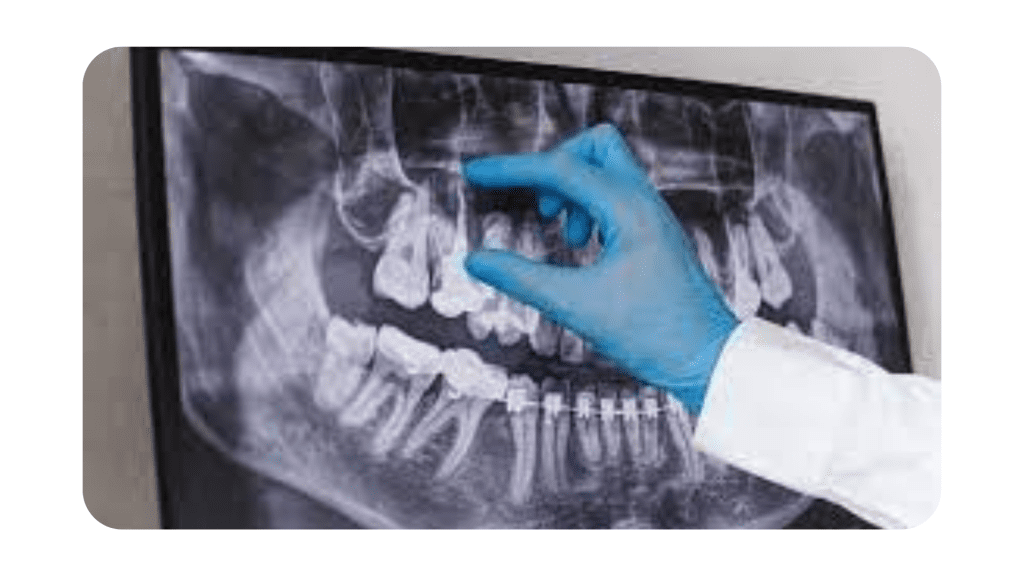
In order to help you make a decision about receiving dental X-rays while you are pregnant that is completely informed, let's take a moment to first understand what diagnostic X-rays are and how they function. This will assist you in making an informed decision about whether or not you should receive dental X-rays while you are pregnant. You will then be able to make a decision that is well informed as a result of this.
X-rays are a type of electromagnetic radiation that can pass through the majority of different materials, including the human body. When X-rays pass through any part of your body and arrive at an X-ray detector on the other side of your body, an image will appear showing the "shadows" formed by the objects inside your body. This occurs when the X-rays travel through your body from one side to the other.
When bones and teeth are viewed through a radiograph, they produce a high contrast and appear white on the X-ray film or digital image because they are so dense. This is because they are being viewed by a radiograph. Any place where there is a hole, such as where there are fractures in your bone or cavities in your teeth, will show up as various shades of gray. X-rays can sometimes be helpful in identifying dental issues such as tooth decay and gum disease, both of which could result in the need for additional treatment if not addressed.
Concerns About the Effects of Dental X-Rays on the Unborn Child in Women Who Are Pregnant
Even dental x-rays taken very early on in a pregnancy have not been shown to have any negative effects on the mother or the developing baby. This is the conclusion that has been reached after extensive research.
X-rays are a source of concern because of the radiation that they may expose an unborn child to, which may result in the child being harmed. Even though it is true that being exposed to a very high level of radiation poses risks, such as having an abortion or having a child born with a defect, these high levels of radiation exposure only occur during intensive treatments, such as radiation therapy for cancer. These high levels of radiation exposure pose risks even though it is true that being exposed to a very high level of radiation poses risks.
What Opinions the Scientific Community Has Regarding Radiation Exposure During Pregnancy and Its Possible Effects
They have a significant amount of knowledge regarding the effects of radiation exposure during pregnancy as a result of their study of women and children whose lives were impacted by the atomic bombs that were dropped on Hiroshima and Nagasaki. ACOG scientists studied women and children whose lives were impacted by the atomic bombs. The researchers arrived at the conclusion that in order to cause any kind of damage to the developing baby, a very high dose of X-ray radiation would have to be given to the pregnant woman while it was being administered. X-rays used in dentistry only produce a small portion of this total amount of radiation.
According to a report that was written by board-certified radiologist Adam Evearitt and published in the Journal of the Colorado Dental Association, the average radiation dose that you receive from having two dental X-ray films taken is 0.002, and this information can be found in the report. In addition, the American College of Obstetricians and Gynecologists (ACOG) reported that "fetal risk of abnormalities, growth restriction, or [miscarriage] have not been reported with radiation exposure of less than 50." This was stated in their report.
Simply put, in order to cause any kind of harm to your unborn child, you would need 25,000 times the amount of radiation that is emitted by dental X-rays, and in most cases even more than that. This is because dental X-rays only emit a very small amount of radiation.
In addition, the minuscule dose of radiation that you receive from a dental X-ray while you are pregnant is extremely concentrated and directed at your mouth, which means that the fetus will not be exposed to the x-ray in any way. If you have any questions about whether or not you should get an X-ray while you are pregnant, talk to your doctor.
"Dental radiation has always been considered safer than other forms of medical radiation because it is directed to areas of the body that just aren't radiosensitive," Evearitt explains. "This is because dental radiation is directed to areas of the body that just aren't radiosensitive." Because dental radiation is directed to areas of the body that simply aren't radiosensitive, this is the result.
If I were to get X-rays of my teeth while I was still nursing, would that be safe?

Even after giving birth, many first-time mothers continue to worry that they may be endangering their children by exposing them to potentially harmful chemicals through their breast milk. This is a concern that is shared by first-time mothers who are breastfeeding their children. It is perfectly safe for nursing mothers and their children to be exposed to x-rays, just as it is perfectly safe to get dental x-rays while pregnant. X-rays, on the other hand, are completely risk-free.
In an article that she penned for Baby Center, pediatrician Natasha Burgert reassured nursing mothers that it is safe for them to undergo chest X-rays and dental X-rays while breastfeeding their children. The article was written for the purpose of providing information to nursing mothers. The radiation that is emitted during an X-ray does not remain in breast milk after the time that the scan was performed, so your child will not be put in danger as a result of the procedure. This information was provided by Dr. Burgert.
Talk to your dentist about getting X-rays of your teeth while you're expecting, and make sure to let them know about your pregnancy.
Never fail to inform your dentist if you are pregnant, breastfeeding, or have any reason to suspect that you might be pregnant, whether or not you actually know for sure that you are pregnant. If you are at all concerned about this topic or are already a patient at the practice, your dentist will likely suggest that you wear a lead apron during your examinations in order to shield any scattered radiation from your reproductive organs.
In point of fact, this is correct regardless of whether or not you are pregnant, and it is also correct regardless of whether you are a man or a woman. Both genders should take this into consideration. The International Atomic Energy Agency reports that the use of lead aprons reduces the amount of x-ray radiation exposure by more than ninetieth of the original amount.
In addition, the American Dental Association recommends that children, pregnant women, and women of childbearing age wear a lead-lined thyroid collar whenever they have dental X-rays taken in order to increase the level of protection that they receive. This is done in order to decrease the likelihood that these individuals will develop cancer.
During pregnancy, it is essential to take proper care of both your teeth and gums in order to keep your overall health in good standing. It is important that you discuss getting dental x-rays while pregnant with your dentist, and that you schedule this procedure as part of your regular preventive visit. Additionally, it is important that you schedule this procedure as part of your regular preventive visit.
CLICK HERE TO SCHEDULE YOUR APPOINTMENT!
GET TO KNOW YOUR BEST DENTIST IN SUMMERLIN
Dr. Marianne Cohan was voted The Best Dentist/ Dental Office and Best Cosmetic Dentist from The Las Vegas Review-Journal in 2020 and 2021. She received her Doctor of Dental Surgery (DDS) from the State University of New York at Buffalo in 1992.

With an emphasis on cosmetic dentistry, complete makeovers, and implant dentistry, Dr. Cohan is committed to continuing education and feels that we never stop learning. Dr. Cohan takes pride in using high-powered magnification to perform minimally invasive restorative dentistry. She uses all the latest technological advances including digital radiography, digital photography, computer simulations, and high-resolution pictures of your proposed treatment on 55-inch screens. She also utilizes CBCT (cone beam) and laser technology.
Dr. Cohan is always available to her patients and is available for any dental emergency.
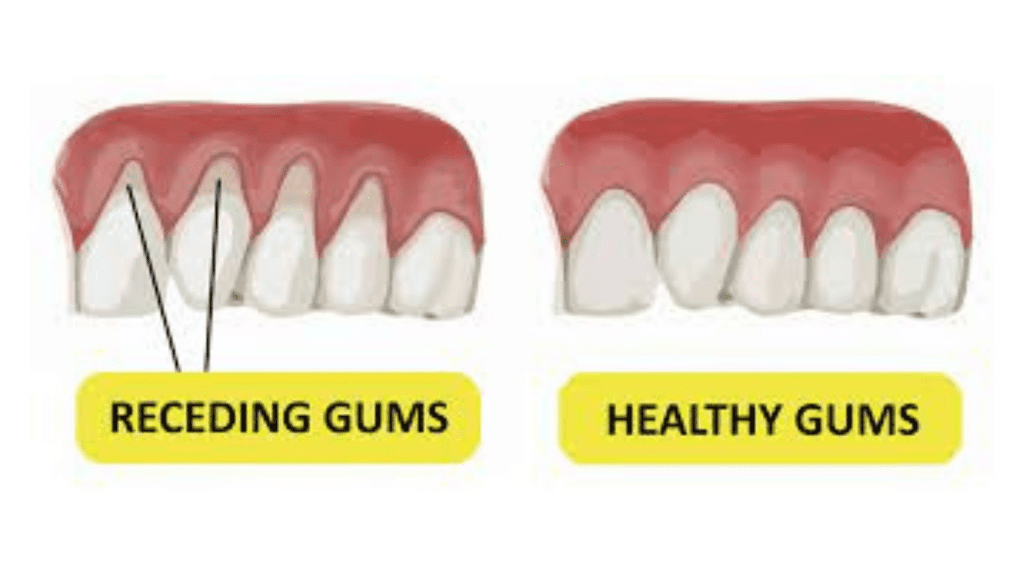
Causes, symptoms, and treatment options for receding gums.
To begin, a condition known as receding gums is extremely frequent. There are several causes of receding gums, including improper oral hygiene, hereditary factors, and oftentimes simply plain old age. Because so few people are aware of how to treat them, many people choose to ignore their symptoms rather than seek appropriate medical attention. And sadly, as time passes, this tooth condition will grow much more severe, which may have an effect on your oral health.
A condition known as receding gums, also known as gingival recession, occurs when the gum tissue that normally surrounds and attaches to your teeth begins to recede or wear away. When this takes place, the roots of your teeth may become visible, gaps may begin to appear, and bacteria and plaque may begin to accumulate on your teeth. Worse yet, if you don't address it, the bone structure of your teeth and the tissue around them grow more vulnerable to injury. If the condition is serious enough, you could even end up losing a tooth.
What are the signs and symptoms of gum recession?
It takes the majority of people a significant amount of time to recognize the symptoms of gum disease and gum recession. Frequently, they are unaware of the problem until their teeth become excessively sensitive to sweet foods, acidic meals, and liquids of varying temperatures. The more your gums recede or shrink, the more obvious the condition becomes, and the more severe your symptoms are likely to become.
It is crucial to seek treatment as soon as you discover the first hint that something is wrong with your dental health in order to keep your dental health under control. If you are familiar with the symptoms of gum recession, you may be able to detect the problem at an earlier stage. The following is a list of typical warning indicators that you should keep an eye out for:
Roots that are exposed; long teeth; gums that are red or inflamed (gingivitis); painful gums; soreness; tooth sensitivity; bad breath; pus between the gums and teeth; bleeding; exposed roots.
If you keep a close eye on your teeth on a regular basis, you should be able to spot any changes that occur. When cleaning your teeth or eating tough meals is generally the time when bleeding and pain are most visible.
Why do gums pull away from the teeth?
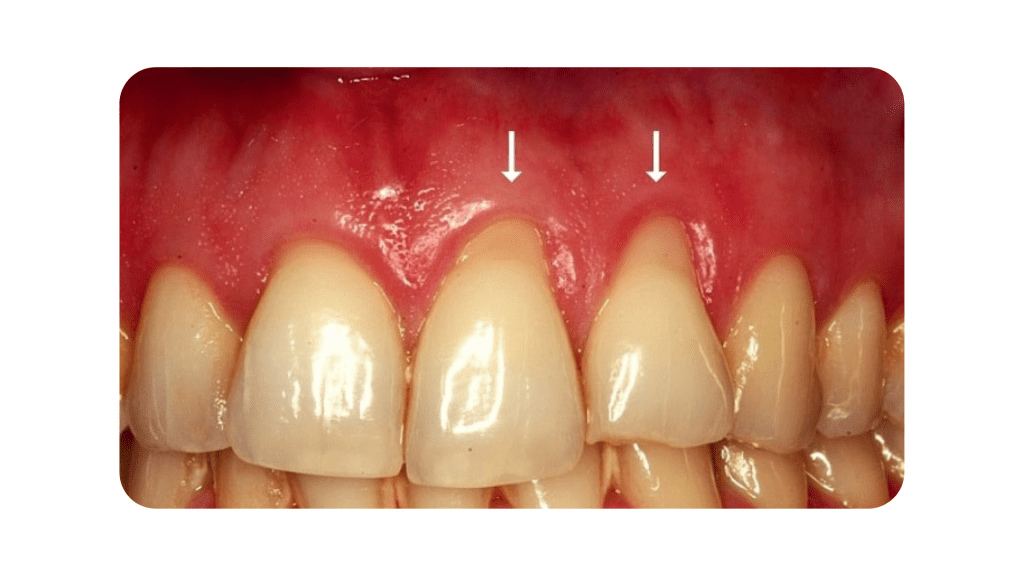
There are a variety of potential causes of gum recession. You will be able to determine your level of danger if you are aware of them. The following are some of the most frequently seen causes:
There is a strong genetic component to gum recession. Despite the best efforts of 30% of the world's population, people still have a genetic predisposition to develop gum disease, regardless of how well they care for their teeth. In circumstances such as these, the gums and tissues are frequently susceptible to inflammation; this is the primary factor contributing to the recession of the gums. Find a dentist to discuss your dental health with if you think you could be at risk for this issue and want more information about it.
Periodontal disease
According to research, periodontal diseases, often known as gum disorders, impact anywhere from 20 percent to 50 percent of the population worldwide. This condition is an infection of the gums that gradually eats away at the gum tissues. If treatment is not sought, it can have an effect on the bone that is responsible for supporting the teeth and cause the roots to lose their hold. This is one of the key reasons why the gum line is pulling away from the teeth.
An aggressive brushing
We always recommend that you floss and brush your teeth, but if you do either of those things too vigorously, it can be harmful to your gum health and lead to receding gums. When you brush your teeth too roughly, you run the danger of causing damage to the enamel, which is the outermost covering of the teeth. The enamel will begin to wear away over time, which may also result in a receding gum line if left untreated.
Poor oral hygiene
Plaque and tartar are likely to continually form on your teeth if you do not properly care for them by brushing and flossing them on a routine basis and using an antibacterial mouthwash. In addition to this, the mucus, food particles, and germs that are stuck in your tonsils make it more likely that you may develop tonsil stones. These stones have the potential to cause significant discomfort as well as edema.
Shifts in hormone levels
The teeth may be more prone to gum recession as a result of changes in hormone levels, such as those that occur during pregnancy, menopause, or puberty.
Getting diagnosed
A diagnosis of receding gums may only be made by a dentist. You will need to see a doctor to undergo a full physical checkup, which can help identify any underlying dental problems. In addition to this, the dentist might use a probe, which is essentially a little ruler, to determine the depth of each gum pocket. It is generally agreed upon by specialists that healthy gums should have a pocket size of between 1 and 3 millimeters. A space that is any larger than that is unquestionably an indication of gum recession.
How are gums that have receded been treated?
There are many different treatment options available for treating receding gums, and the one that is best for you will be determined by the status of your oral health. In many cases, gum recession can be easily managed by just maintaining regular dental cleanings. On other occasions, you might require surgical intervention.
The following is a list of the common treatments that you can anticipate receiving:
Your dentist will clean the regions that are impacted by gum recession if it is only minor and you are experiencing it. Plaque and tartar will be removed in a methodical manner throughout this treatment in order to facilitate gum tissue regeneration. In any case, it is recommended that you visit the dentist every six months. This strategy for preventing future problems will help to reduce the likelihood of their occurrence.
A deep cleaning, which is also known as root planing and scaling, is a procedure that does not involve surgery. At this point, your dentist will provide a local anesthetic before scraping away all of the plaque and tartar that has accumulated on your teeth. You will be able to rid your gums of that troublesome bacteria and get everything back on track with the help of this process.
Antibiotics may be prescribed to you following the surgery in the event that there are any bacteria that have not been eradicated despite the treatment. Additional medicine, such as antiseptic chips, enzyme suppressants, or topical antibiotic gels, may be prescribed by a periodontist for patients undergoing a more intensive course of treatment.
However, if the gum recession is severe (characterized by exceedingly deep pockets and bone loss), surgical correction will be necessary. That indicates that your bones or gum tissues require resuscitation, and the only way that may be accomplished is through a surgical surgery.
The goal of gum surgery is to restore any damaged areas that may have contributed to the receding gum line. This can be accomplished by grafting healthy gum tissue onto the exposed bone. By performing surgery, dentists are able to access parts of the bone that are typically difficult to get and remove bacteria that could be damaging to the patient. You will have a lower chance of having severe dental problems as a result of this. Also, keep in mind that the longer you wait to get treatment, the more severe the recession of your gums will become. Therefore, as soon as you become aware that your gums are receding, schedule an appointment with your dentist.
How to help prevent gums from pulling away from the teeth
In many cases, receding gums can be avoided entirely or at least significantly slowed down. By maintaining good dental hygiene, quitting smoking, using a toothbrush with gentle strokes and soft bristles, and utilizing a toothbrush that fits these criteria, you can lessen the likelihood of gum recession occurring.
Another important step is to visit Summerlin Dental Solutions on a consistent basis, which is especially important if your teeth are prone to the accumulation of plaque and tartar.
Is there a natural remedy for gum recession?
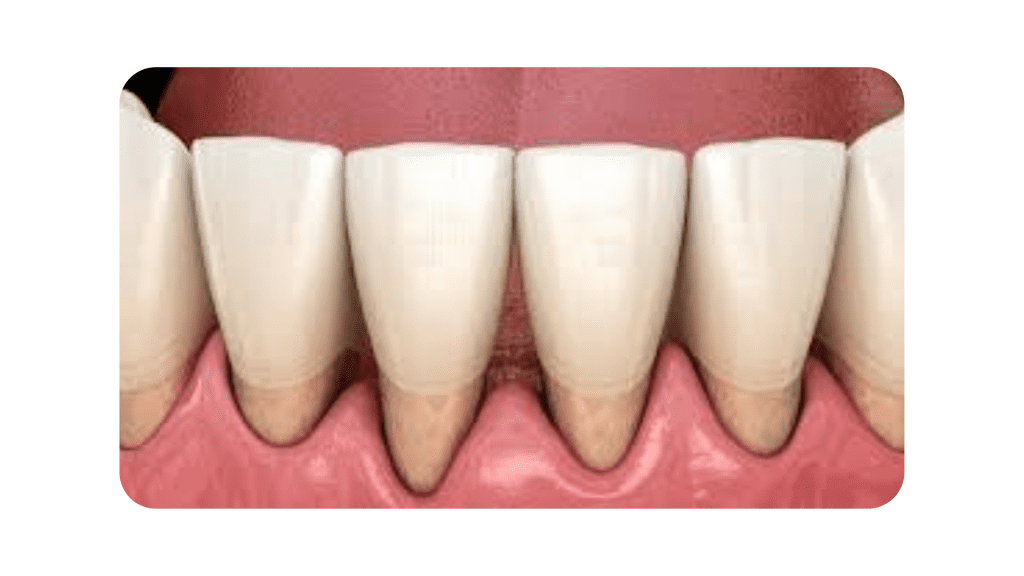
Consider the foods you eat and any other potentially unhealthy routines or habits you may have. According to the available data, smoking is one of the most important factors that contributes to the development of periodontal disease and gum recession. It leads to considerable tooth loss, an increase in the number of pocket depths, and it has an effect on the bones.
According to the findings of several pieces of study, nutrition also plays an important part in maintaining healthy gums. The production of healthy bone, an increase in periodontal regeneration, and the maintenance of your general oral health are all supported by a diet that is nutritionally sound.
But let's talk about carbs; if you consume an excessive amount of them, some of the food that you eat will become lodged in your oral cavity. If the plaque is allowed to remain in place for a few days, it will mineralize, resulting in calculus being formed. Plaque formation is also exacerbated by a diet that is consistently high in sugar and starchy carbohydrates.
Your diet has a significant impact on how prone you are to gum disease, receding gums, and cavities in your teeth. If you follow a healthy diet, you will ensure that your body receives an adequate supply of vitamins and minerals, both of which are important for maintaining healthy gums.
Therefore, if you want to learn how to stop gum recession naturally, you should strive to keep a balanced diet that is high in vegetables. And stop smoking.
What is the most effective toothpaste for gum recession, and where can I buy it?
The most effective toothpastes for gum recession are those that are formulated specifically for sensitive teeth and the prevention of cavities. You should look for an anti-cavity toothpaste that may reduce inflammation, prevent bleeding gums, reinforce the enamel, and thoroughly clean the pockets in your teeth. There are products available that can be helpful, such as Parodontax Complete Protection and Colgate Sensitive.
Can gums that have receded grow back?
No, gums that have receded cannot grow back. This condition cannot be reversed. Nevertheless, by receiving treatment, you will be able to arrest the worsening of the condition. In this way, you can prevent yourself from developing more severe dental difficulties.
Where can I locate a dentist who specializes in treating gum recession in Summerlin?
Make an appointment at Summerlin Dental Solutions that is known for their excellence in your area. It is important to keep in mind that the sooner you begin treatment, the better the results will be.
Regular dental checkups will do a lot of good for your teeth, especially if you are struggling with minor gum recession; therefore, you should invest in dental cleaning as frequently as possible. You won't have the pearly whites and pink gums you've always dreamed of overnight, but you will get there in the end.
CLICK HERE TO SCHEDULE YOUR APPOINTMENT!
GET TO KNOW YOUR BEST DENTIST IN SUMMERLIN
Dr. Marianne Cohan was voted The Best Dentist/ Dental Office and Best Cosmetic Dentist from The Las Vegas Review-Journal in 2020 and 2021. She received her Doctor of Dental Surgery (DDS) from the State University of New York at Buffalo in 1992.

With an emphasis on cosmetic dentistry, complete makeovers, and implant dentistry, Dr. Cohan is committed to continuing education and feels that we never stop learning. Dr. Cohan takes pride in using high-powered magnification to perform minimally invasive restorative dentistry. She uses all the latest technological advances including digital radiography, digital photography, computer simulations, and high-resolution pictures of your proposed treatment on 55-inch screens. She also utilizes CBCT (cone beam) and laser technology.
Dr. Cohan is always available to her patients and is available for any dental emergency.
Waterpik or Floss? To keep one's mouth in good condition, flossing should be done on a daily basis, at the very least once. Did you know that the water flosser, which is more generally known as a waterpik, has been increasingly popular in recent times? Which of these two practices—using a waterpik or flossing—is more effective? Discover the answers to these questions, as well as other information on how to preserve your dental health, by reading this article.
Which method of flossing, using a Waterpik or the old-fashioned way, is better for the health of your mouth? In addition to brushing your teeth twice daily, flossing should be a part of your regular regimen for maintaining good oral hygiene. Because it enables you to remove food particles, plaque, and bacteria that are trapped in hard-to-reach locations in your mouth, getting in between your teeth is an essential step in the process of ensuring that you have good dental health. This is because it allows you to access areas of your mouth that are otherwise difficult to access.
Flossing, which is commonly done with a fine thread made of nylon or Teflon, is the most common way to clean the spaces in between a person's teeth and is considered the most effective method. This string is threaded between the teeth in order to loosen and remove any debris that has worked its way all the way up into the crevices of the teeth.
On the other hand, traditional dental floss is being gradually phased out in favor of the usage of the Waterpik, which is becoming increasingly popular. It accomplishes the same goals as traditional floss, but does so by employing a jet of water rather of the floss itself. Which one do you think would be the most beneficial to you in the long run?
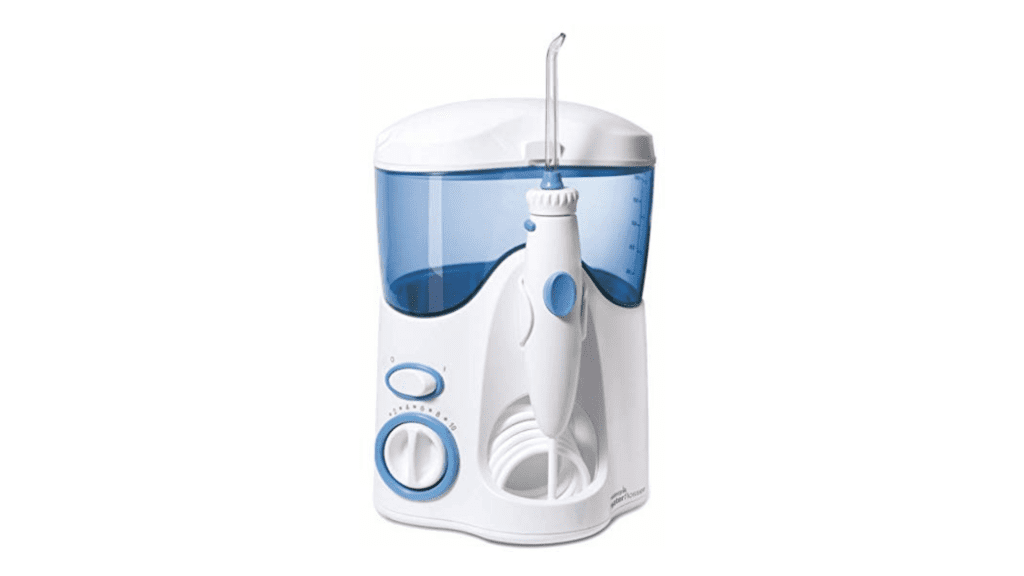
When you use a Waterpik to clean your teeth, the device applies pressure on the water before releasing it. This helps remove plaque and tartar from your teeth. The water helps flush out food residue that has accumulated between your teeth and along the gumline, as well as stimulates your gums and makes them more responsive.
Water flossers, such as Waterpiks and other variants, can be of tremendous assistance to people who struggle with any of the following conditions:
Because they are more compact than traditional floss, water flossers are much simpler to use in and around orthodontic appliances, including as braces. When compared to string floss, using dental wax reduces or eliminates the risk of something being lodged in the brackets and wires of your orthodontic appliances.
Oral irrigators like Waterpiks, which come with a variety of pressure settings, allow for a degree of customization in terms of how they are utilized. This gives you the ability to choose the pressure that is most conducive to your desired level of comfort. If you suffer from sensitive gums, you will find this advantage to be really beneficial.
What are some of the drawbacks associated with using a Waterpik?
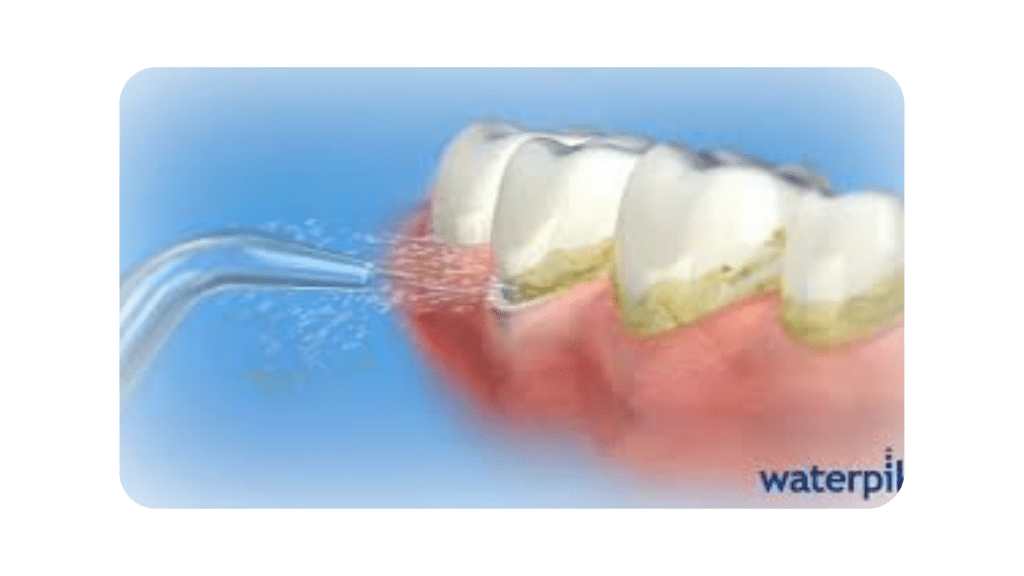
It is possible that the water pressure provided by the Waterpik will not always be sufficient to completely remove the plaque that has accumulated on your teeth. There is a common misconception that using floss prior to using a Waterpik can give superior results.
The cost of a Waterpik is substantially higher than the cost of the more conventional form of floss, string. In the same way that other kinds of water flossers do, using a Waterpik necessitates that you have availability to both a source of running water and an electrical outlet. As a consequence of this, making use of them while traveling may not be the most convenient option.
Dentists — do they recommend the use of Waterpiks?
Plaque that has accumulated on the surface of your teeth might be difficult to remove, but using a Waterpik, as recommended by the American Dental Association, can assist you in doing so. However, the vast majority of dental practitioners continue to recommend utilizing string floss rather than water flossers whenever it is at all possible.
If I use a Waterpik, will it be harmful to my gums and teeth in any way?
Your oral health will not suffer in any way as a result of utilizing a Waterpik, as doing so is totally risk-free and won't bring about any adverse effects. In point of fact, drinking water does not put the same amount of pressure on your gums as does flossing. When compared to the more common practice of flossing with string, this implies that using a water flosser results in a lower rate of bleeding gums than the typical method of flossing with string.
When using a water flosser for an extended period of time, if you experience any bleeding, swelling, or discomfort, you should contact your dentist as soon as possible to make an appointment. Keep in mind that if you haven't been regularly flossing your teeth, using a Waterpik for the first time may cause you to experience some discomfort that could last for up to two weeks. This is due to the fact that it takes some time for your gums to get used to the activity of the Waterpik before you can successfully utilize it.
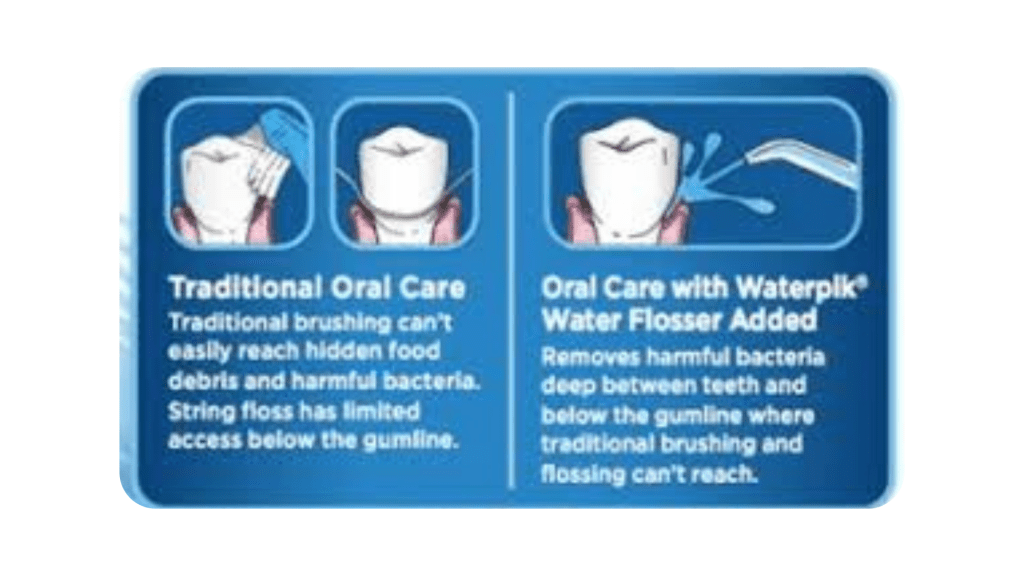
Flossing
Water flossing is a very recent innovation in comparison to the more conventional method of flossing with string, which dates back many centuries. Originally made from unwaxed silk, floss is now also available in nylon and Teflon varieties.
Waxed floss and unwaxed floss are the two varieties of dental floss that are sold commercially. If you find that after utilizing floss you frequently are unable to remove it from in between your teeth, you should examine the type of floss that you are employing. It is recommended that you convert to waxed floss if you are currently using floss that is not waxed. In addition, floss can be purchased in a variety of flavors. The flavoring can also make the mouth feel and taste fresher after flossing, which can make the activity more appealing to children and other people who struggle to maintain good oral hygiene habits.
Everyone should make flossing their teeth a consistent part of their routine in order to ensure that they have healthy teeth and gums. Everyone should make it a point to floss their teeth at least once every single day at the bare minimum. You should only use a water flosser, such as a Waterpik or another type of water flosser, in addition to your normal routine of cleaning your teeth and flossing them. This is still the case even if you are able to floss your teeth without risking injury. Because it was not designed to perform that function, you shouldn't use it as a replacement for string flossing unless you really don't have any other choice.
What are some of the benefits associated with using dental floss?

When should I floss, just after I brush my teeth, or before?
Before you clean your teeth, it is highly recommended that you floss in between each one. After you have finished flossing, you should thoroughly rinse your mouth with water. After you are finished, doing so will assist in the removal of any plaque or other material that may still be present in your mouth.
In the event that you do, the order in which you use a Waterpik and string floss is quite important. To get started, it is recommended that you use string floss. Plaque and food particles will be simpler to remove as a direct consequence of this. After you have finished flossing with string, you should rinse out your mouth and then clean your teeth. After that, you can floss your teeth. This will assist in the removal of any stains as well as any plaque that may still be present. After you are finished, use your Waterpik to thoroughly clean both the inside and outside of your mouth.
When flossing your teeth with string, you should begin by circling your mouth with around 18 inches of the floss and working it in a clockwise direction. You will need to use both hands to manipulate the string in order to create a C pattern with it on and between your teeth. Because of this, removing the plaque will be much less difficult.
If you are using a Waterpik or some other type of water flosser, the first thing you need to do is fill the reservoir with water that is slightly warmer than the temperature in the room. After that, the Waterpik mouthpiece will be positioned within the oral cavity of the user. After turning the device on, you need to make sure that the handle is held in that position so that it is parallel to your teeth. When you start the misting process, the nozzle will begin to expel a steady stream of water. You are going to have an easier time cleaning in between your teeth as a result of this.
If you have never used a Waterpik before, it is possible that it will take you some time to determine the temperature and pressure settings that will provide you with the most comfortable experience. When utilizing the Waterpik, begin at the back of the device and work your way forward. You should begin at the back of your throat and work your way forward into your mouth. When you brush your teeth, you should pay particular attention to the gum line, the top of each tooth, the back of each tooth, and any spaces that exist between the teeth. This will ensure that the space is clean throughout.
The process of flossing your teeth with water should take you close to two minutes to complete. Be sure to empty the reservoir in the sink if there is any additional water that has been left in the reservoir after it has been used. As a direct consequence of this, the Waterpik will not serve as an ideal environment for the growth of germs.
The following are some observations and judgments:
If you have any questions or concerns about using string floss, you should make an appointment with Summerlin Dental Solutions as soon as you can. If you have any conditions that prevent you from using traditional floss, such as braces or arthritis, they will be able to assist you in finding alternatives to utilizing floss in its traditional form. If the use of string floss is not an option for you, they will also be able to assist you in getting the most out of your Waterpik and provide you with instructions on how to do so if you need their assistance.
CLICK HERE TO SCHEDULE YOUR APPOINTMENT!
GET TO KNOW YOUR BEST DENTIST IN SUMMERLIN
Dr. Marianne Cohan was voted The Best Dentist/ Dental Office and Best Cosmetic Dentist from The Las Vegas Review-Journal in 2020 and 2021. She received her Doctor of Dental Surgery (DDS) from the State University of New York at Buffalo in 1992.

With an emphasis on cosmetic dentistry, complete makeovers, and implant dentistry, Dr. Cohan is committed to continuing education and feels that we never stop learning. Dr. Cohan takes pride in using high-powered magnification to perform minimally invasive restorative dentistry. She uses all the latest technological advances including digital radiography, digital photography, computer simulations, and high-resolution pictures of your proposed treatment on 55-inch screens. She also utilizes CBCT (cone beam) and laser technology.
Dr. Cohan is always available to her patients and is available for any dental emergency.

Do you want to see how a professional teeth cleaning is done by a hygienist? It is natural for many of us to experience some level of apprehension prior to going in for a dental cleaning procedure. If it has been years since your last visit to the dentist, it's possible that you don't remember or aren't even aware of how the procedure feels and what to anticipate.
Learning the ins and outs of dental cleaning can help ease any anxiety you may have about visiting the dentist and may even encourage you to schedule appointments more frequently. Let's investigate the purpose of having regular checkups like these, shall we?
What exactly is involved in a dental cleaning?
A cleaning at the dentist's office by a trained professional is a preventative treatment for oral disease. Patients have to do it on a consistent basis in order to remove tartar from areas of their teeth that are difficult to access at home. Even with consistent flossing and brushing, these areas are difficult to reach and clean. Scaling, cleaning, and debridement are all tasks that are typically the responsibility of the dental hygienist, who is the person who is responsible for the procedure (or plaque removal).
In an ideal world, you should have your teeth cleaned by a professional every six months as routine maintenance. If you have some dental issues, your dentist might recommend you do it more often. It is essential that you locate a dentist in your immediate vicinity and that you keep all of your regularly scheduled dental checkups. Visiting the dentist on a regular basis is, without a doubt, one of the most beneficial things that you can do for your own body and health. It is essential that you continue in this manner.
What can you expect when you get your teeth cleaned?

The majority of people avoid going to the dentist because of the associated discomfort, as well as the noise and prodding that comes along with it. However, going to the doctor for checkups on a regular basis ought to be your number one priority. You can prevent tartar and plaque buildup on your teeth by brushing and flossing your teeth on a regular basis. You will also be assisting in the prevention of periodontal disease as well as the maintenance of an odorless oral environment.
Step 1: Examining the teeth and gums
Every cleaning procedure starts with an examination of the mouth and teeth. The dental hygienist will examine the condition of your gums and teeth with the aid of a compact mirror during your appointment. They will search for obvious indications of gingivitis, periodontal disease, and tooth decay (gum inflammation). The hygienist will begin the cleaning process if there are no major issues that need to be addressed.
Note: If you use partial dentures, it's still important to get regular checkups. You should still take care to maintain excellent oral health because cavities can still form on your teeth.
Step 2: Plaque and tartar buildup will be removed
The tartar and plaque that are affecting the gum line will be removed with the help of a scaler by the dental hygienist. They will also remove any tartar that is still stuck between each tooth that was not previously removed. It is not unusual for the dental hygienist to repeatedly scrape the same area, particularly if there is a significant amount of tartar in that region.
Step 3: Conduct a thorough cleaning
After the plaque and tartar have been removed, they will move on to the more in-depth cleaning. The tartar that is still present will be removed by the hygienist with the help of a powerful electric toothbrush. This is an excellent choice for any areas that the scaler could have missed.
During a flossing session, the hygienist will work on the areas of the teeth that are the most difficult to clean. Performing this procedure helps identify any possible problem areas that might cause bleeding after flossing. It is a straightforward method of cleaning that will clean the teeth in every nook and cranny.
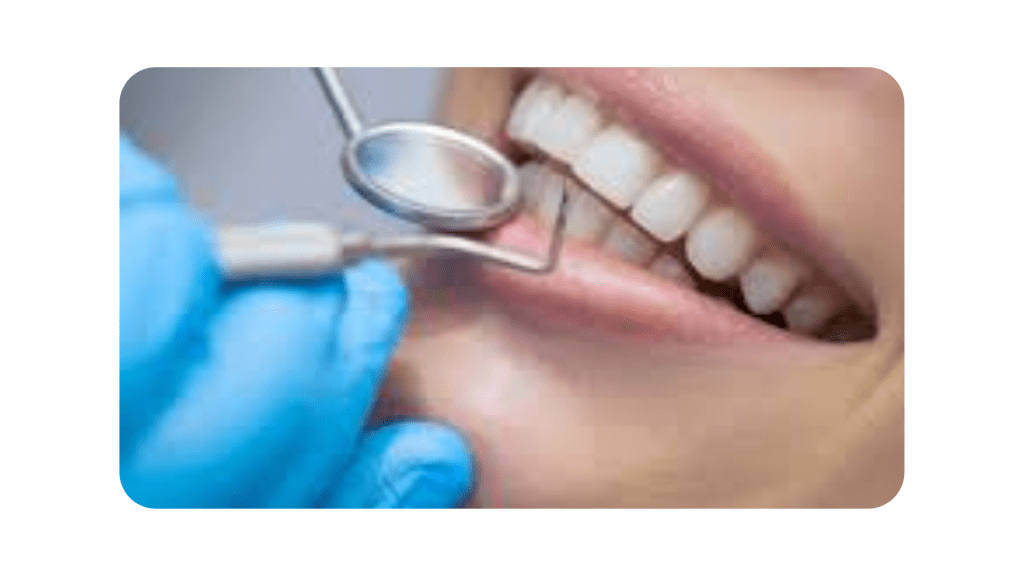
Step 5: Mouth rinse
When you are finished brushing your teeth, it is time for a mouth rinse. The debris that was left behind will be removed by the water, leaving a clean surface for you to work on. After that, you will spit out the water.
Step 6: Teeth guarding
Now that we've reached this point, it's time to complete the teeth-cleaning procedure. In order to assist your teeth in their fight against cavities over the next few months, the hygienist may apply a fluoride treatment. (You might even get to decide which flavor you want.) If this is the case, your hygienist will fashion a mouthpiece for you out of a foamy gel or a sticky paste. This piece will fit over your teeth and will remain in that position for one minute.
In addition, the use of fluoride varnish by dentists is not an unusual practice. The moment the fluoride comes into contact with saliva, a hardening process begins. As a consequence of this, you might find that you are unable to consume liquids or food immediately after cleaning.
How much time does it take to clean?
It is possible for a dental cleaning to take anywhere from half an hour to an entire hour, depending on the condition of your gums and teeth at the time of the appointment. For instance, if there are high levels of inflammation or tartar present, you might require half an hour. However, if the patient is relatively healthy and has a low level of tartar buildup, the procedure might take less than half an hour.
Patients who haven't had their teeth scaled in a very long time may require an additional ten to twenty minutes for the procedure. It's possible that the dental cleaning process will take longer if you also have gum disease or other issues with your teeth. As soon as you observe symptoms such as bleeding gums, soreness, or damage to your enamel, start looking for a dentist in your area.
Does having your teeth cleaned hurt?
The process that you use to clean shouldn't be painful. On the other hand, tooth sensitivity may be exacerbated in cases where there is gingival inflammation, oral disease, root exposure, or tooth decay. As a result, it is possible for some patients to experience some discomfort or even some mild pain while the cleaning procedure is being performed. If you are concerned about the pain, your dentist can numb the area by applying a local anesthetic to your gums before performing the procedure.

Conclusions and musings
Everyone should visit the dentist at least once every six months, but twice a year is the recommended frequency. The good news is that there is absolutely nothing for which you should be concerned. This procedure is one that does not cause a lot of discomfort and is typically completed rather quickly. And perhaps most importantly, it will assist in maintaining the health of your teeth and will work to protect them from developing cavities.
CLICK HERE TO SCHEDULE YOUR APPOINTMENT!
GET TO KNOW YOUR BEST DENTIST IN SUMMERLIN
Dr. Marianne Cohan was voted The Best Dentist/ Dental Office and Best Cosmetic Dentist from The Las Vegas Review-Journal in 2020 and 2021. She received her Doctor of Dental Surgery (DDS) from the State University of New York at Buffalo in 1992.

With an emphasis on cosmetic dentistry, complete makeovers, and implant dentistry, Dr. Cohan is committed to continuing education and feels that we never stop learning. Dr. Cohan takes pride in using high-powered magnification to perform minimally invasive restorative dentistry. She uses all the latest technological advances including digital radiography, digital photography, computer simulations, and high-resolution pictures of your proposed treatment on 55-inch screens. She also utilizes CBCT (cone beam) and laser technology.
Dr. Cohan is always available to her patients and is available for any dental emergency.
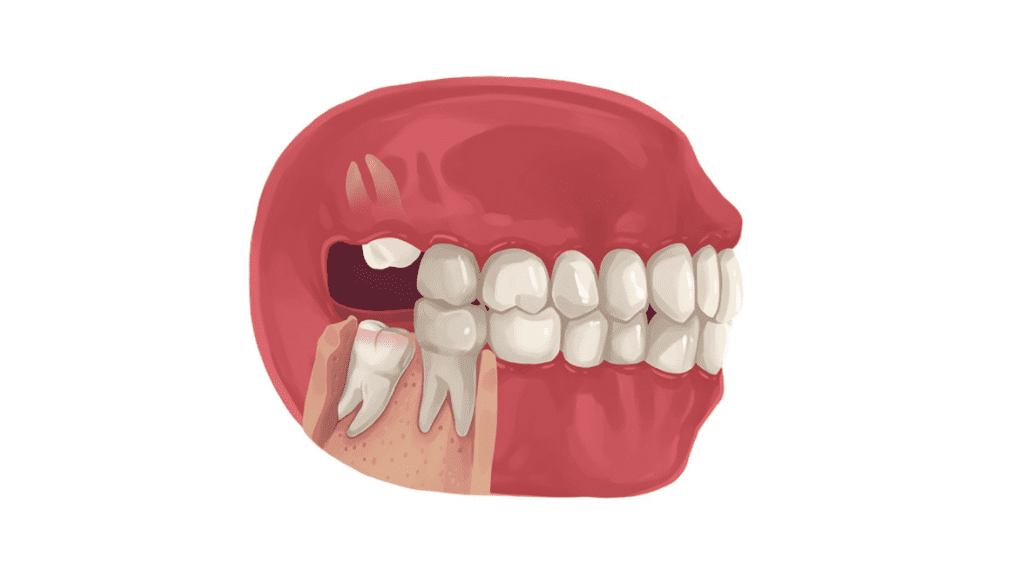
The third molars, also known as wisdom teeth, are the final set of teeth to erupt in your mouth. This can happen at any point in your life, but it most commonly takes place between the ages of 13 and 25. During the early years of adolescence, X-rays can reveal the presence of these teeth, allowing us to determine in advance whether or not there may be dental issues in the years to come.
There are some people who don't need to have their wisdom teeth extracted, but the majority of adults do. The following are the six most common reasons why our dentist in Summerlin may recommend having them removed as a preventative measure, prior to the onset of other complications:
The vast majority of patients wait until their wisdom teeth cause constant discomfort before undergoing oral surgery. The region immediately surrounding your teeth may be the only place you experience pain and swelling, or it may spread throughout your face. There is a possibility that redness and tenderness will be present; these are both symptoms of an infection.
Unfortuitously, these symptoms are not going to go away on their own. It is possible that "toughing it out" will result in a painful toothache that requires immediate dental care, but discomfort can be temporarily relieved by over-the-counter medication. It is in your best interest to take action before you reach that point.
Dr. Cohan will evaluate the anatomy surrounding your developing wisdom teeth using the panoramic X-ray that you will receive. Even though every tooth has what is known as a "developmental cyst" surrounding it, there are times when the cyst can become infected or grow too large. When something like this occurs, it can cause damage to the bones in your jaw.
During your dental exam, you should inquire about seeing your X-rays. We'll show you what appears to be normal, as well as any areas that stand out as being out of the ordinary. You are going to experience the same things that we do!
Wisdom teeth are prone to a number of issues, one of the most common of which is that they become impacted in the bone or the teeth that are adjacent to them. Because of this, it may only erupt in part, if at all, or not at all. Because there is only a small portion of the tooth that is visible, brushing and flossing can be difficult, if not downright impossible. Additionally, the pressure can cause damage to your teeth that is irreparable if your third molars are pressing into the teeth in front of them.
A chain reaction that can be problematic for your smile is tooth misalignment. This chain reaction can be caused by a lack of space in your mouth or by wisdom teeth that are impacted. Because of their position in the back of the mouth, third molars can exert a significant amount of pressure, which can cause the teeth in front of them to shift forward. This causes pressure to gradually build up all the way to the front of your smile over time.
After a period of time, you may end up with crowded teeth and front teeth that overlap. If you have already worn braces in the past, this can be an especially disheartening experience because you will need to wear another set of orthodontics in order to realign your teeth.
When you visit our dental office in Summerlin for treatment of a cavity, we will almost always advise you to get a filling. If you treat the cavity when it's still in its early stages, it will be less likely to spread to the teeth that are adjacent to it.
However, the position of the wisdom teeth in the mouth makes it exceptionally challenging to clean them. As a consequence of this, they are prone to developing cavities. Because cavities are likely to reappear after they have been treated, it is generally recommended that you have your wisdom teeth extracted rather than treat active decay in your third molar.
It's possible that you'll need to have your wisdom teeth extracted if the third molars in your mouth are beginning to show signs of gingivitis or gum disease in the area around them. Leaving your wisdom teeth in place puts the health of your other teeth, which are otherwise in good shape, at risk of periodontal infections, which can spread to adjacent teeth and cause bone and gum recession.
If, during the course of your routine checkups and X-rays, Dr. Cohan notices that your third molars are exhibiting symptoms of tissue detachment and bone loss, he will likely advise you to have your wisdom teeth removed.
It's Past the Point of No Return

Around the time you turn 30, most people have completed the development of all of their wisdom teeth. Oral surgery is something you should give some thought to if you are an adult who is beginning to experience pain, swelling, or molars that are persistently infected.
Does Having Your Third Molar Removed Hurt?
Oral surgery is something that can cause a lot of people to feel anxious, especially prior to the procedure. However, the process of extracting wisdom teeth varies from patient to patient. Some extractions are more straightforward than others, which involve more involved processes. The best dentist in Summerlin will be able to provide you with sedation so that you can remain calm and collected throughout the procedure.
Our dentist is able to work more quickly and effectively, allowing him to finish your oral surgery in a shorter amount of time, when you are relaxed enough that you can even fall asleep during the appointment. At Summerlin Dental Solutions, we provide a wide range of sedation options, from safe and comfortable laughing gas (nitrous oxide) to oral sedation and intravenous (IV) sedation. There is a solution that is appropriate for anyone's level of comfort or fear of the dentist.
Do You Believe That You Need to Have Your Wisdom Teeth Removed?
In order to determine whether or not you require the removal of your wisdom teeth, you should schedule an appointment with our dentist in Summerlin, Nevada. Your third molars will be examined, and Dr. Marianne Cohan will make recommendations regarding the next steps to take. Any questions that you might have, please don't hesitate to ask!
CLICK HERE TO SCHEDULE YOUR APPOINTMENT!
Dr. Marianne Cohan was voted The Best Dentist/ Dental Office and Best Cosmetic Dentist from The Las Vegas Review-Journal in 2020 and 2021. She received her Doctor of Dental Surgery (DDS) from the State University of New York at Buffalo in 1992.

With an emphasis on cosmetic dentistry, complete makeovers, and implant dentistry, Dr. Cohan is committed to continuing education and feels that we never stop learning. Dr. Cohan takes pride in using high-powered magnification to perform minimally invasive restorative dentistry. She uses all the latest technological advances including digital radiography, digital photography, computer simulations, and high-resolution pictures of your proposed treatment on 55-inch screens. She also utilizes CBCT (cone beam) and laser technology.
Dr. Cohan is always available to her patients and is available for any dental emergency.